Khorezm Fortresses
Perhaps one day, these fortresses, like a heroic figure awakened from a long slumber, will gain its deserved recognition from the public.
Ayaz-Kala
As we walked atop the ancient relic, we were aware of the everlasting nature of the rocks, yet mindful that those who had brought it into existence were there long before our time.
If I didn’t write about it now, perhaps everything would fade into a distant past, and the connection between the man of the moment and that moment itself would then become dissipating clouds.
To document those long gone trips of the past, specifically the one from four years ago, it’s not a task to be taken lightly. It’s a challenge yet a source of motivation: you’re granted an opportunity to rediscover the places you’ve been to, as if you’ve never traveled there, you gain a more thorough comprehension of it, you gradually stitch together the pieces of the trace you left behind to repaint the happenings, and revisit your own pictures. At times I’m surprised that those photos were actually captured by myself.
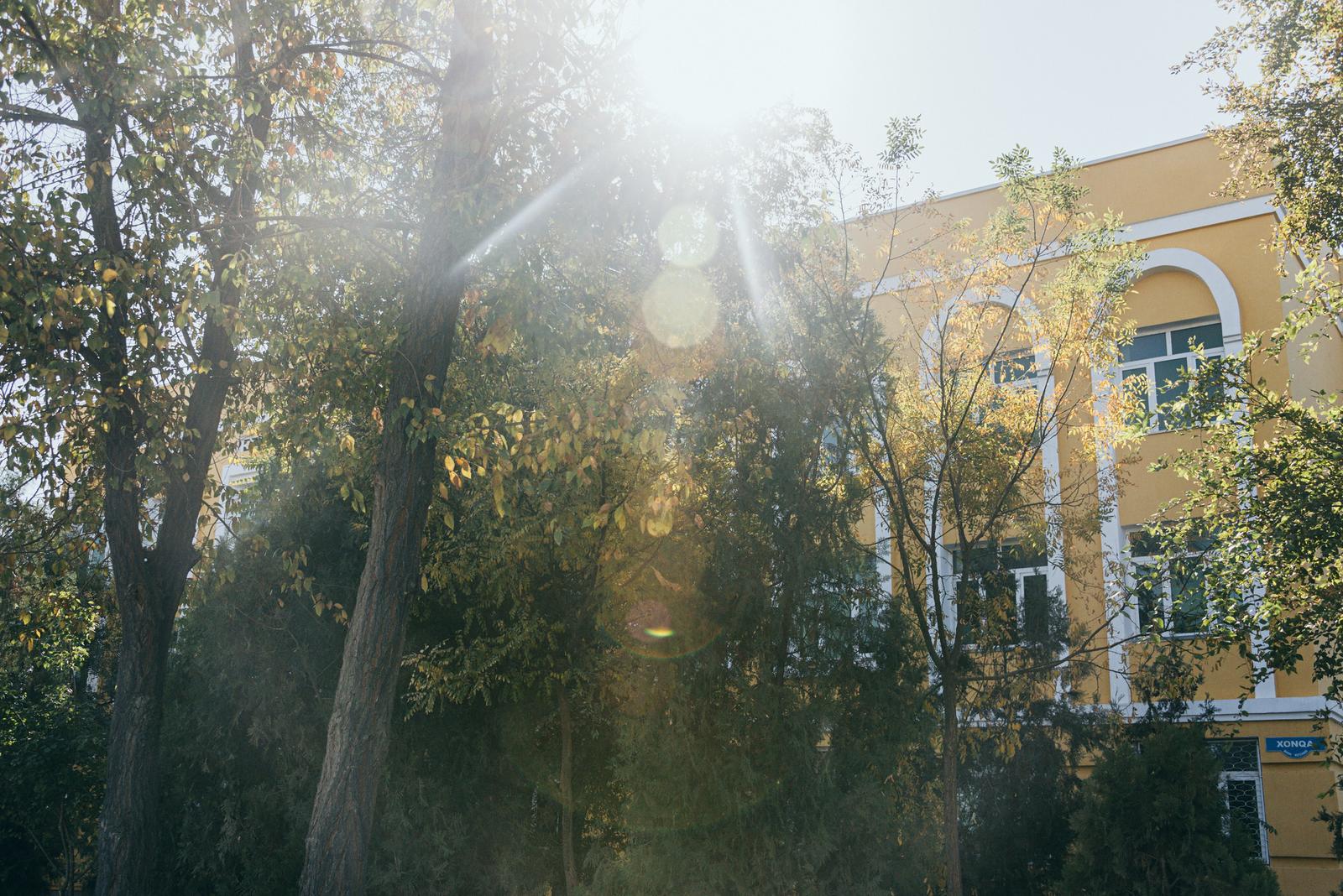
Departure from Khiva
I booked a one-day tour through Responsible Travel where a driver would pick me up in Khiva and fetch me to the ancient fortresses (Elliq Qala - 50 fortresses) located within the historical area of Khorezm. Today this area lies inside the territories of Khorezm viloyati and the Republic of Karakalpakstan, both of which belong to Uzbekistan.
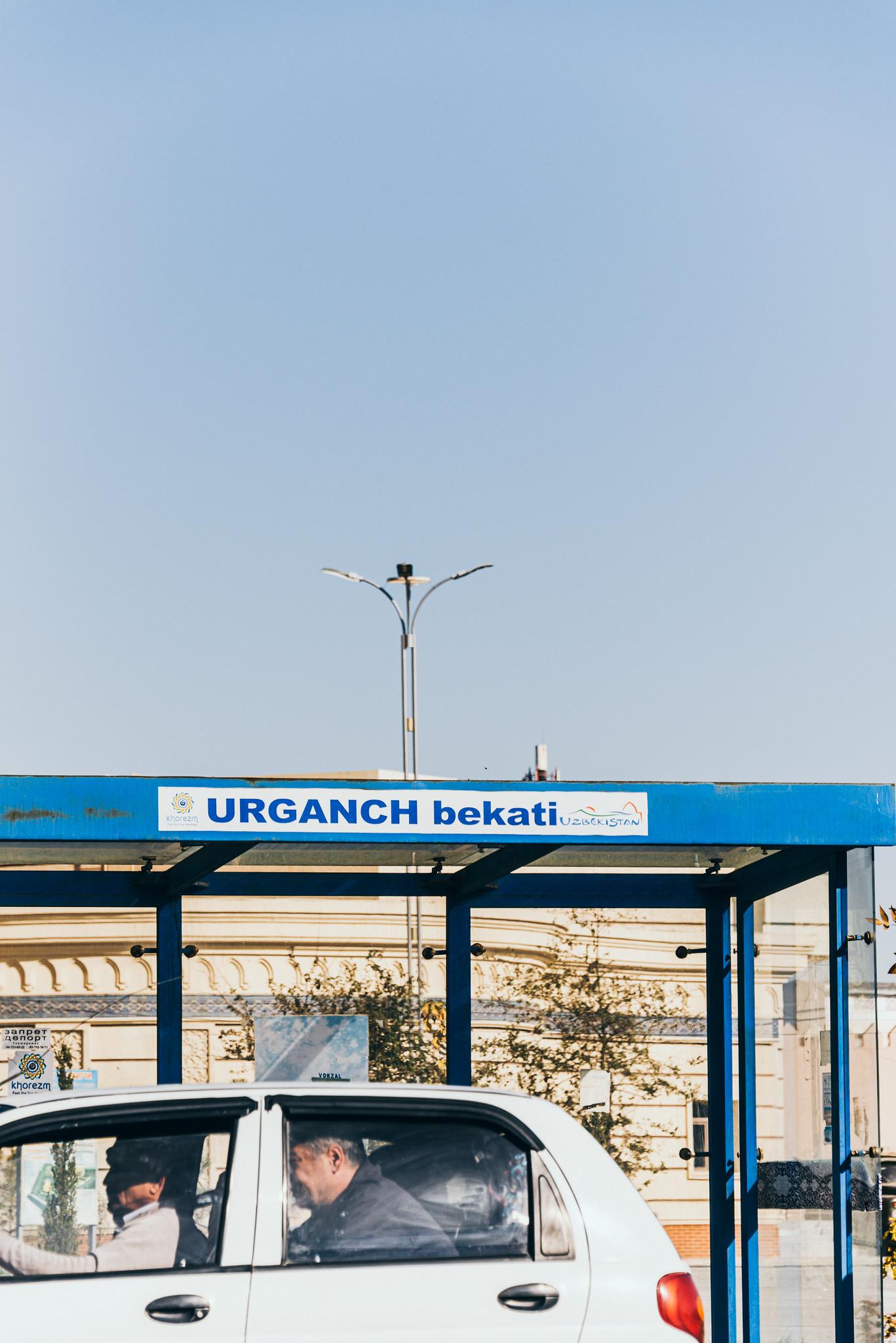
Our car passed by Urgench, the capital of Khorezm (Xorazm / Хоразм) region, then approached the pontoon bridge connecting the two banks of the Amu Darya River. It’s truly a magnificent sight I’d never seen before, wowing a man from the tropical area like me. At sunset as we’re returning to Khiva, we would be back to this bridge once more, so I’ll only drop one single photo here.
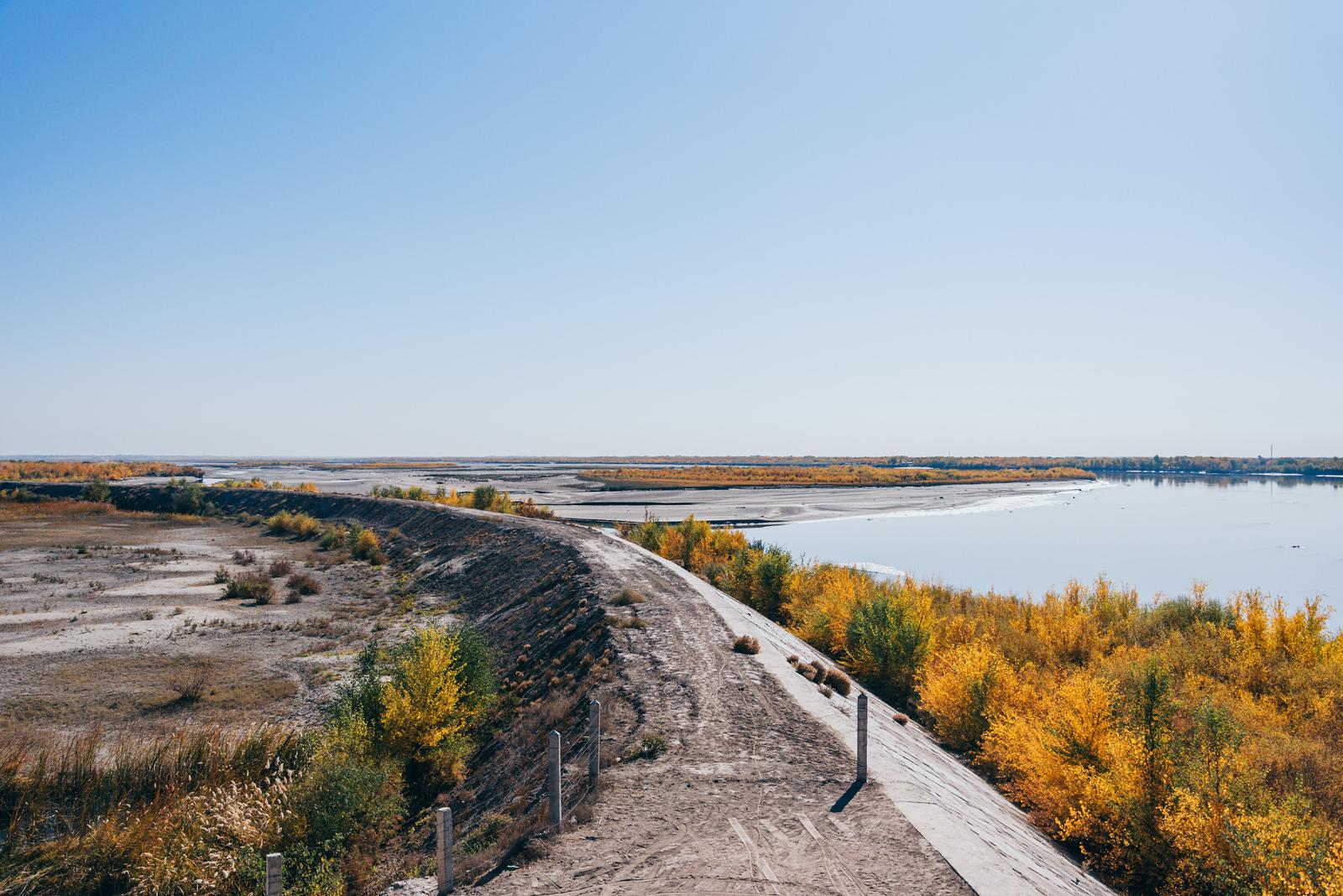
When reached the other end of the bridge, you have stepped on the land of the Republic of Karakalpakstan.
Toprak-Kala
The name Elliq Qala lets us know that there’re more than 50 ancient fortresses scattered over the region, which played a significant role in defending against attacks from the Huns, Turks and Arabs, as well as in controlling the overland trade. However, these fortresses couldn’t stand against the overwhelming power of the Mongols, consequently becoming abandoned and turning into relics.
Not until the Soviet era were these fortresses rediscovered and excavated, and in 2008 they were proposed for inclusion in the UNESCO World Heritage Sites.
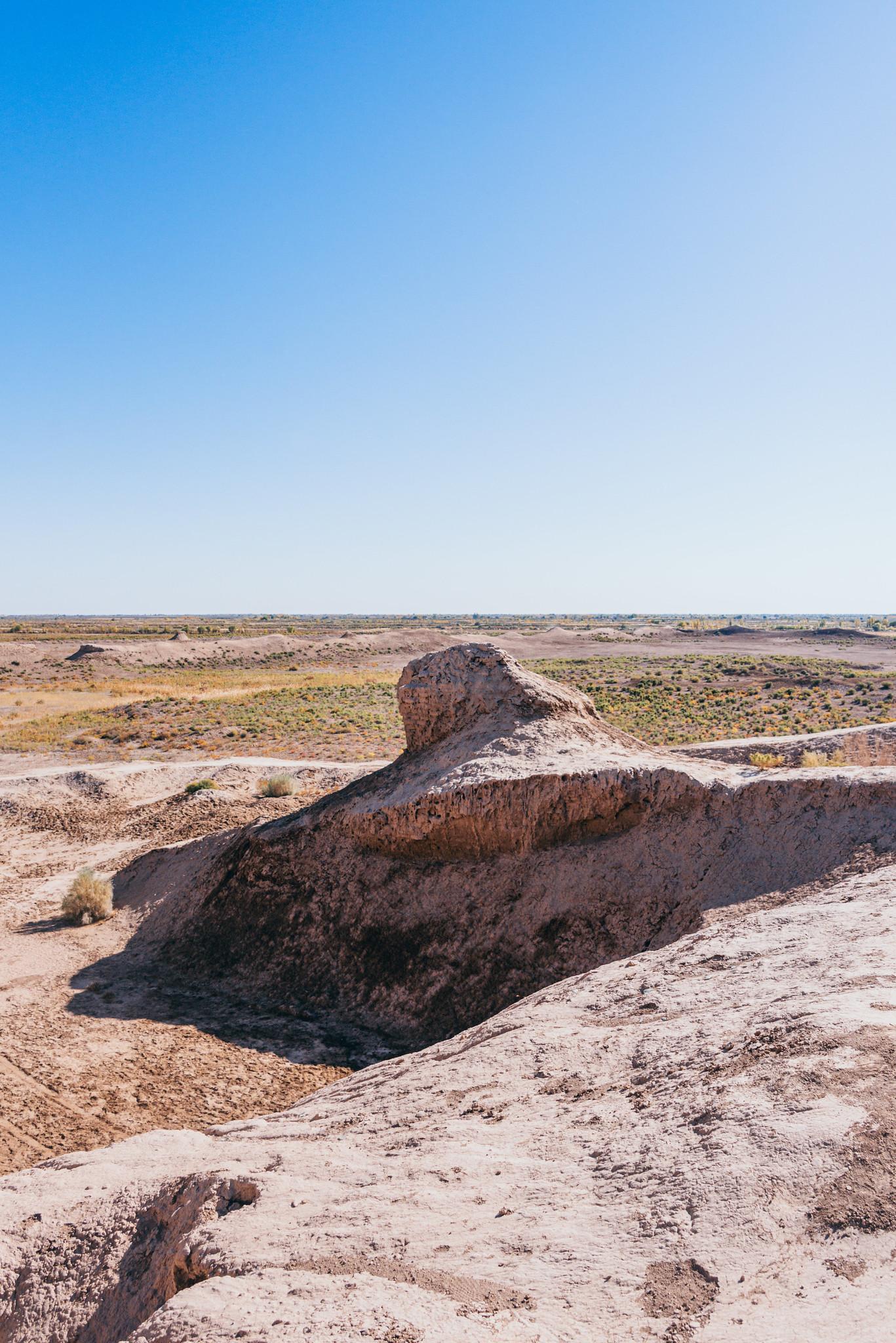
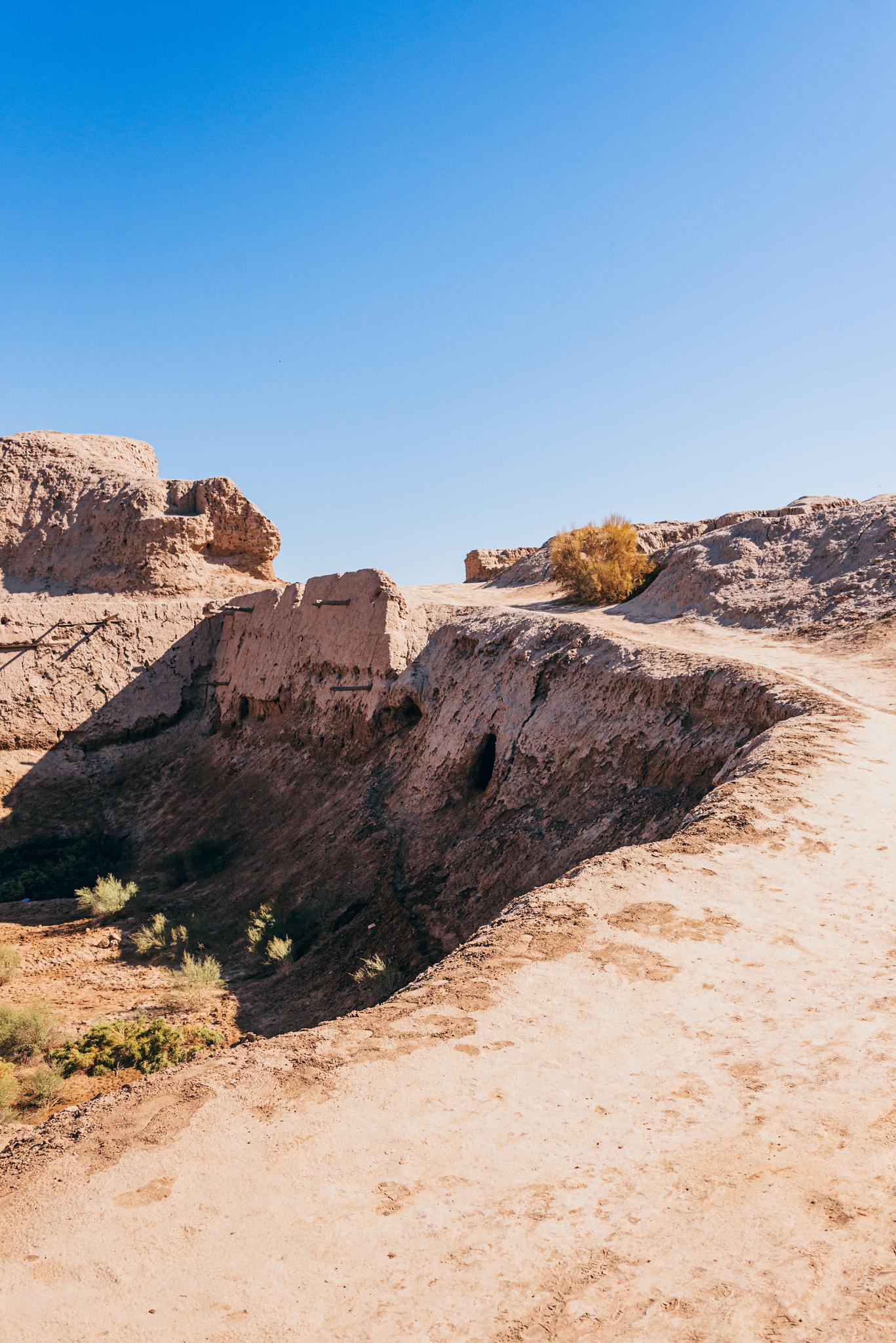
The first fortress we went to was Toprak-Kala (clay fortress), the one which is right on the outskirts of the fertile floodplains of the Amu Darya River basin (Khorezm / Chorasmia oasis) and adjacent to the Kyzylkum Desert.
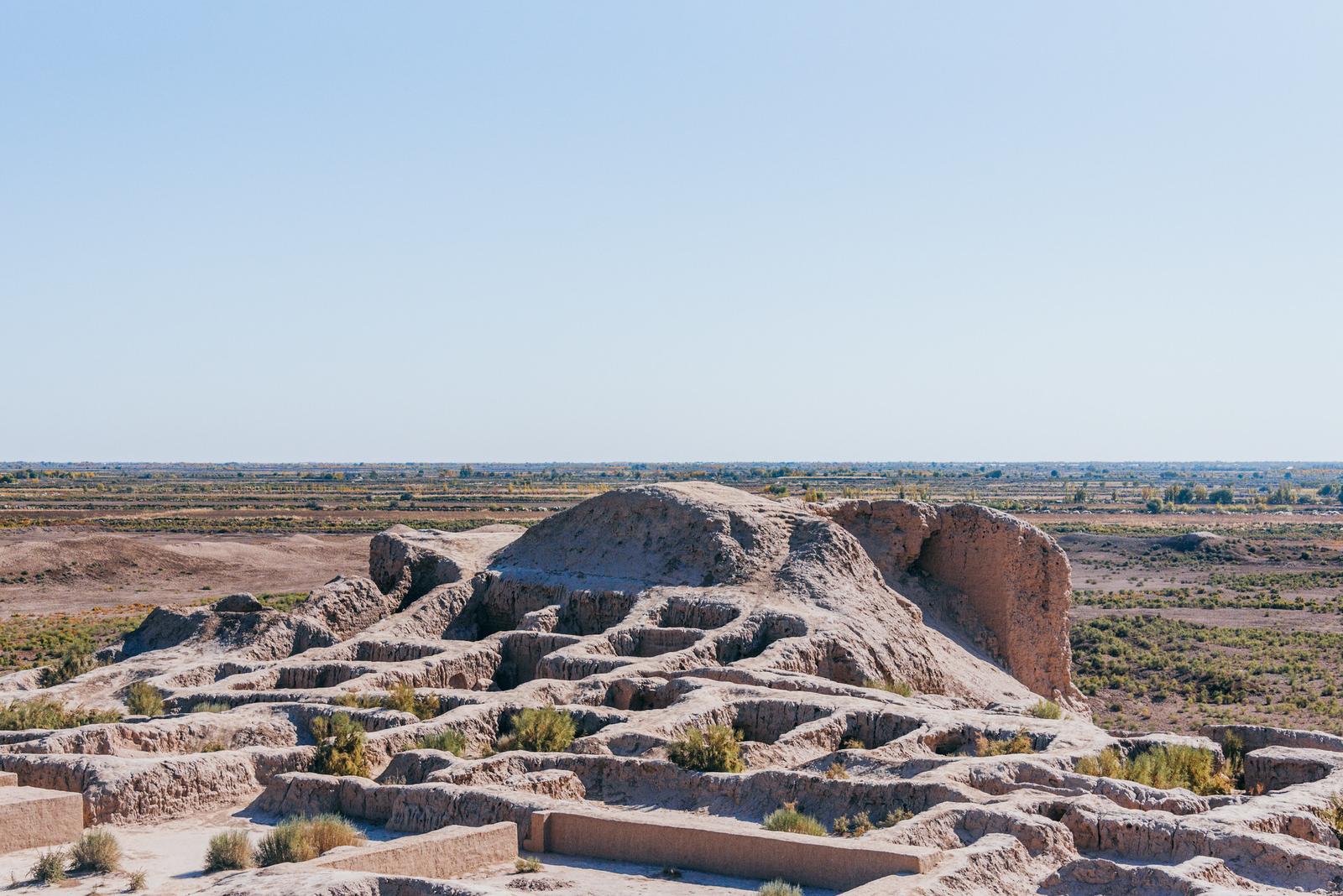
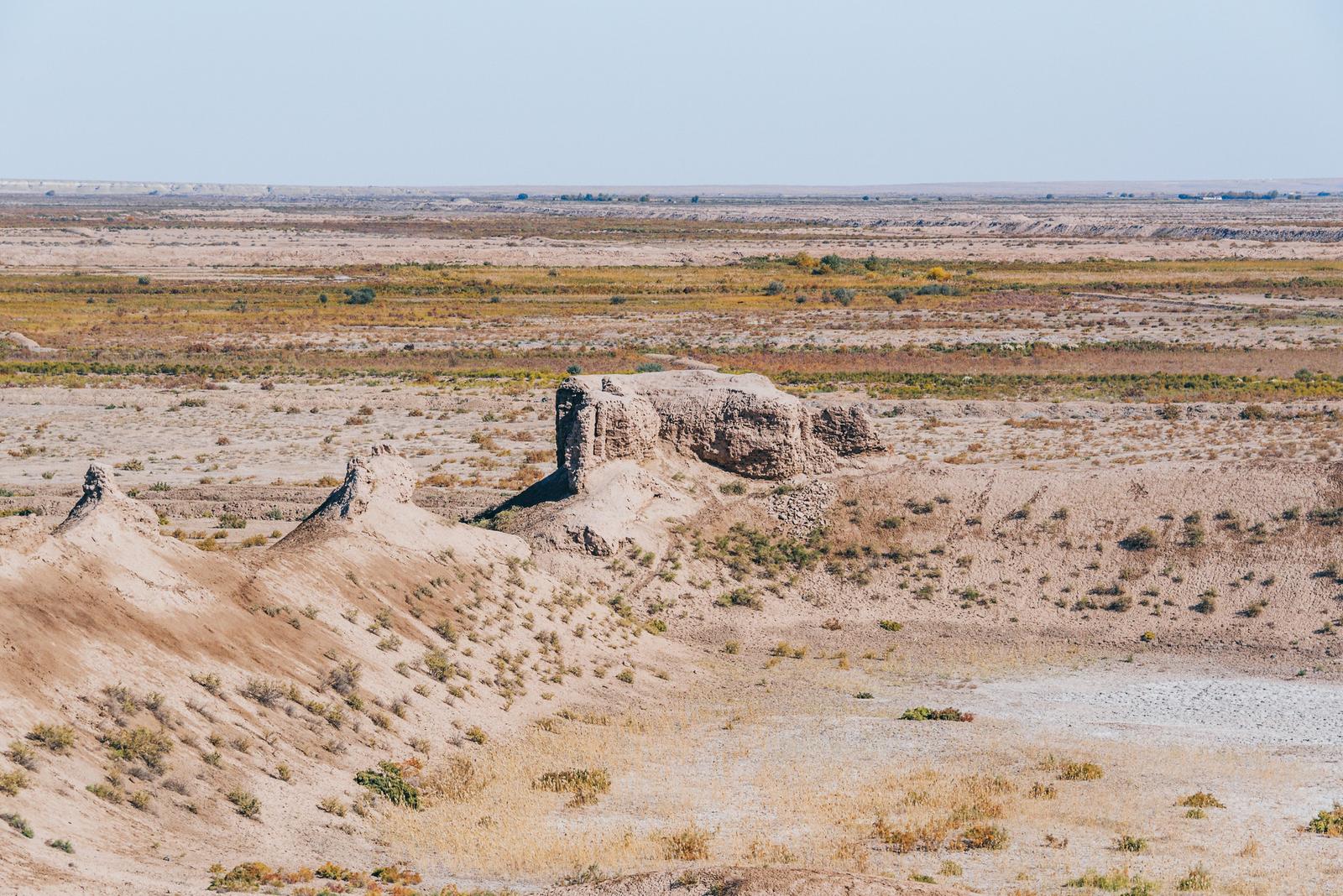
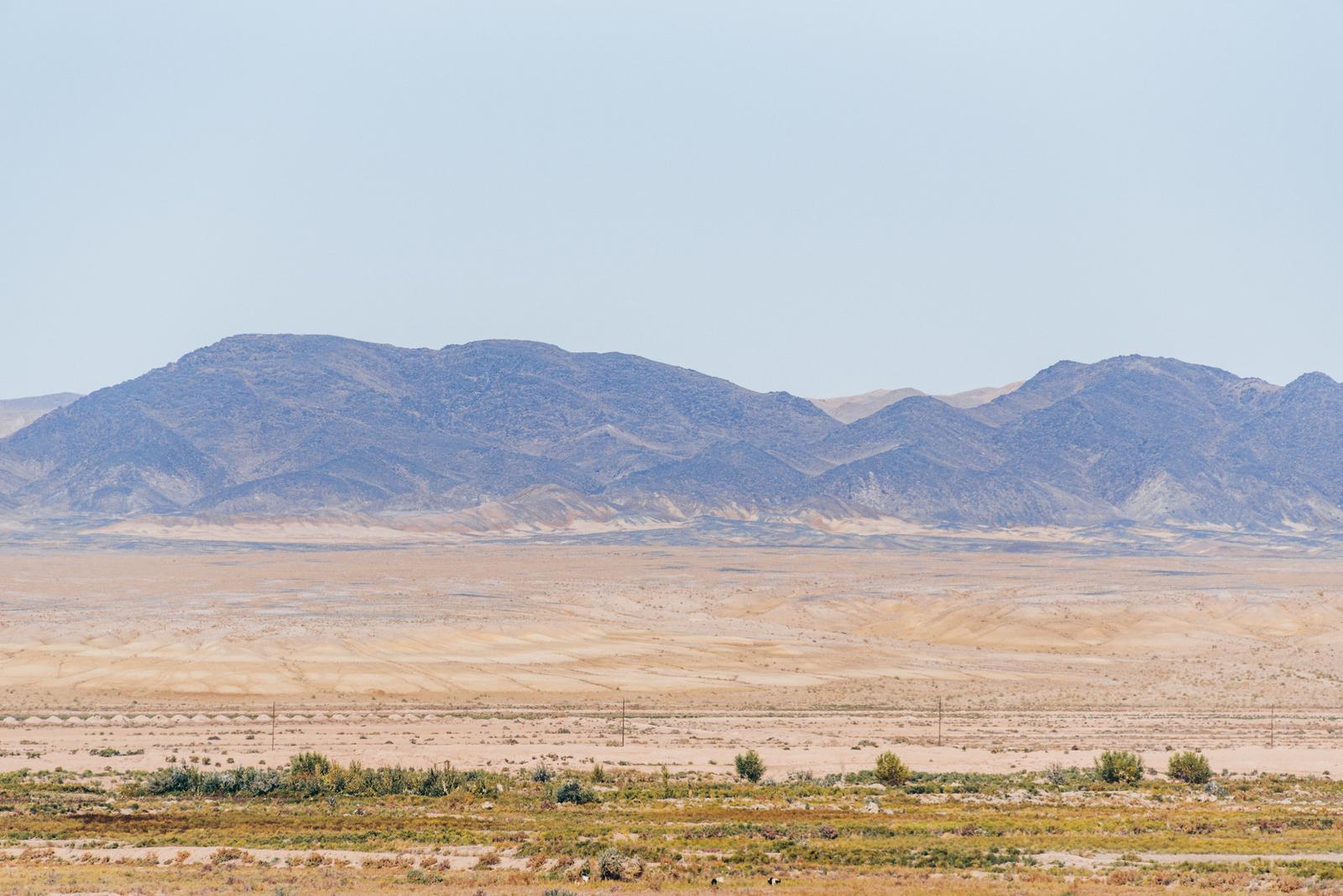
Not just being a fortress, it also used to be a palace which was part of a greater urban, that’s why you can see the square rooms which serve different functions.
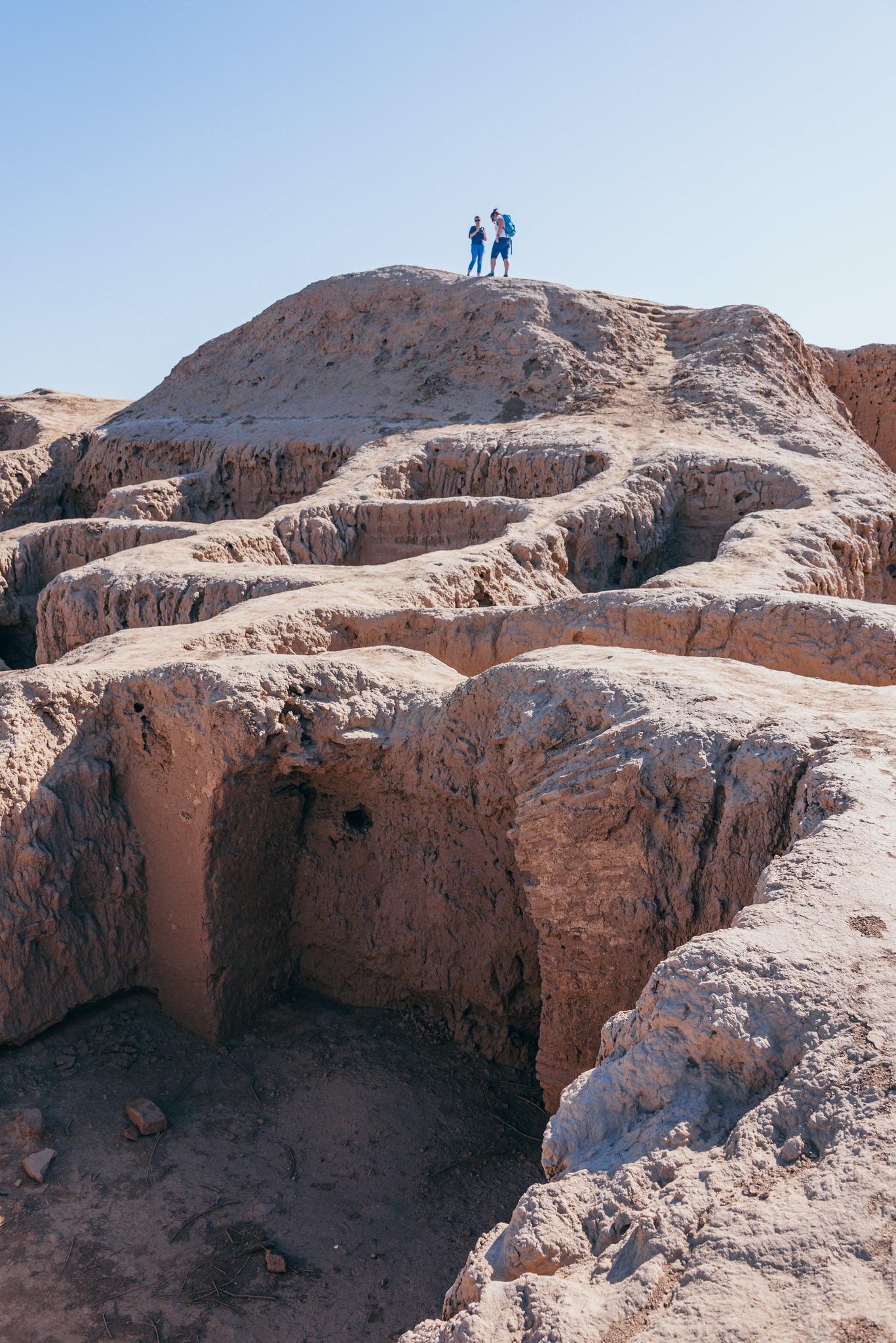
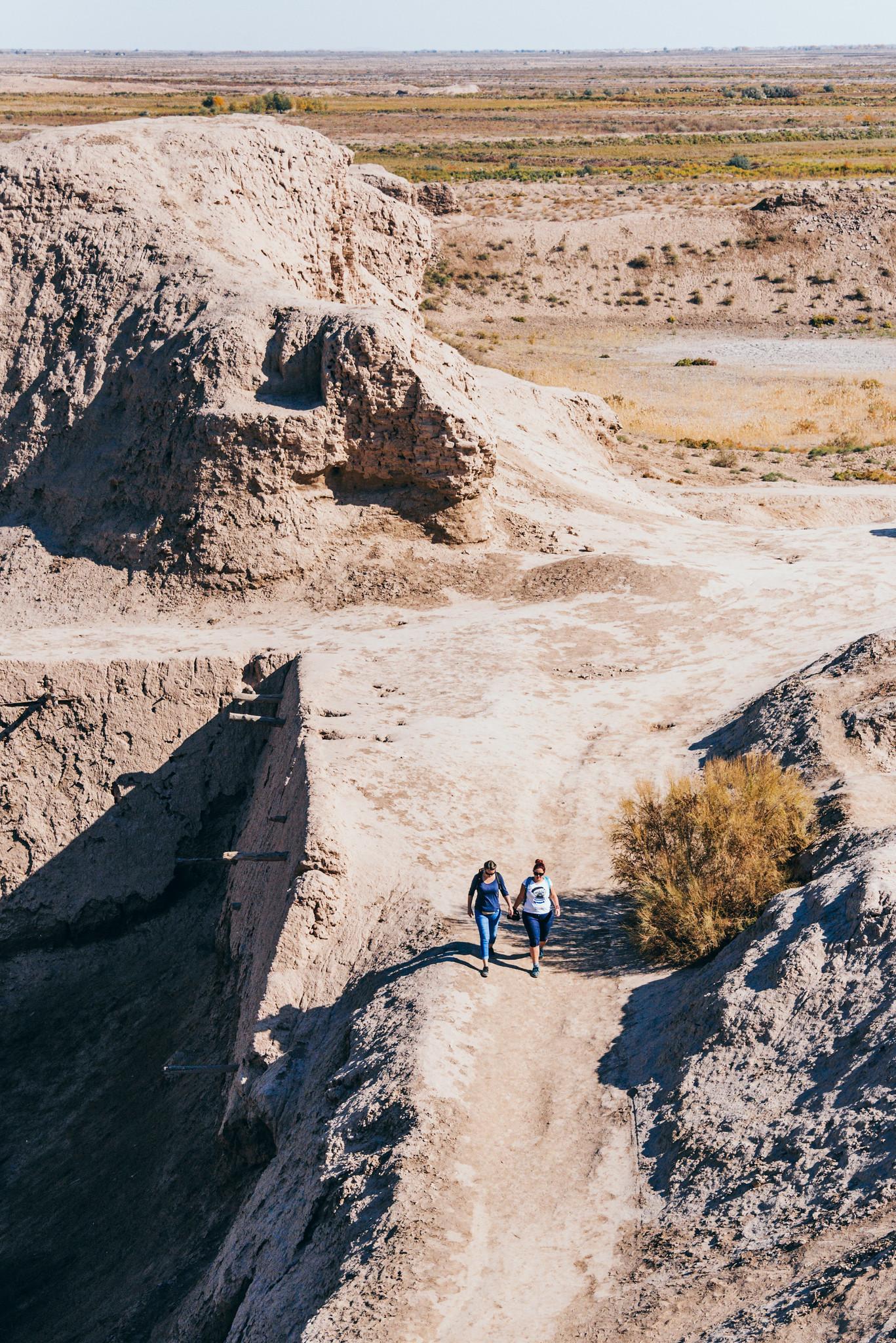
Constructed in the first centuries AD and abandoned since the 6th century, it’s not until 1938 when a Soviet expedition conducted excavations in the area. Prior to that, this had just been regarded as an unnoteworthy artifact from the perspective of the locals.
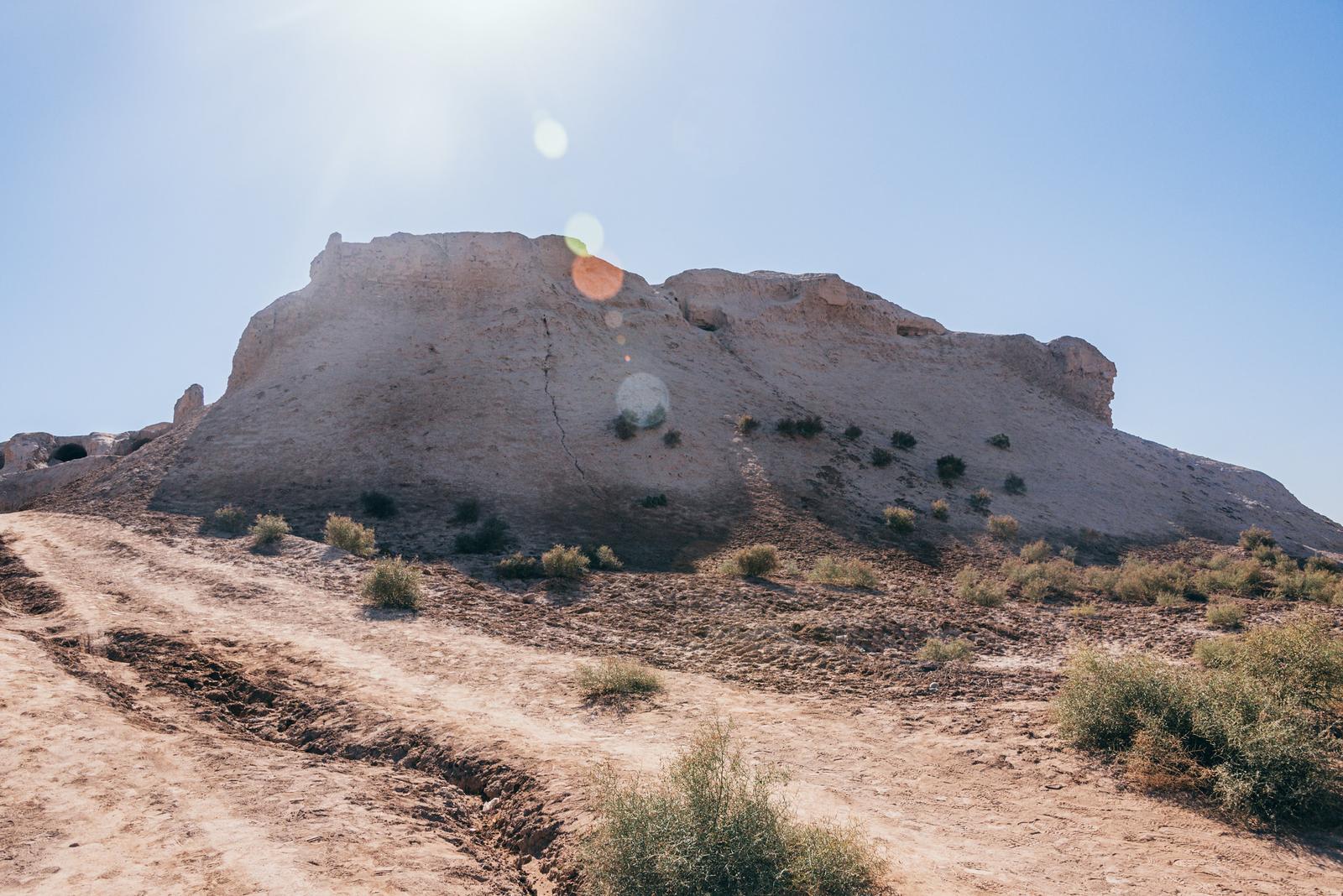
Kyzyl-Kala
Our car then continued past the cotton and reed fields to arrive at Kyzyl-Kala (red fortress) not very far from the first site.
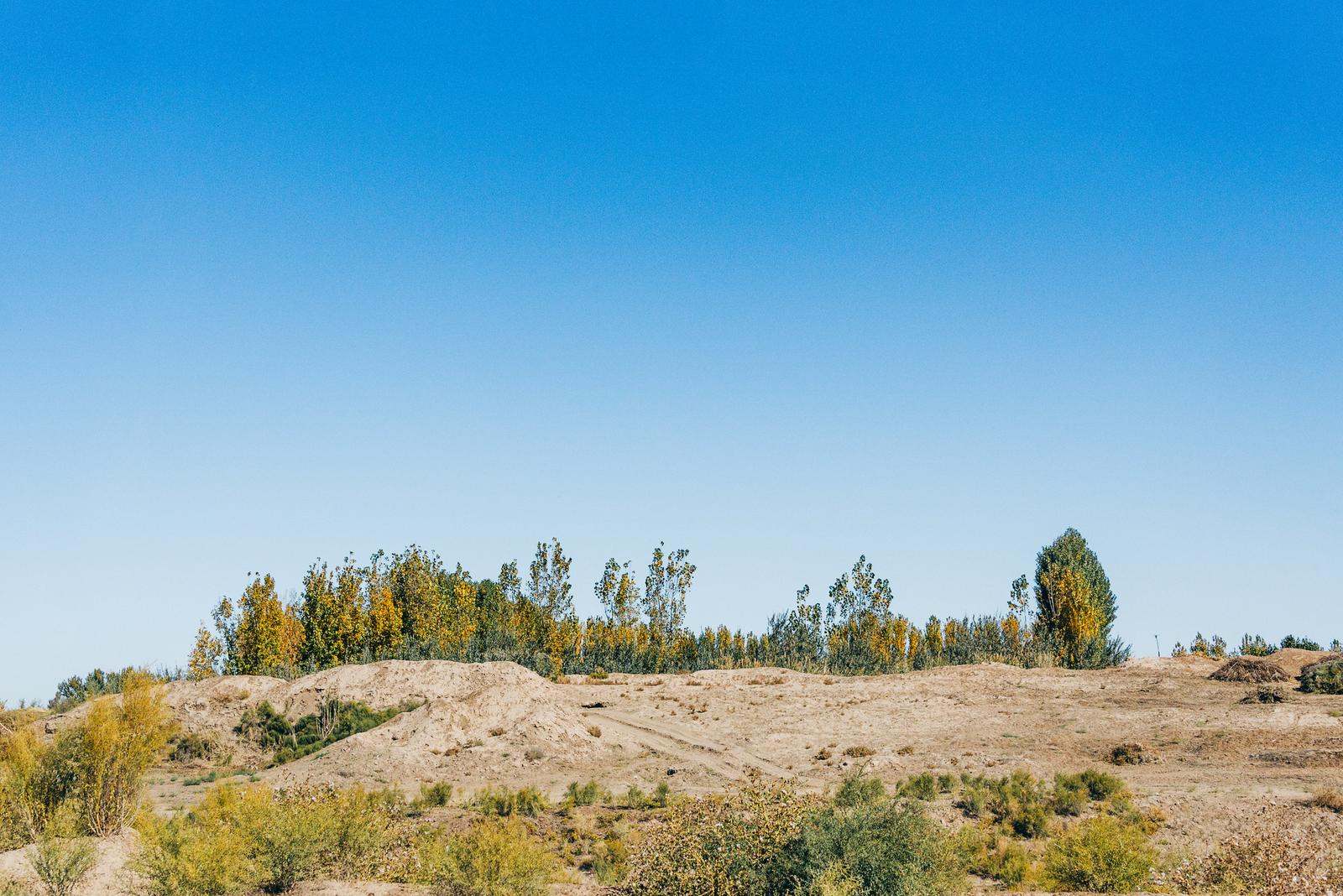
Unlike Toprak-Kala which has suffered from erosion after excavation due to negligence in conservation, Kyzyl-Kala was discovered later in the 1980s and has undergone a renovation process; for that reason, if looking from outside this fortress’ base appears pretty modern but somehow lacks the charming quality.
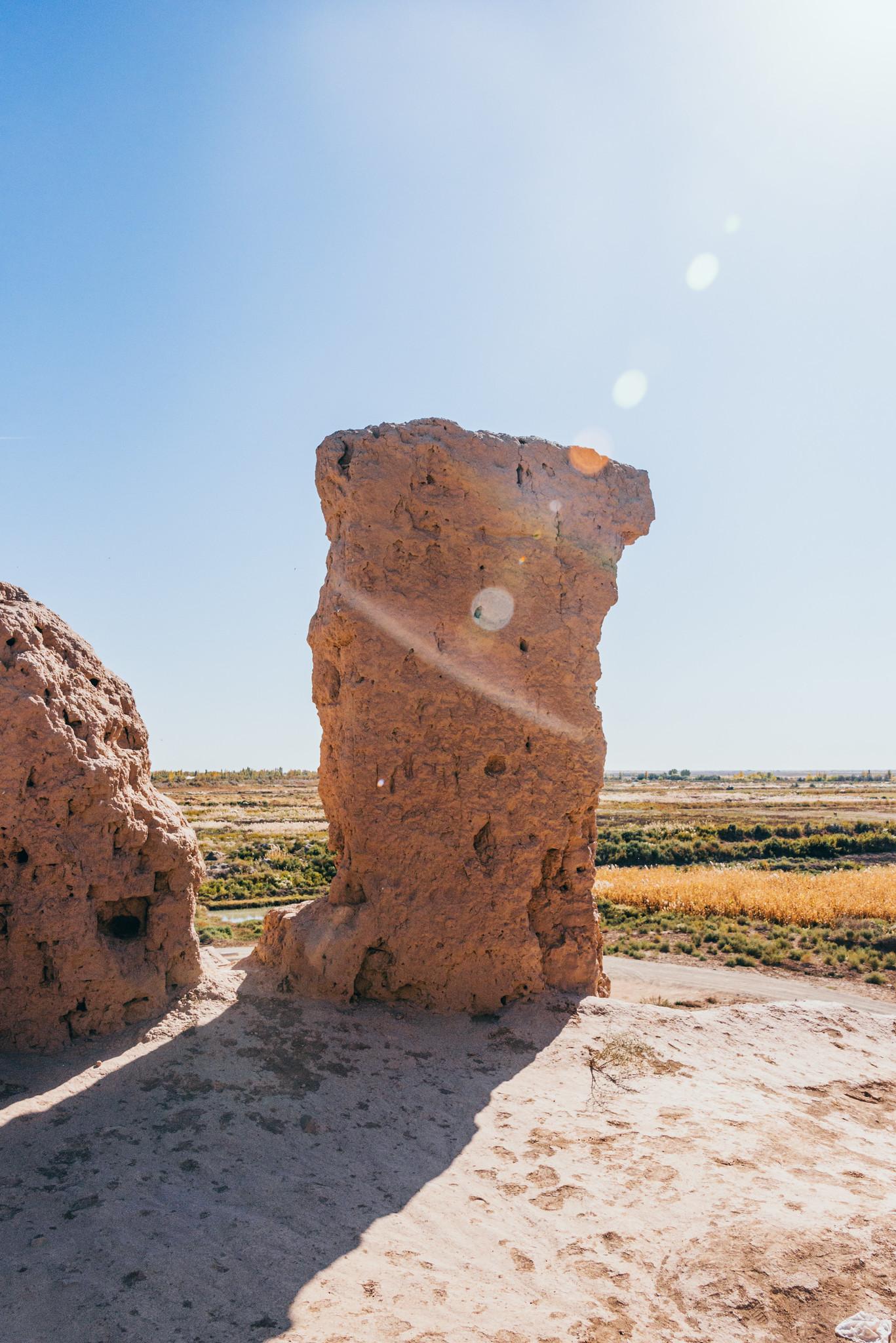
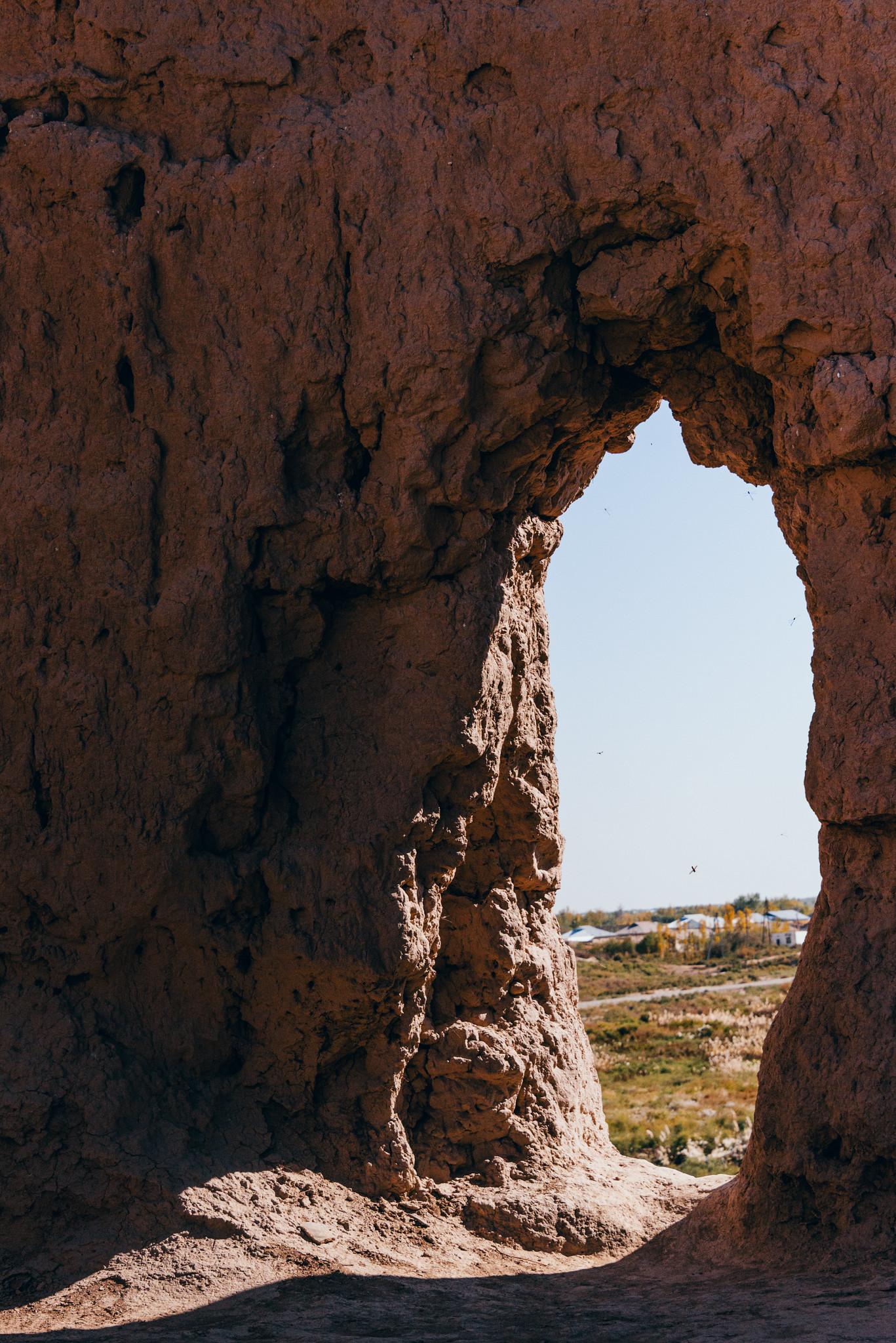
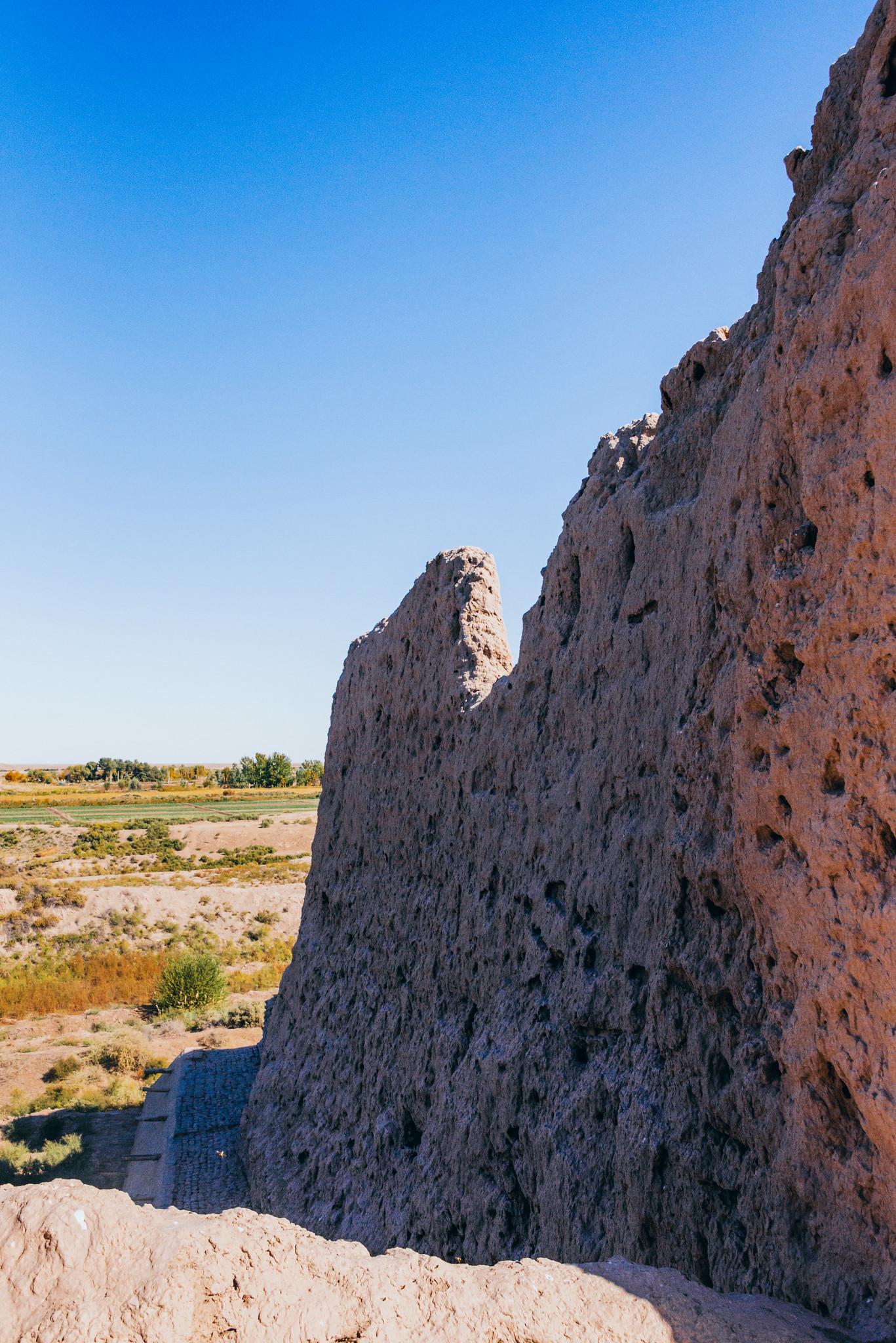
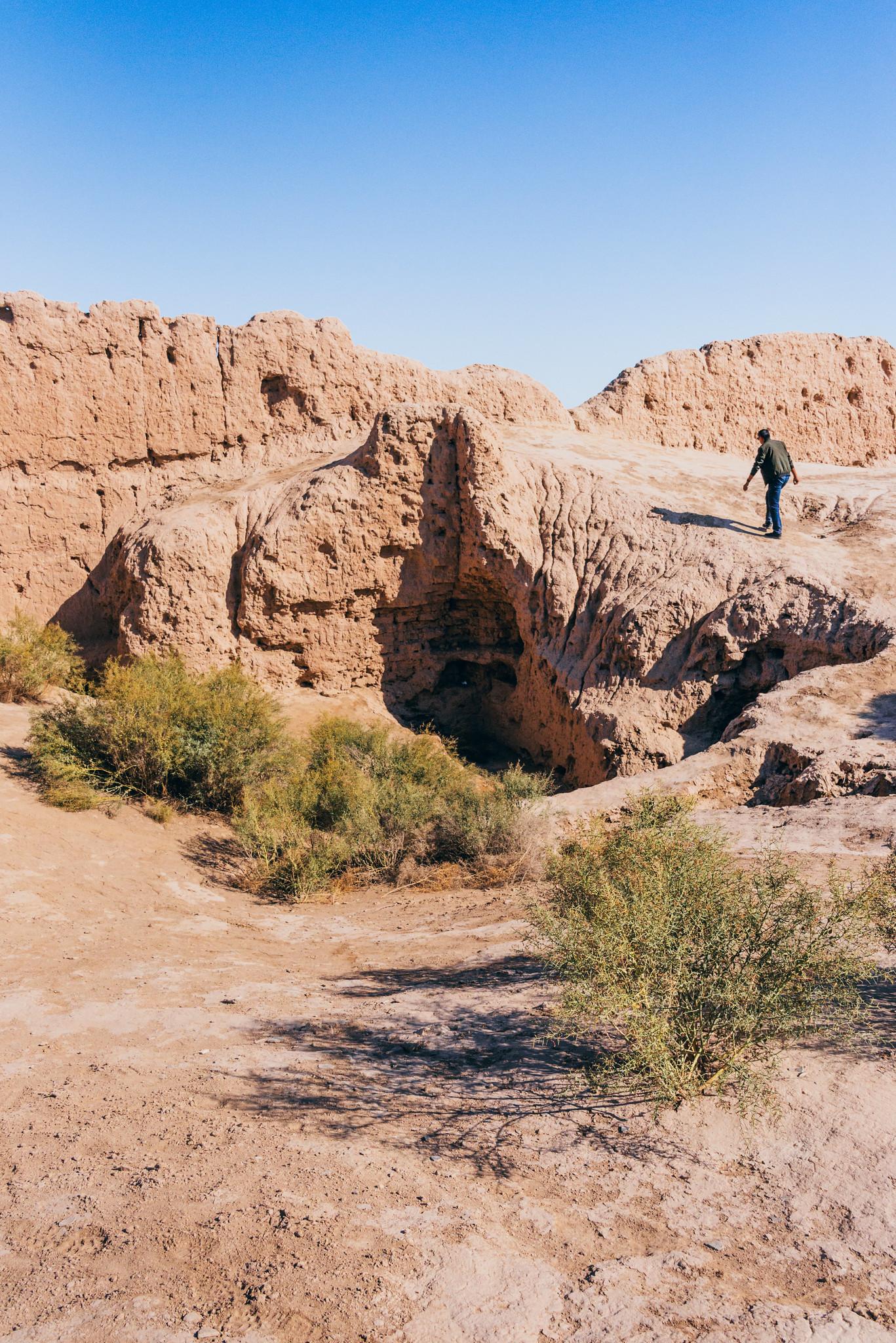
It’s noon but the sky was still wearing a deep blue hue. From this kala I could have a view towards the landscape through the arrow slits, gazing at the arid land yet teeming with life. Emerged from this barren desert composed merely of rocks and sand were the trees having their leaves turning yellow in the autumn season, which was such a strange mesmerizing scenery to behold.
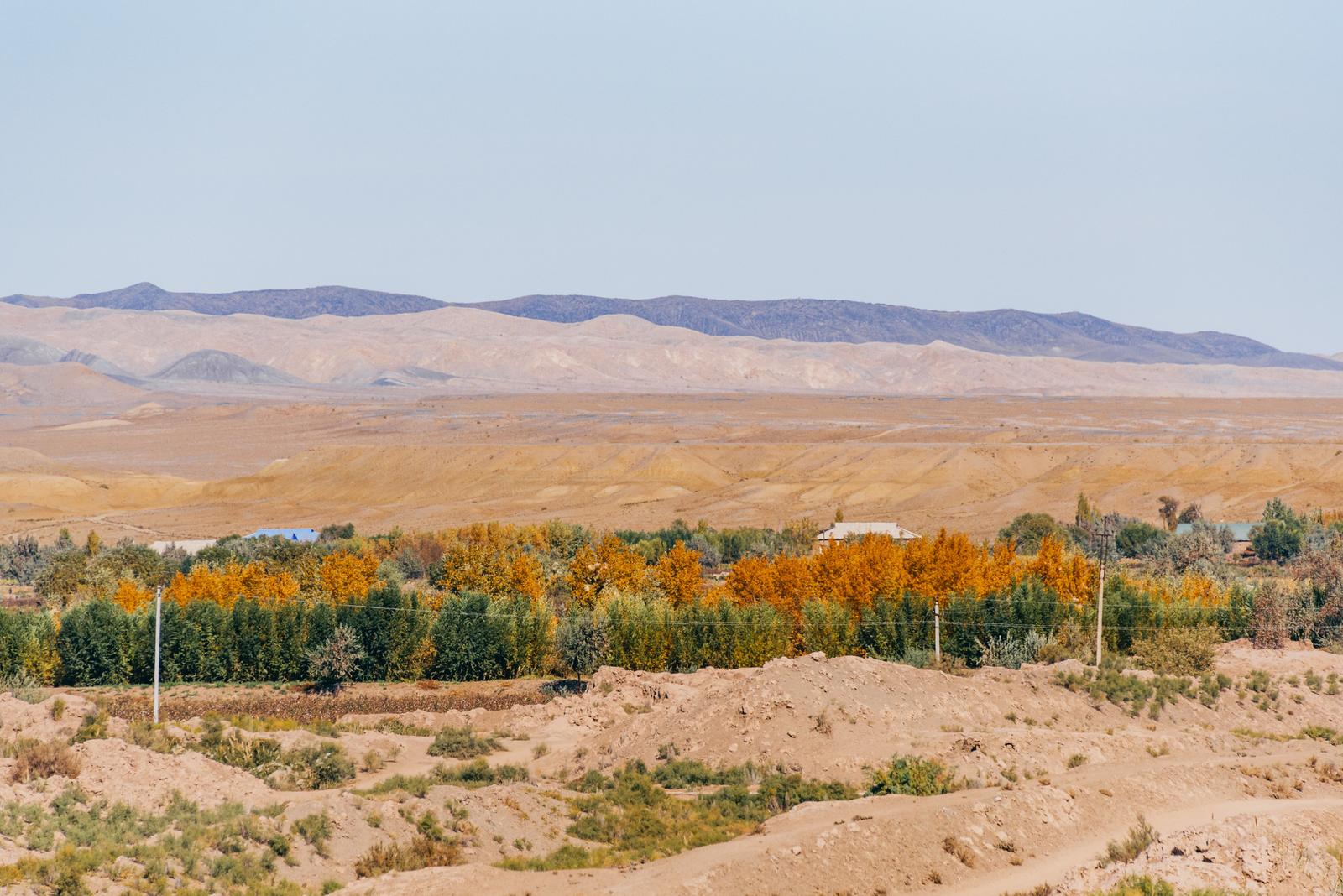
Our car then trailed southwards passing by Akhchakol Lake to Bustan where we stopped for lunch. The journey was gentle and pleasant, uplifting the traveler’s spirit.
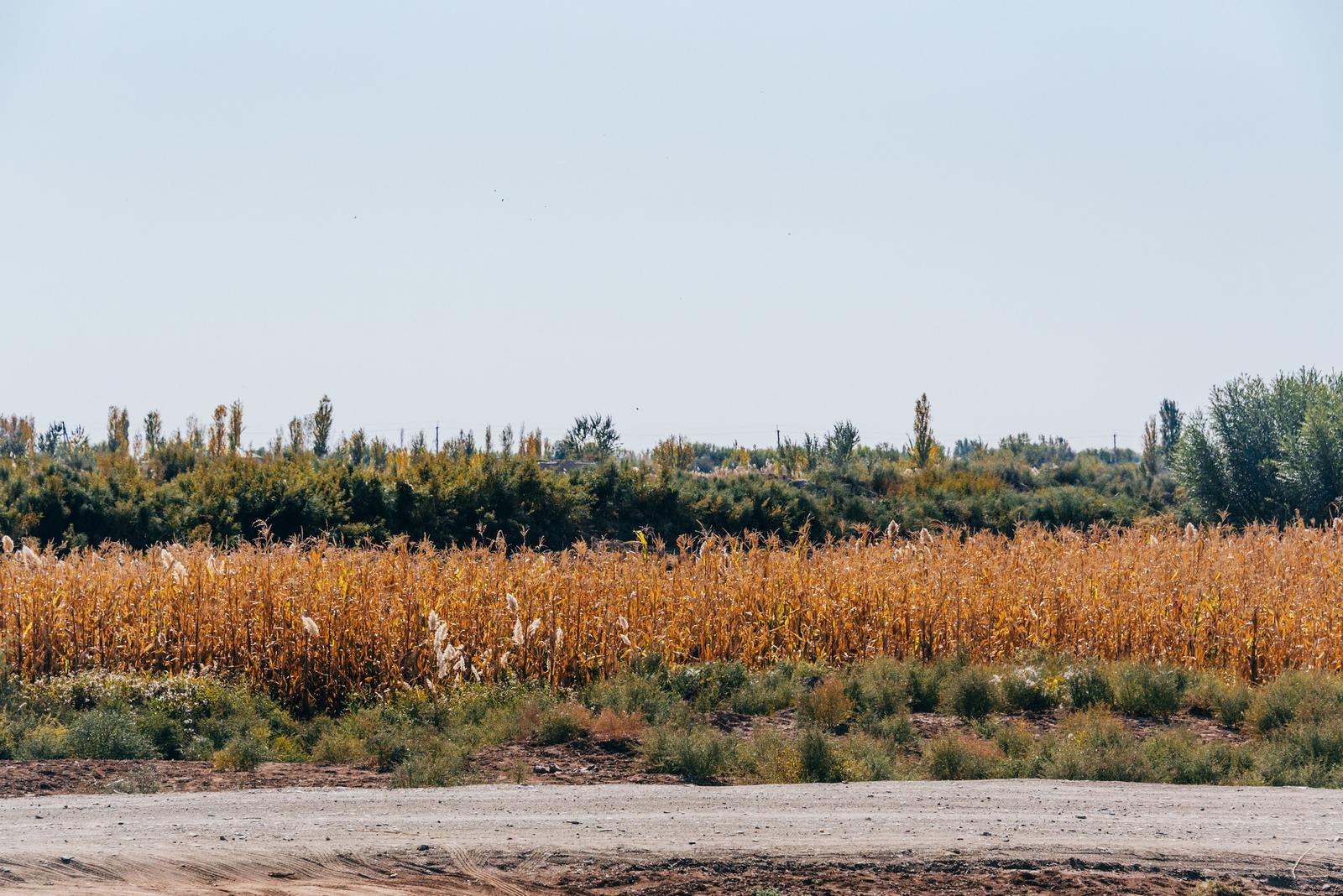
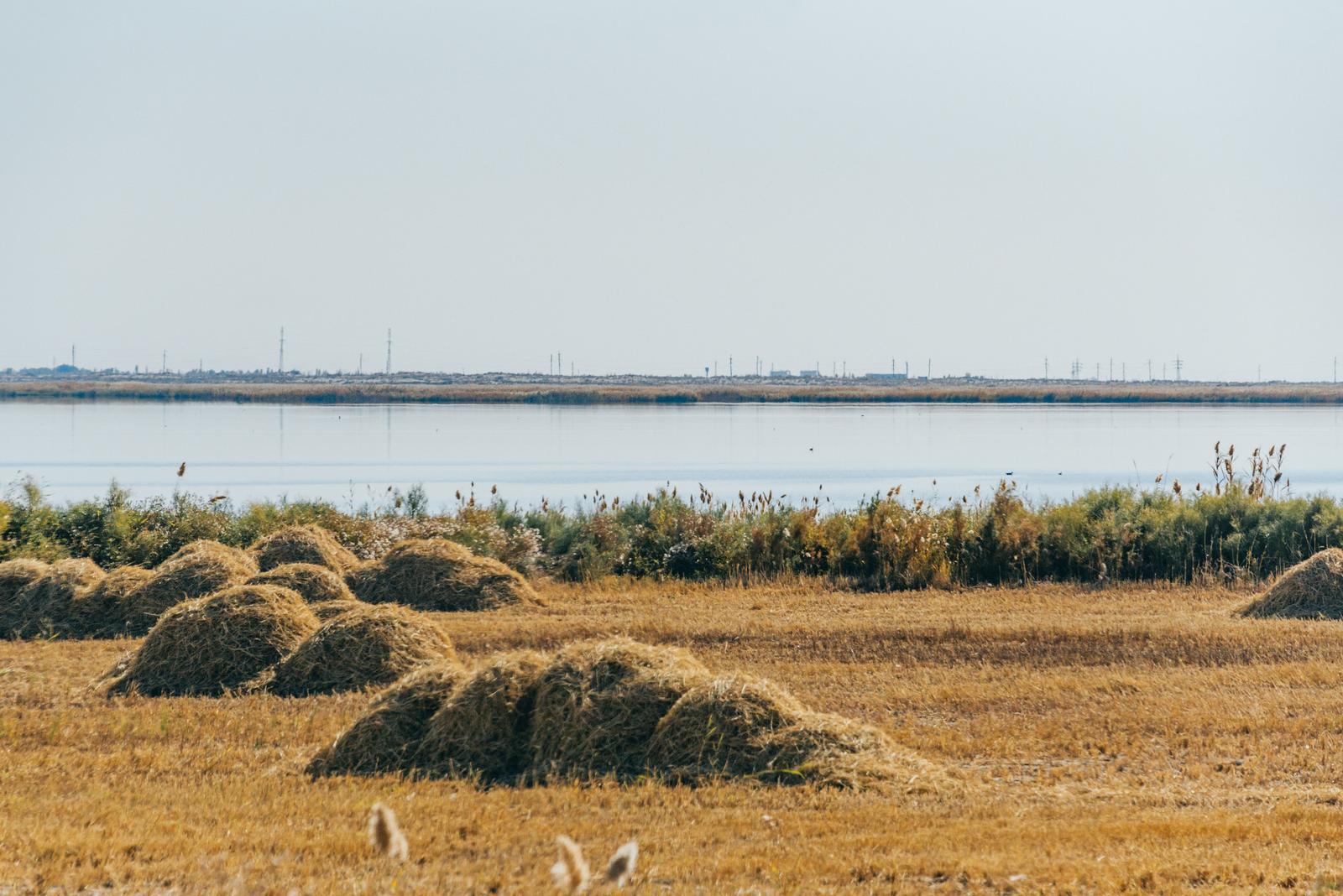
This was an occasion where I could try some dishes from Karakalpak though a bit hard to taste, like flour cakes paired with milk-based soup.
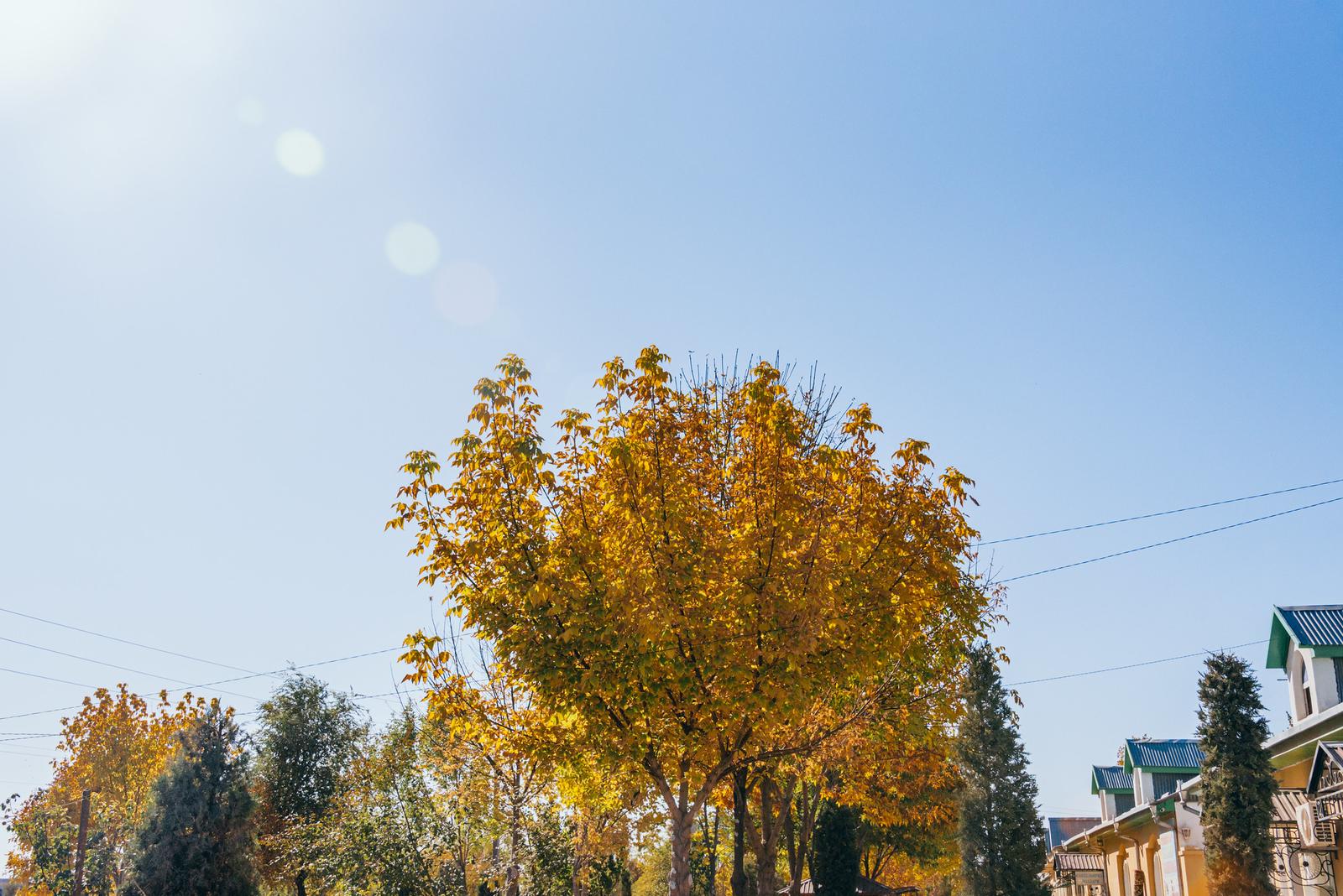
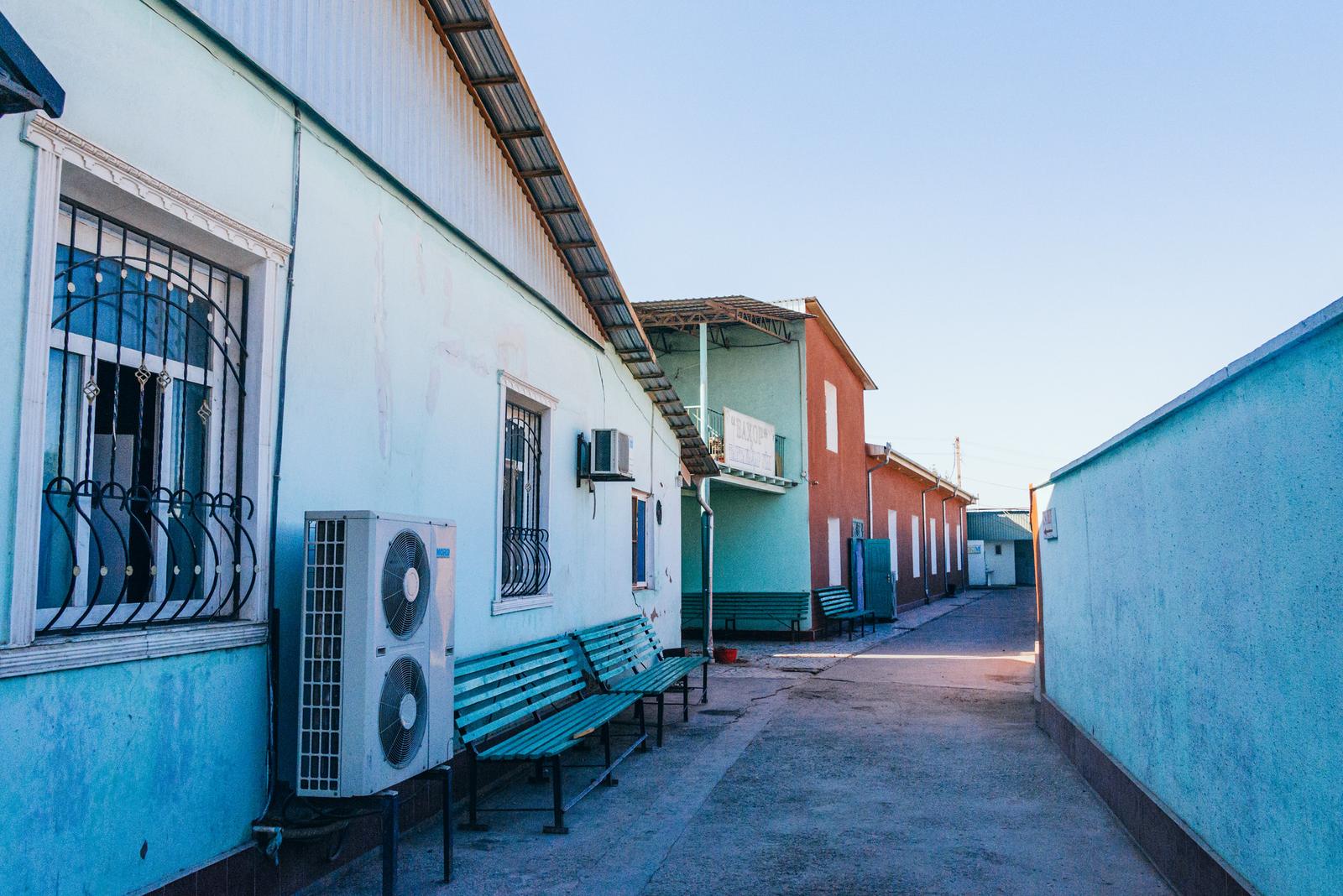
Ayaz-Kala
At this point after satisfying our appetites, we proceeded on the journey. We’re enchanted by the sight of yellow foliage along the roadside that I couldn’t stop pressing the trigger button for each meter the car passed by, like an excited child discovering new toys.
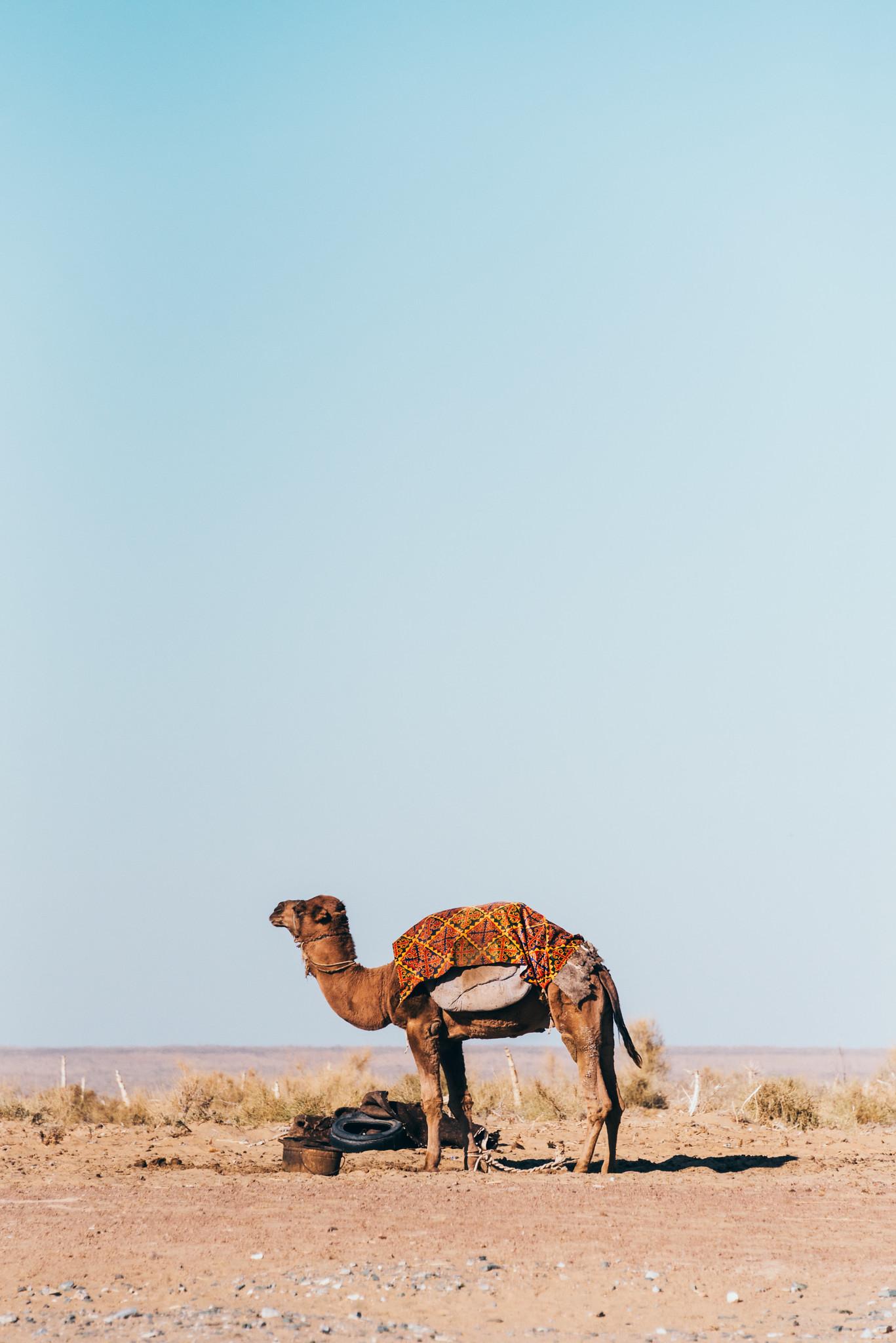
From Bustan, we headed northeast towards Ayaz-Kala. There comprises three kalas laid inside Kyzylkum Desert. Ayaz-Kala is believed to be the oldest among the fortress sites, dating back to the BC era. It’s incredible that the tall, thick walls are still standing strong today.
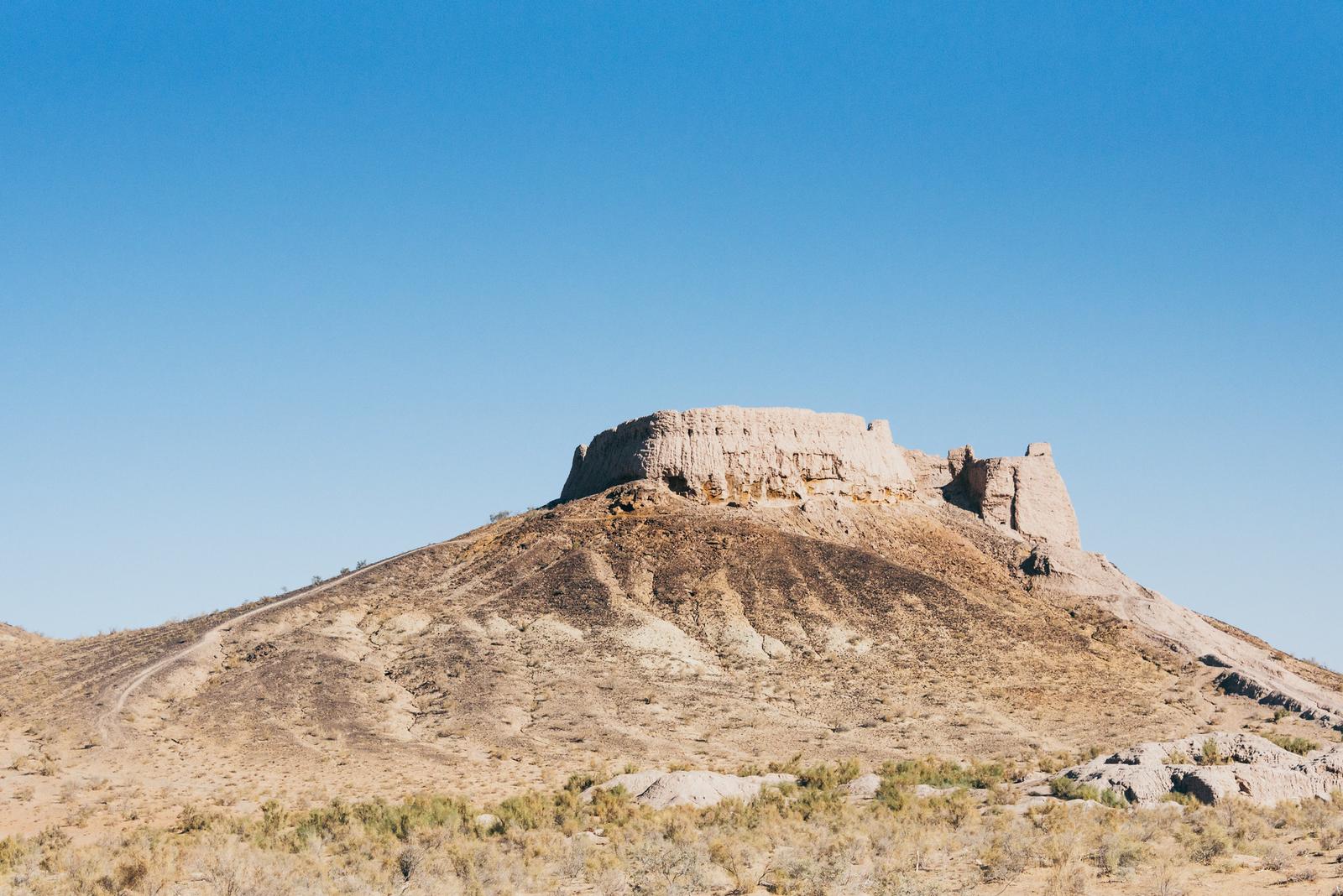
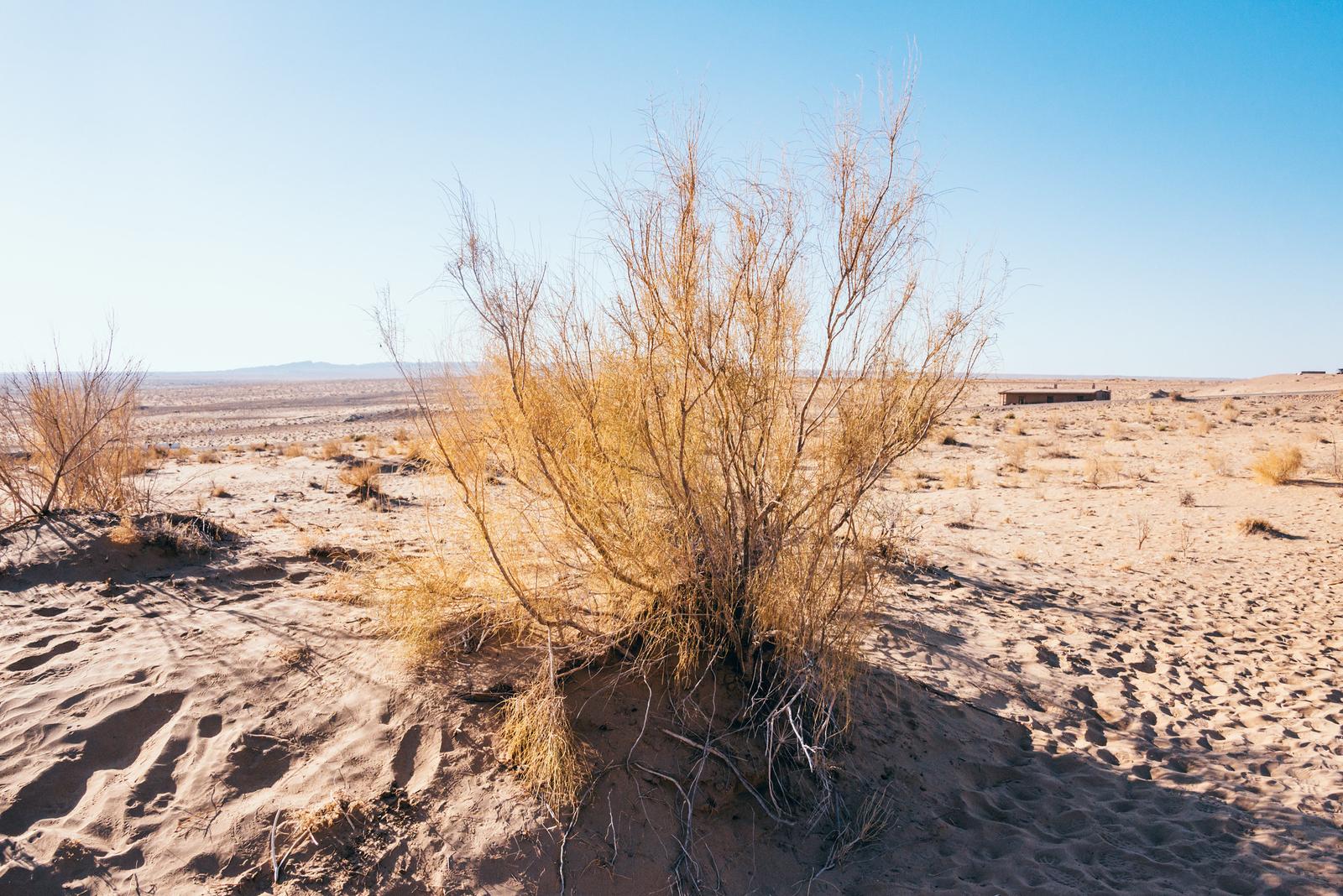
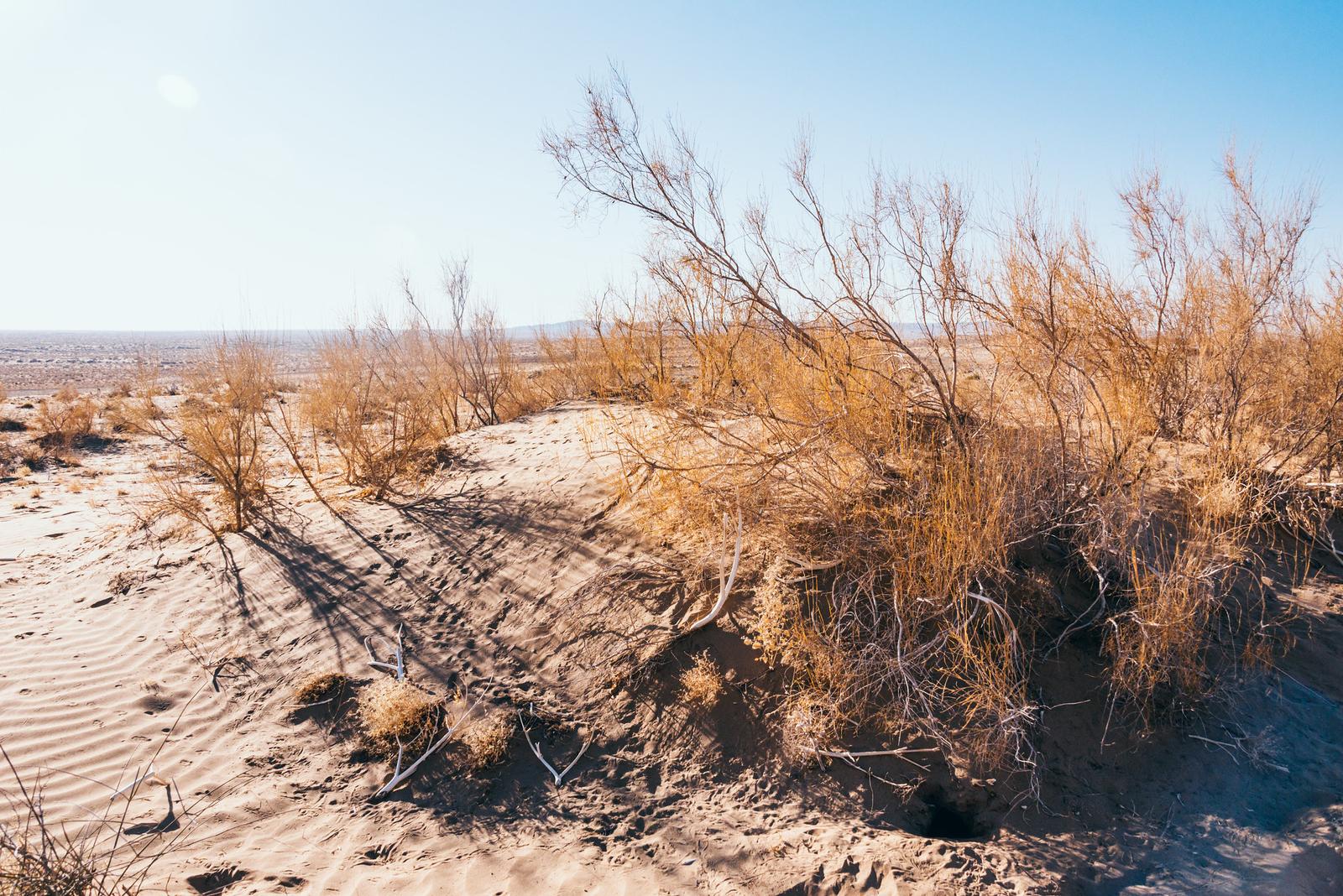
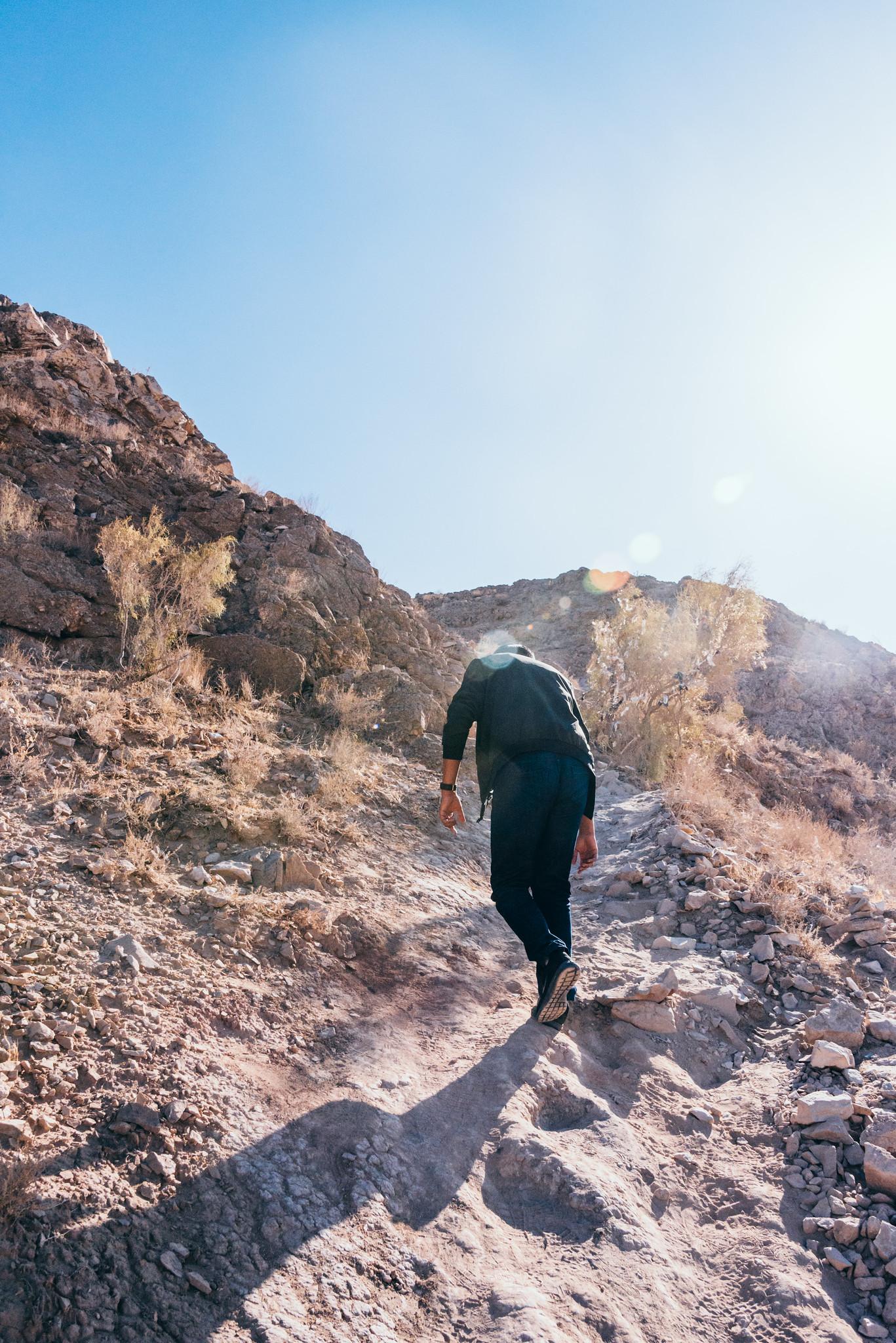
Despite being completely covered with sand, this was far from being a desolate desert where we could notice the shrubs awaiting those rare rainy days to thrive. It’s definitely an ideal spot for camping and stargazing at night thanks to the clear, high, unobstructed sky.
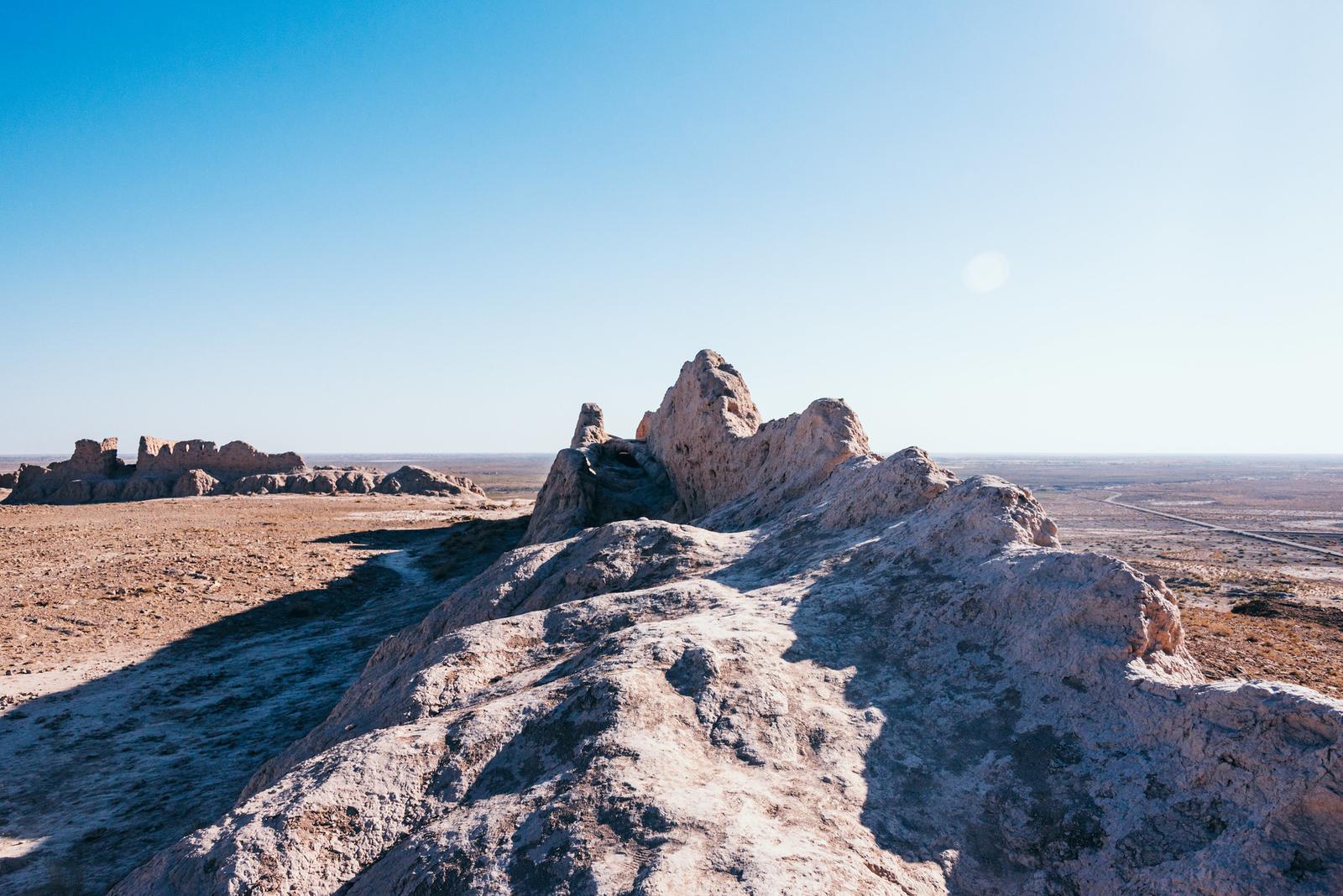
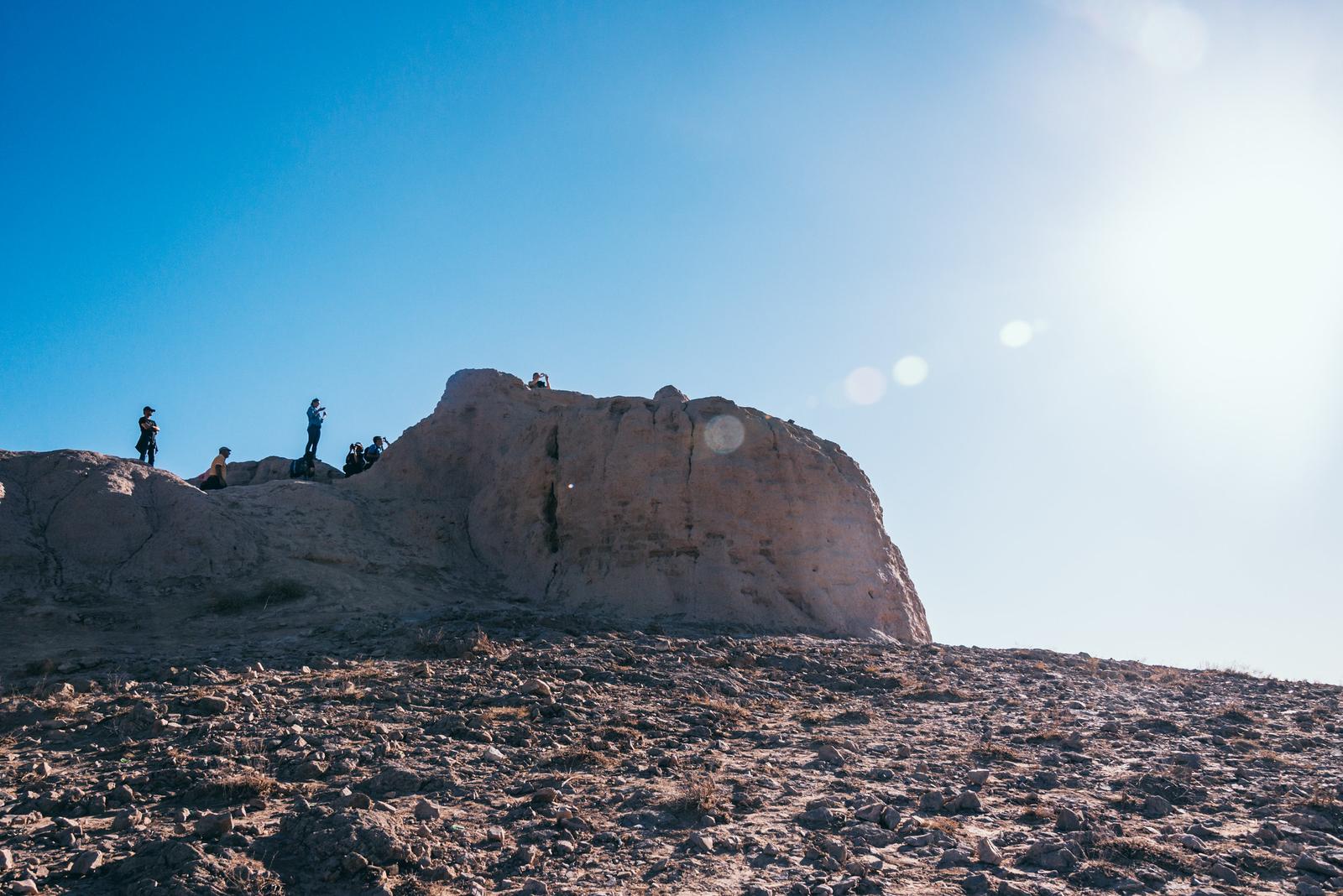
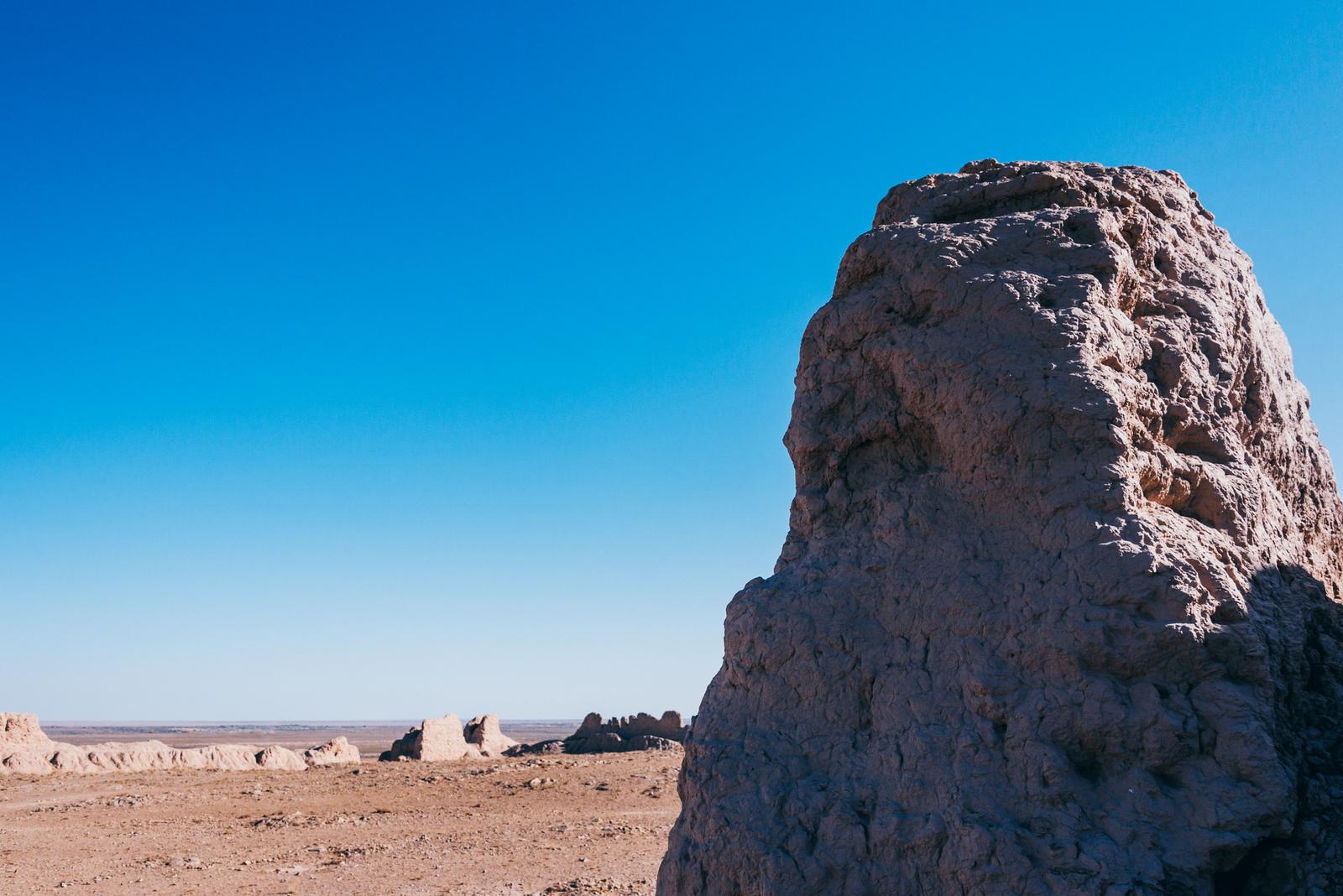
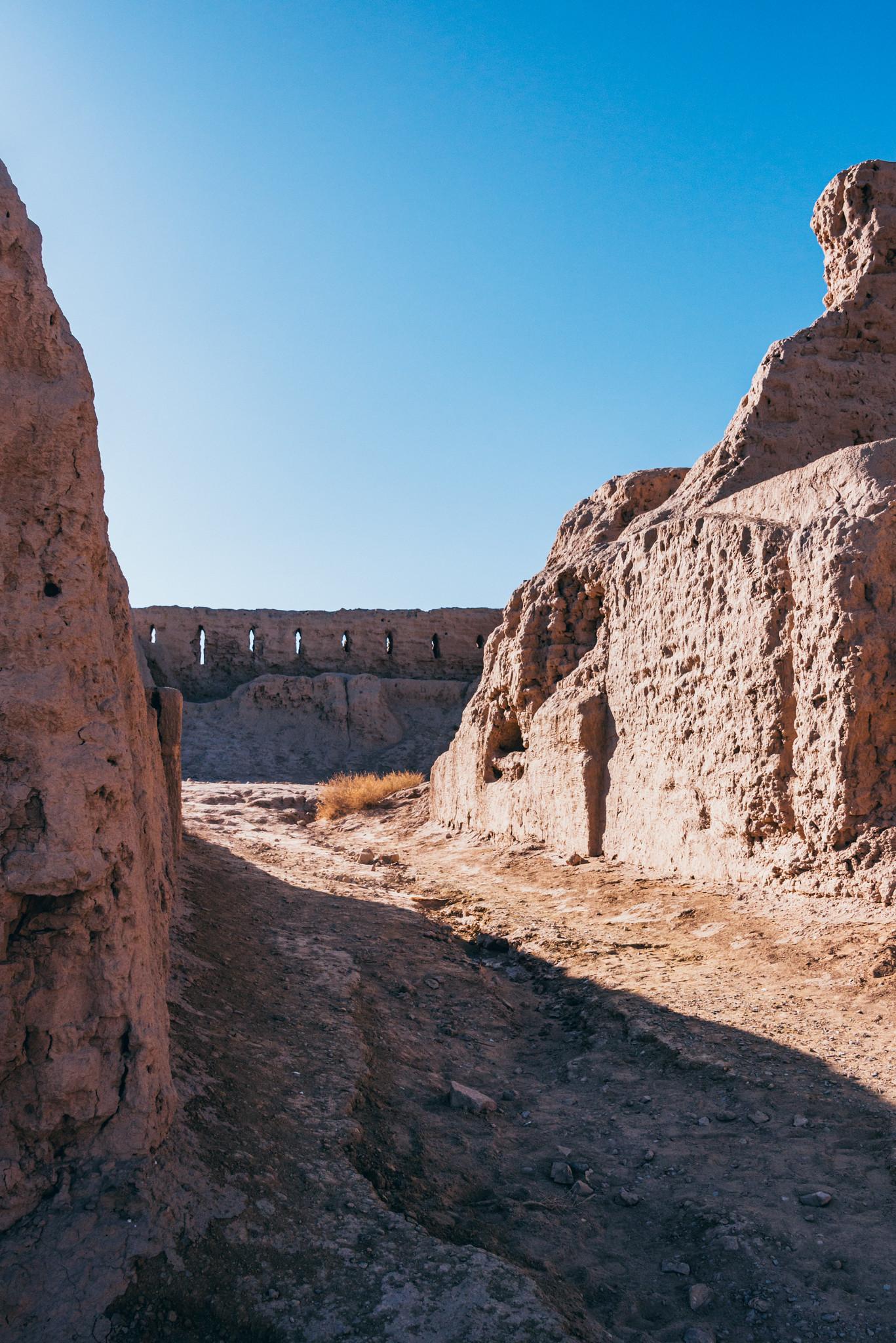
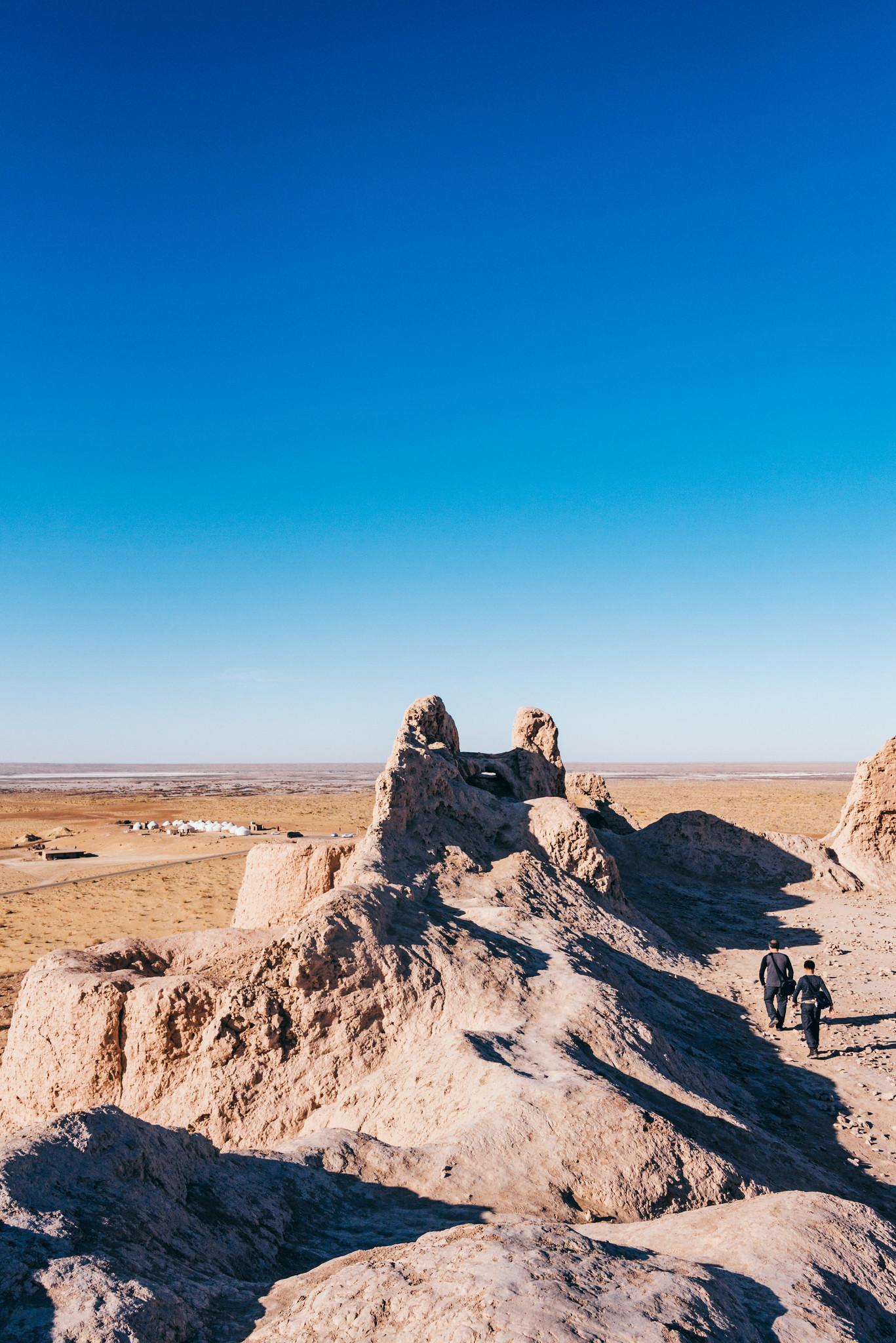
The tour guide led me to hike up the Ayaz-Kala 1, from there I could have a panoramic view of Ayak-Kala 2 situated at a lower elevation.
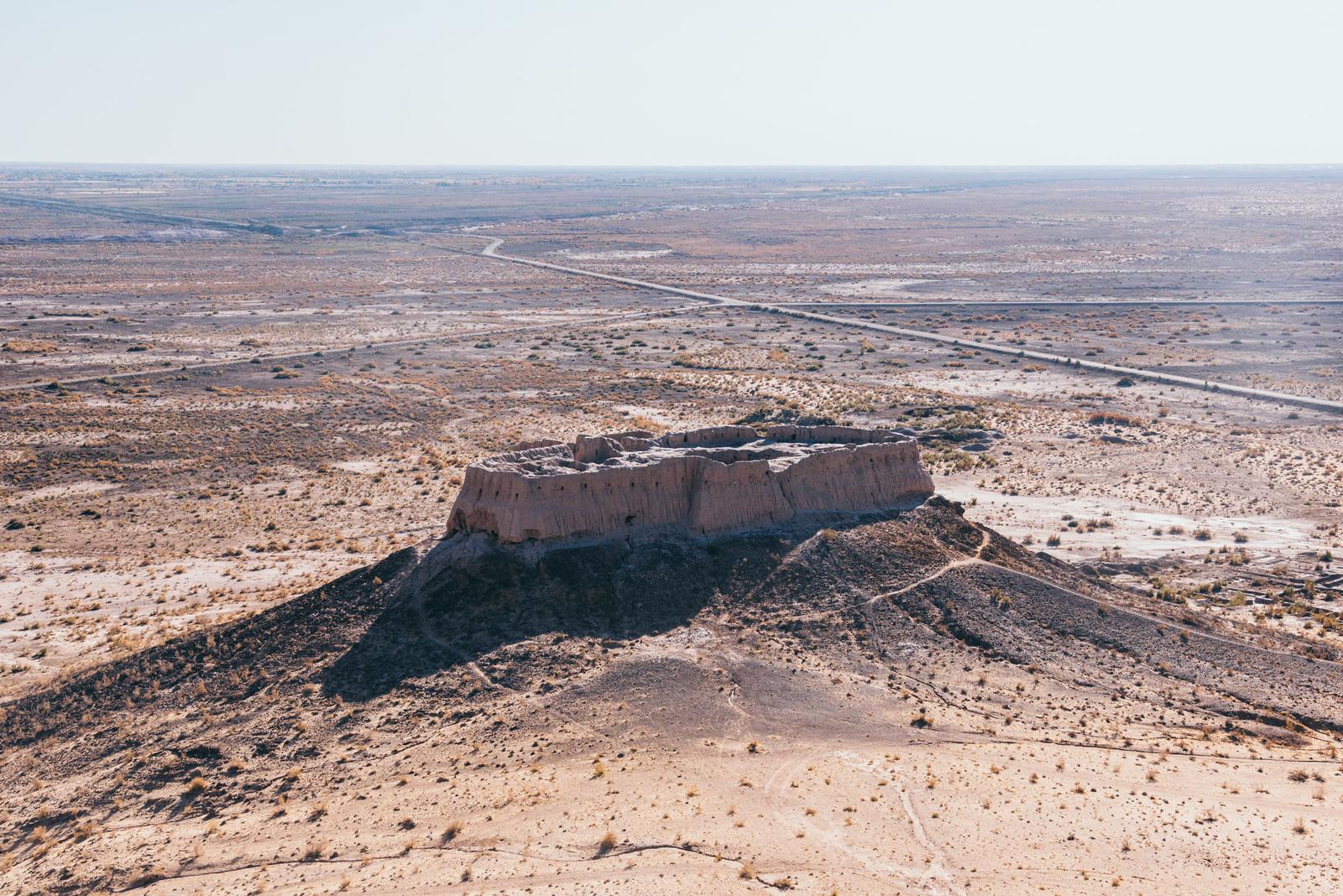
In reality the fortresses were magnificent wonders yet not so many travelers took notice of them, throughout the entire journey just a few people shared the same curiosity about this solitary place in my sight. By the way this also brought about a sense of delight, as it made me feel like an esteemed guest of the history.
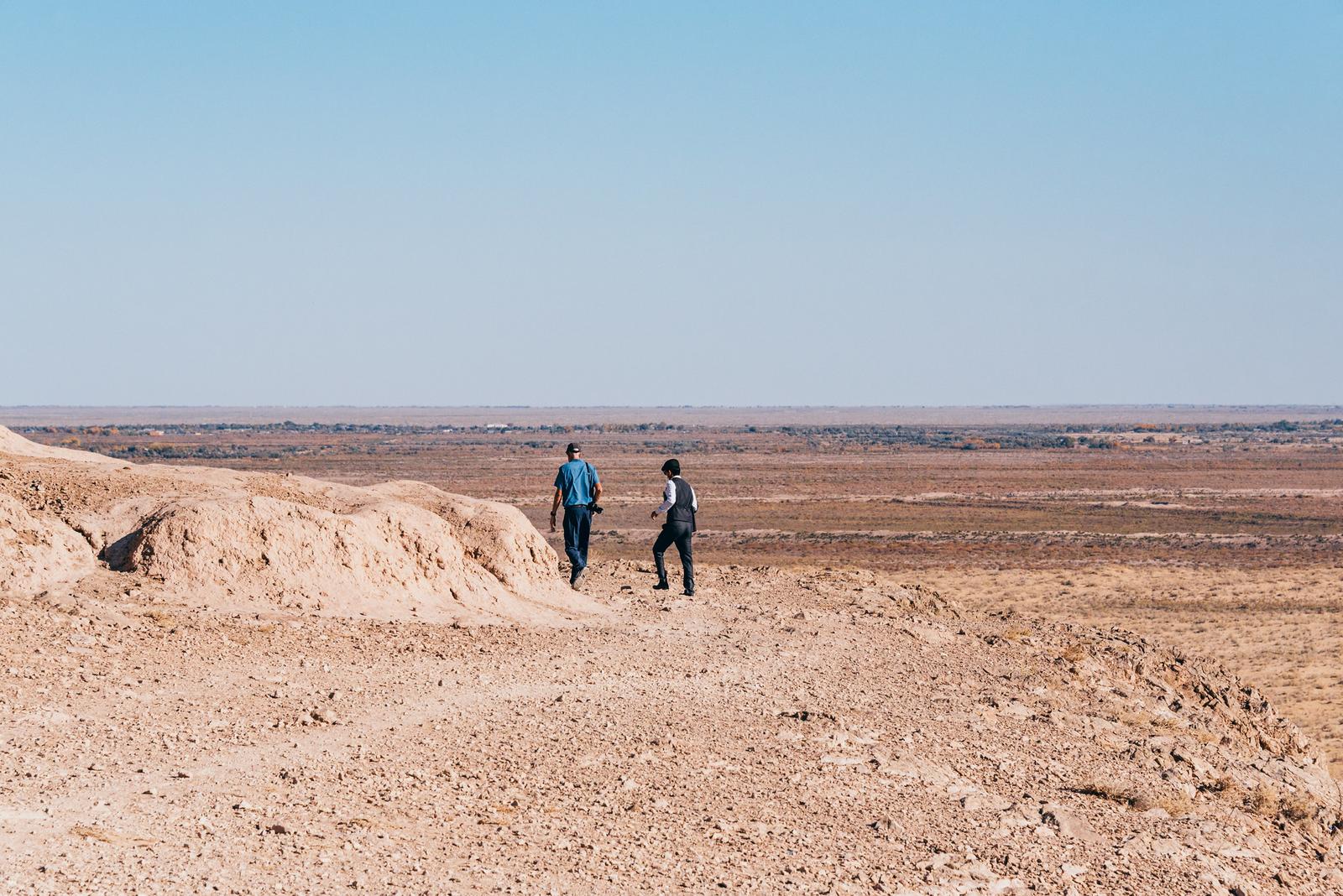
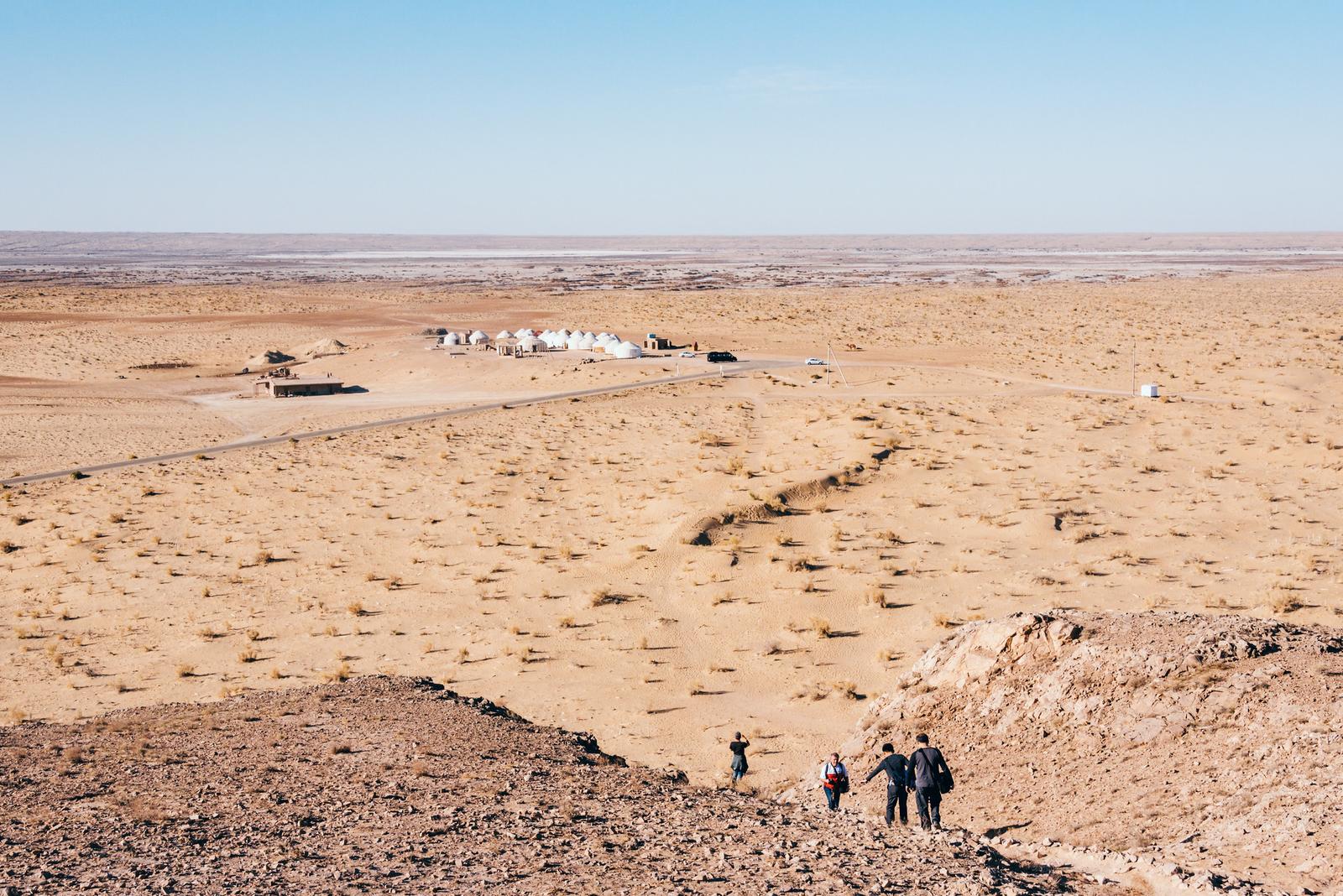
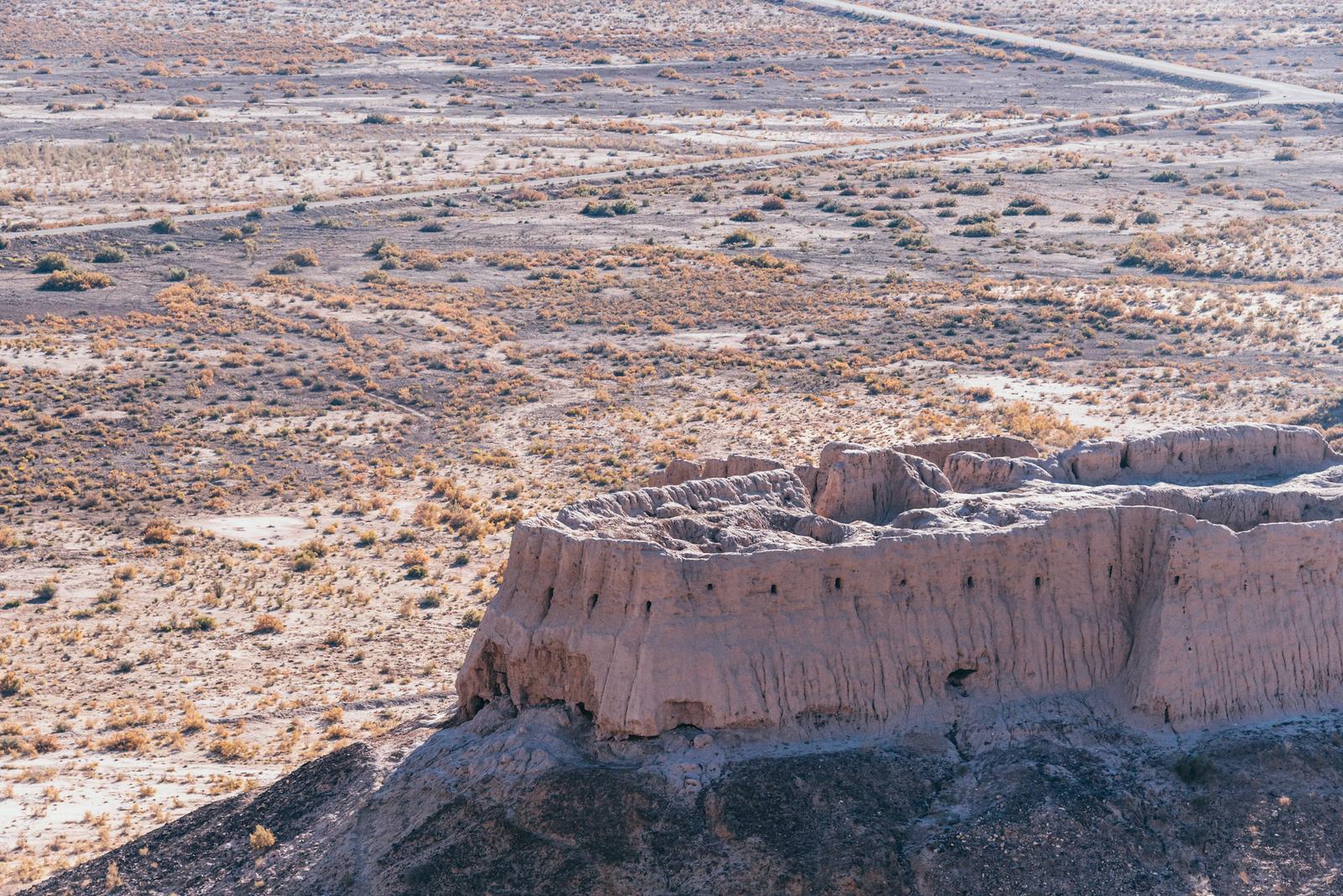
The Nomadic Yurts
I asked my tour guide to skip the other kala, instead I would take this valuable chance to experience the life of a nomadic village near Ayaz-Kala. There I encountered yurt tents which are easily recognizable in case you’ve ever watched films about Genghis Khan.
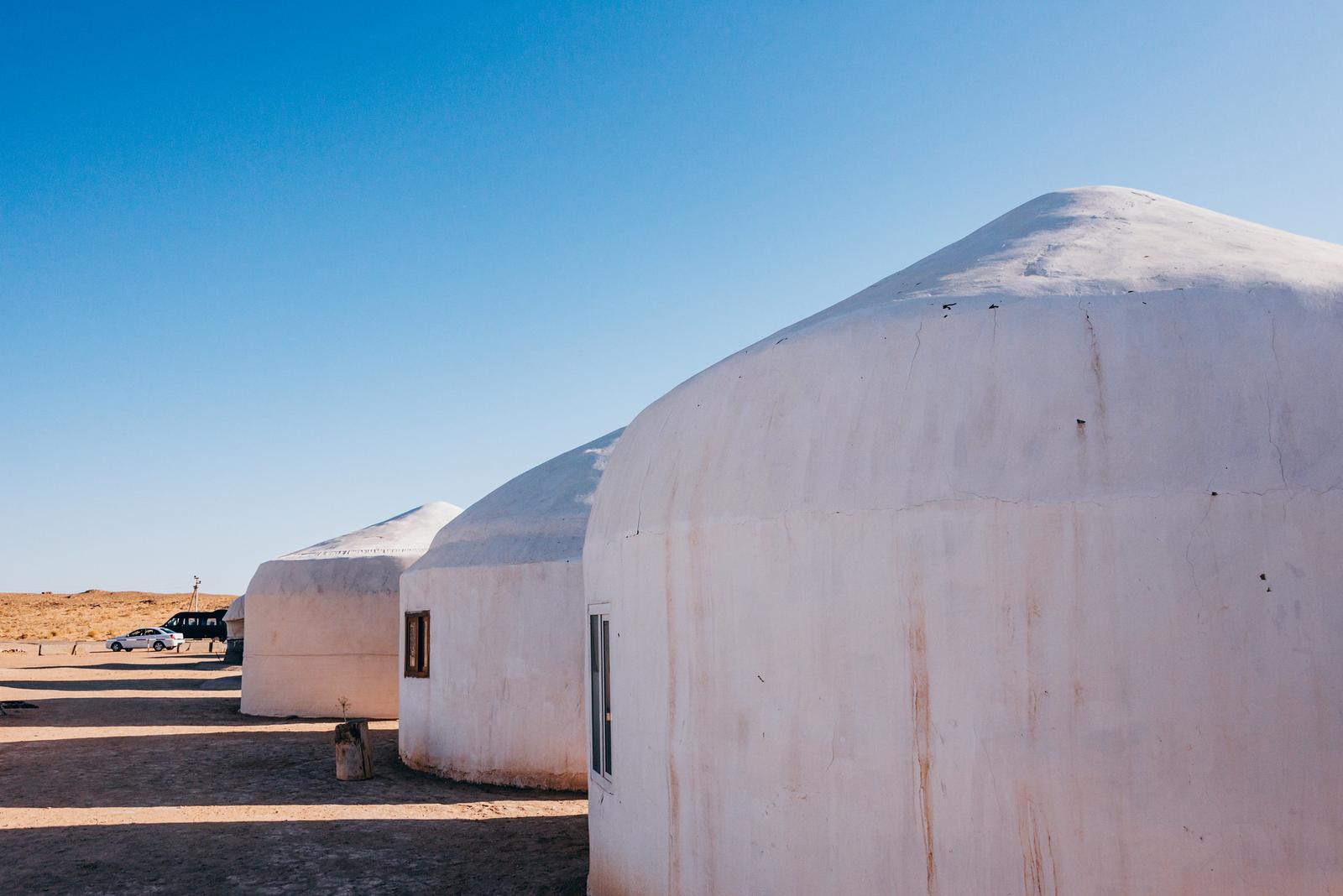
A yurt can be easily assembled or dismantled; its interior provides ample space and is kept insulated thanks to animal skin walls.
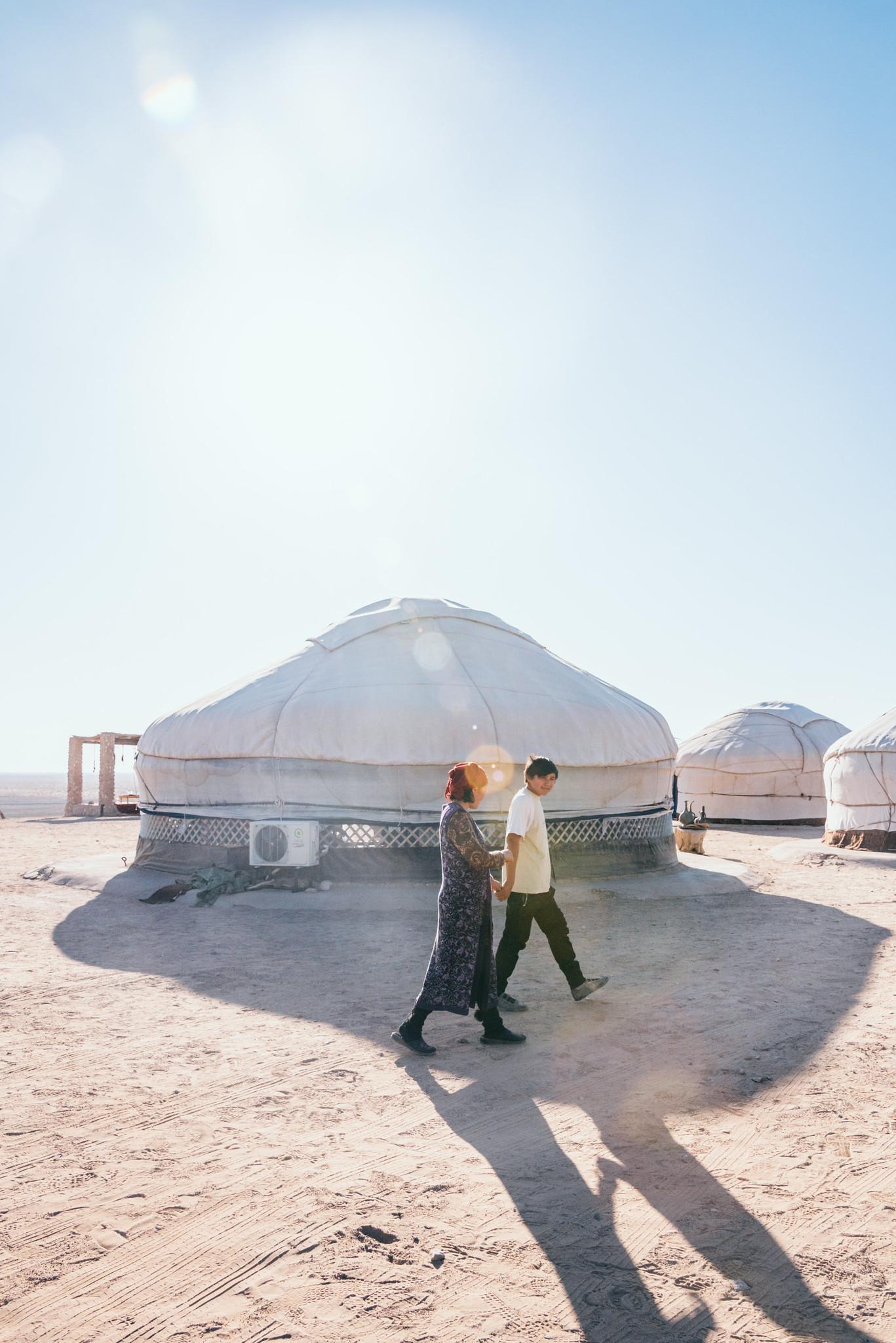
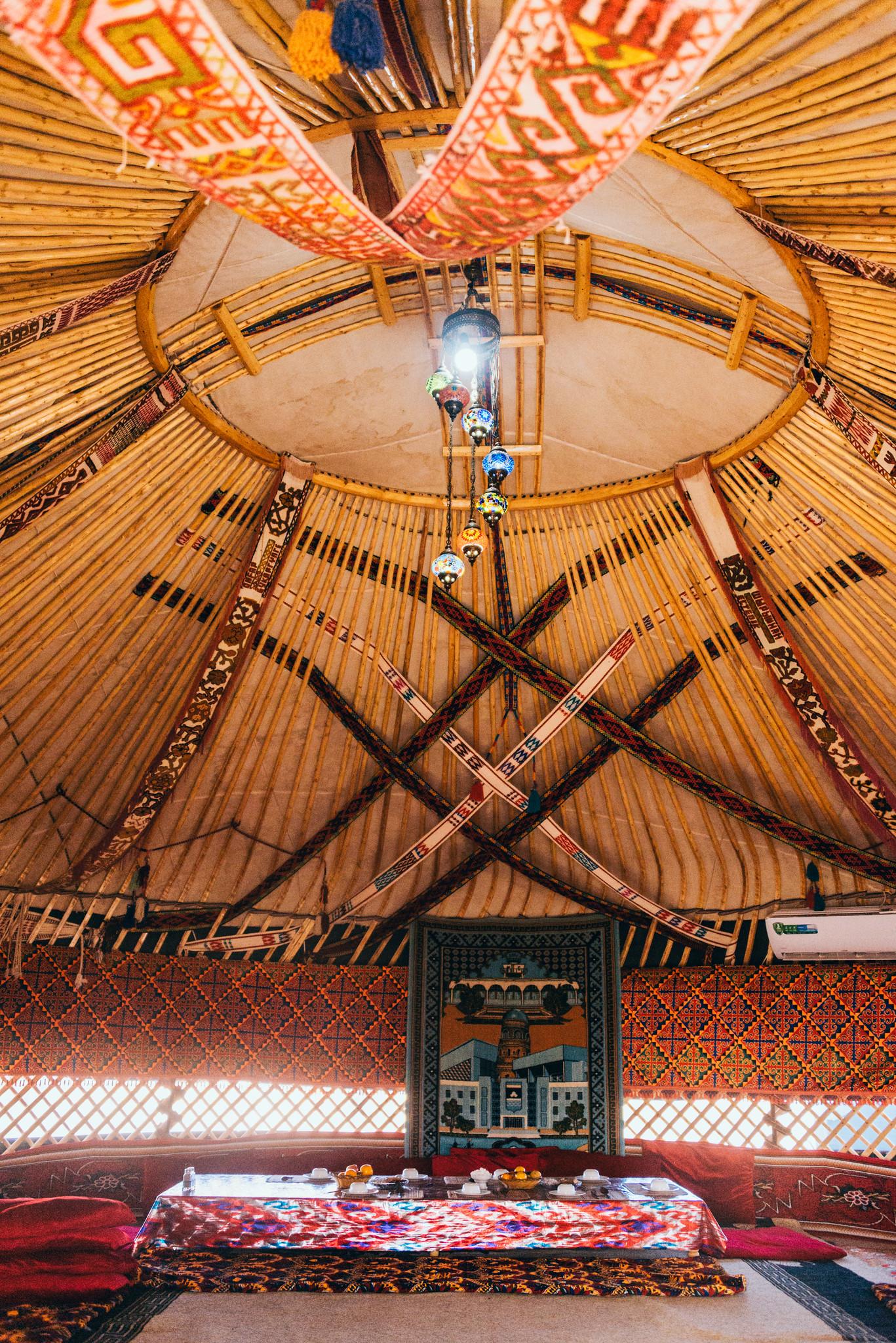
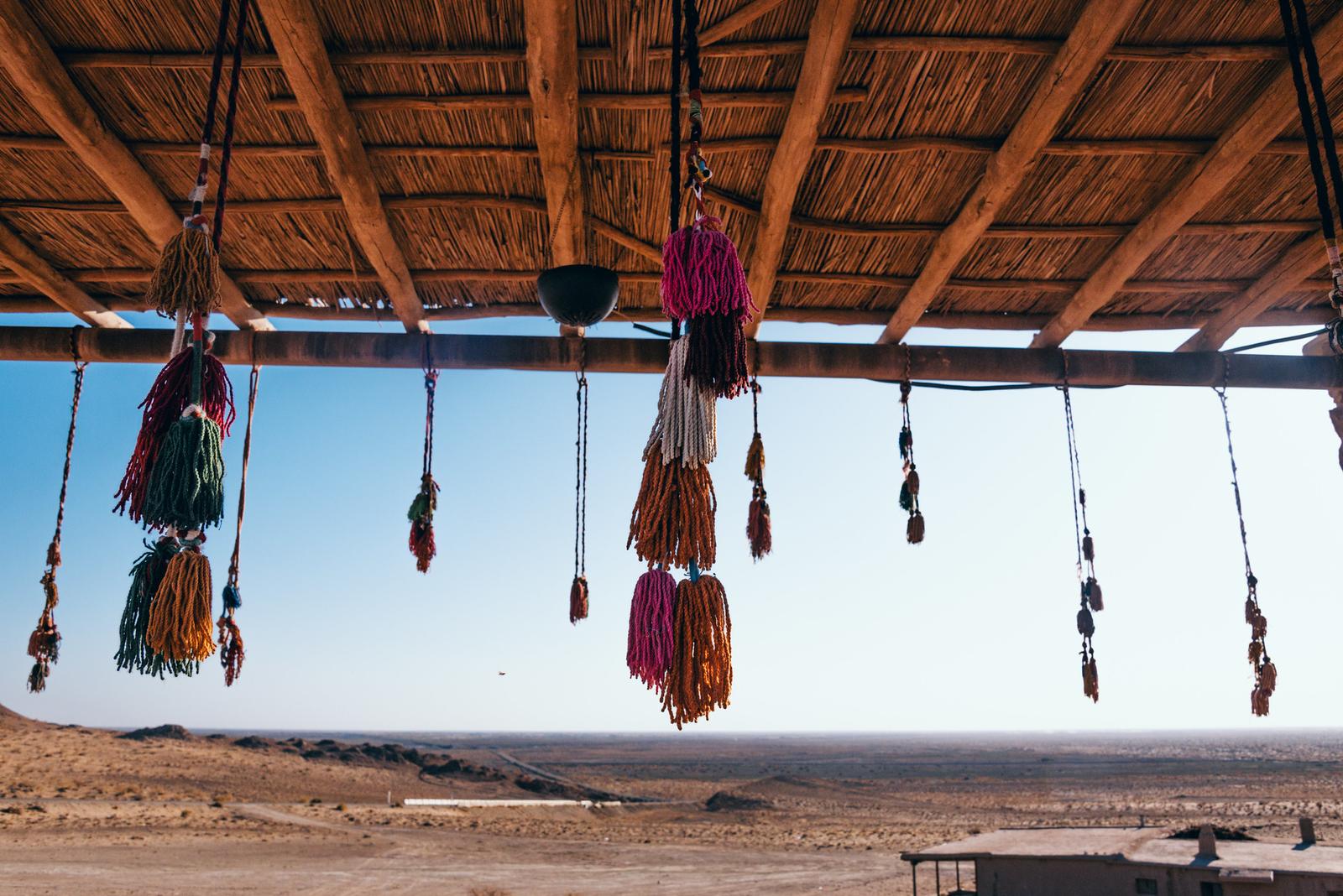
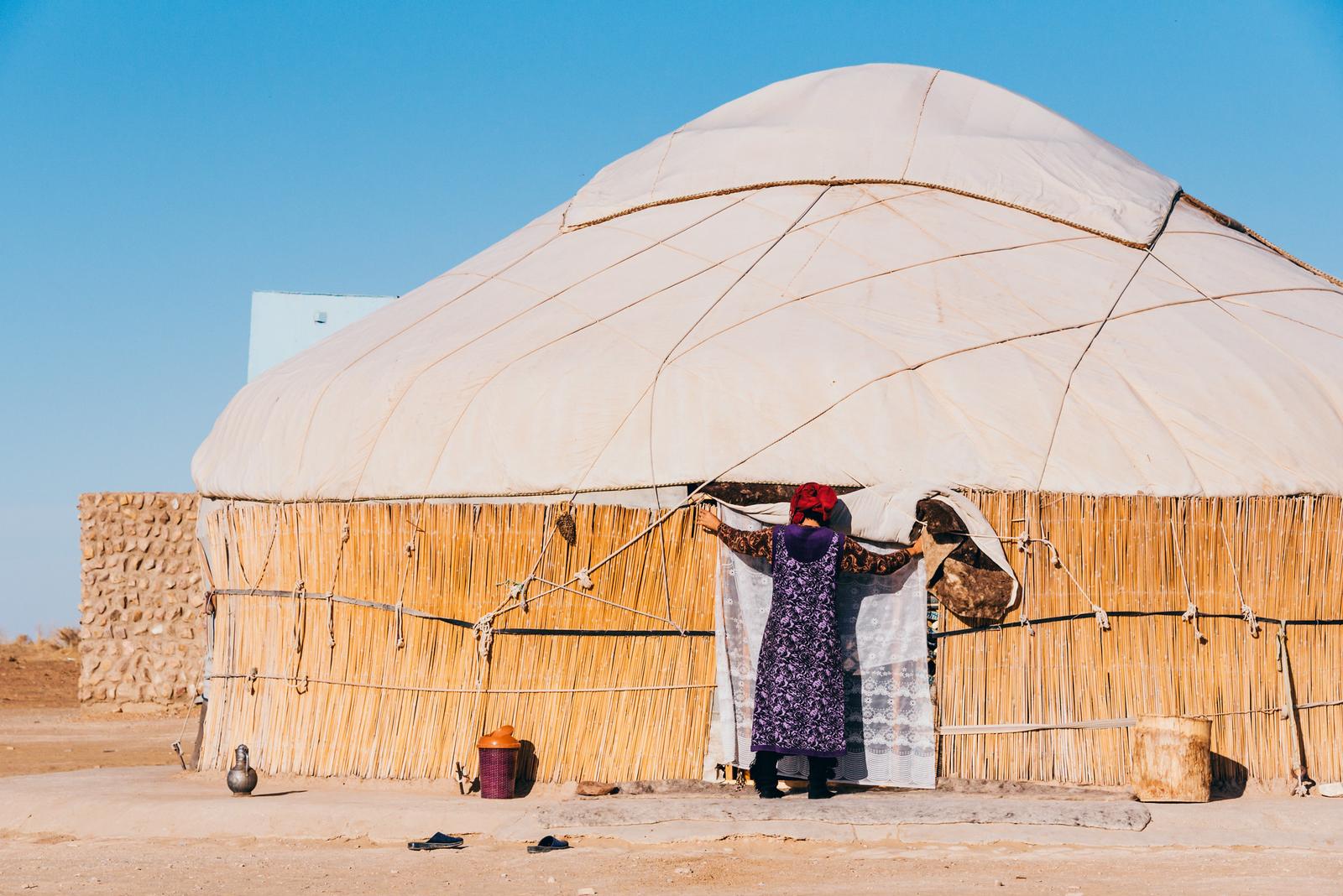
At this desolate location, I was freed from the constant anxiety and rivalry of everyday life. Time appeared to traverse more slowly, and there was an absence of busy traffic noise, flashy parties, or rowdy quarrels.
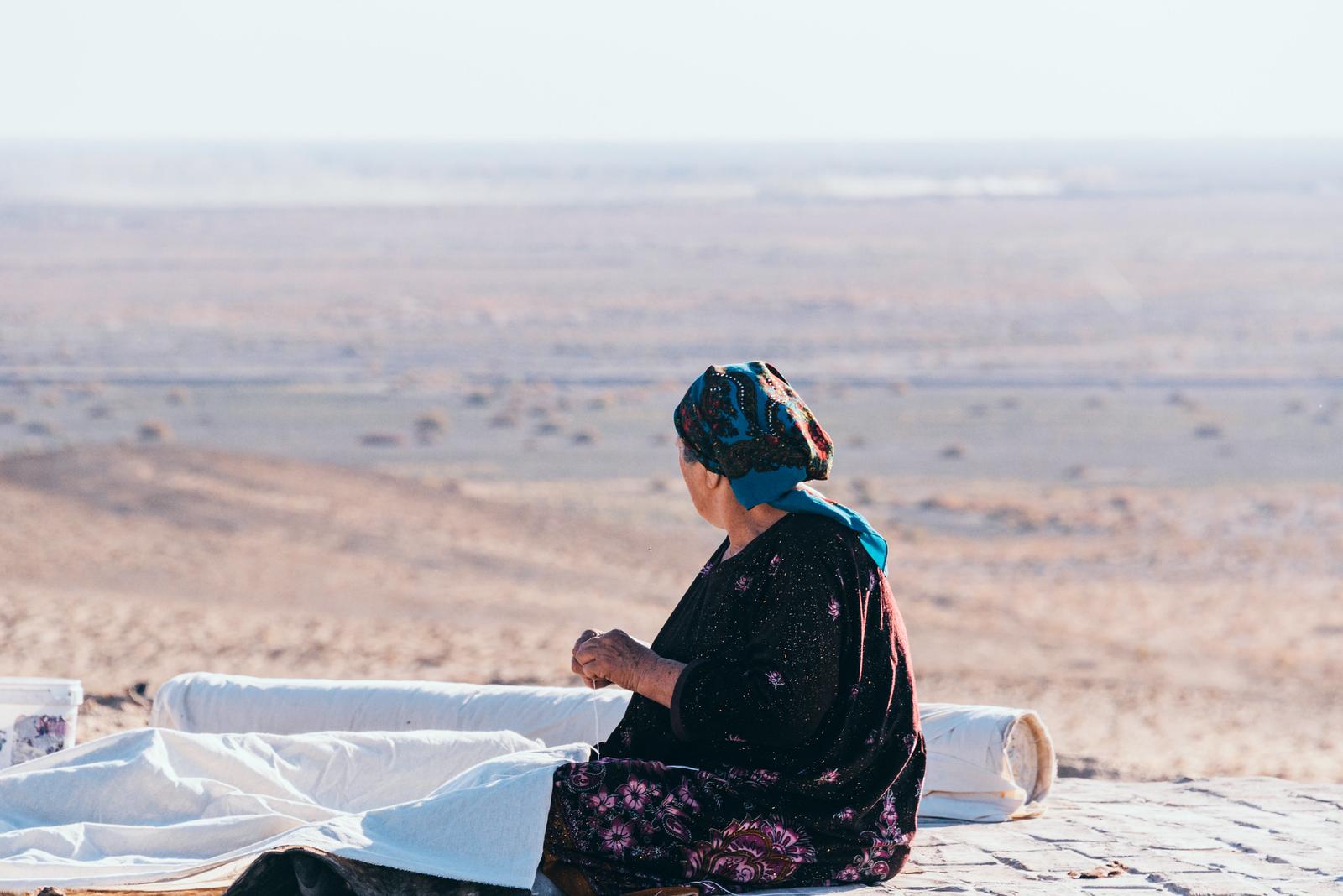
However, one absurd thing is, as we live amidst the urban’s hustle and bustle, we find ourselves working tirelessly to finance the dream adventures to secluded destinations.
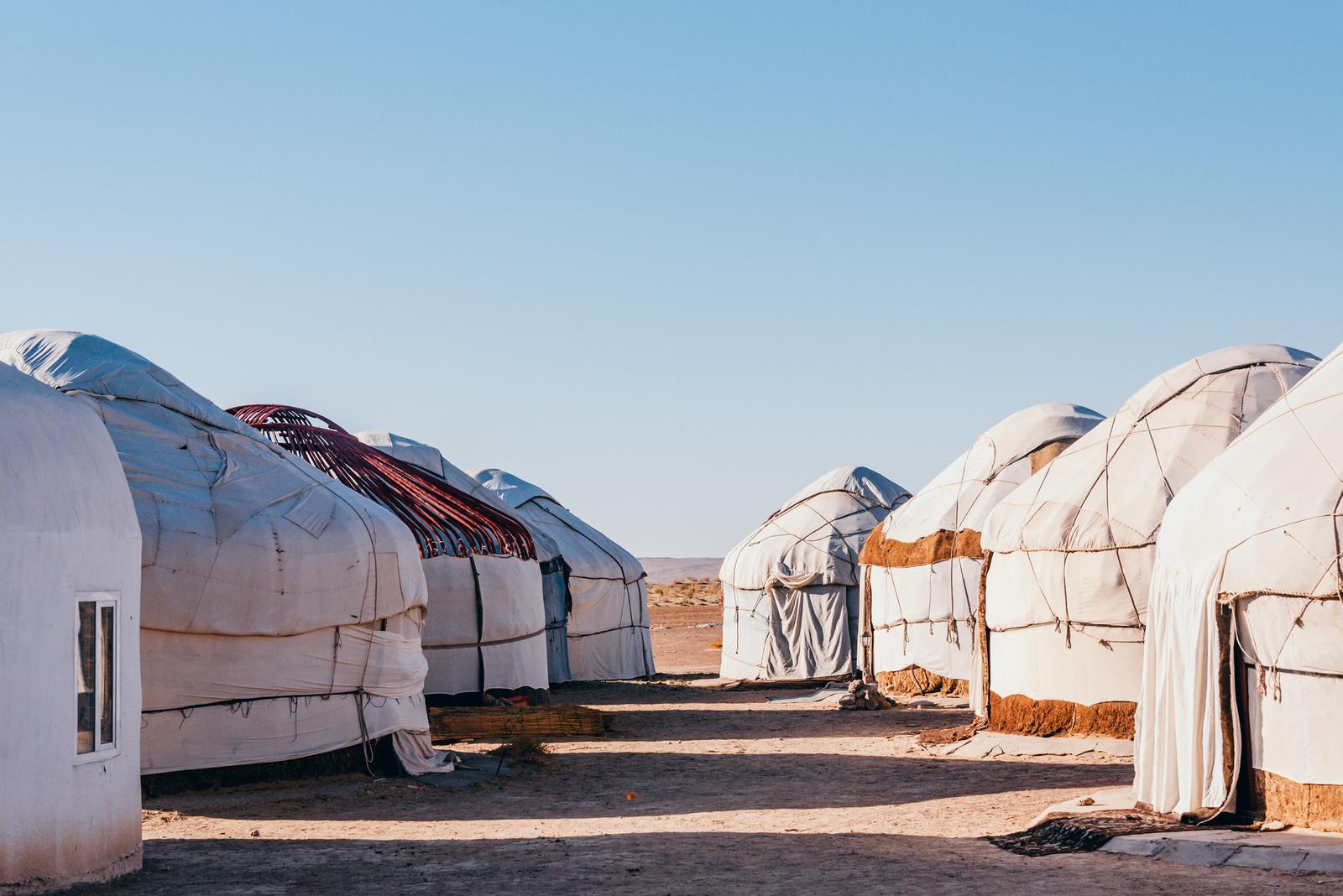
Sunset by Amu Darya
Our car wheels continued rolling towards Khiva to catch sunset on time. Despite being exhausted, I the strange traveler was seemingly cheered up by the roadside sceneries.
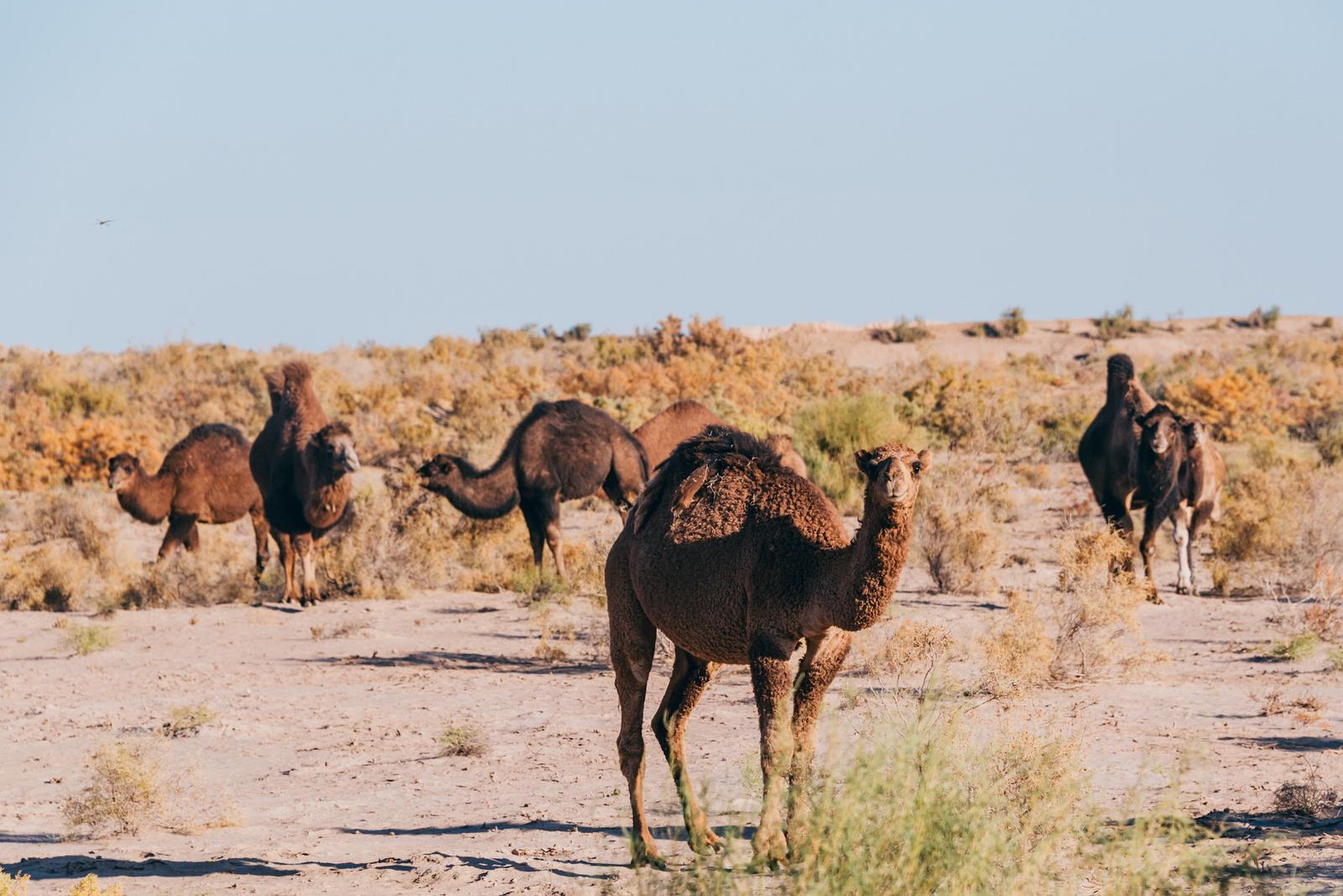
I think I love the autumn scenery in this arid land more than the lush one found in Korea or Europe-America, perhaps due to the distinct, visually-pleasing color patches that prevent overwhelming my eyes with an excessive amount of colors.
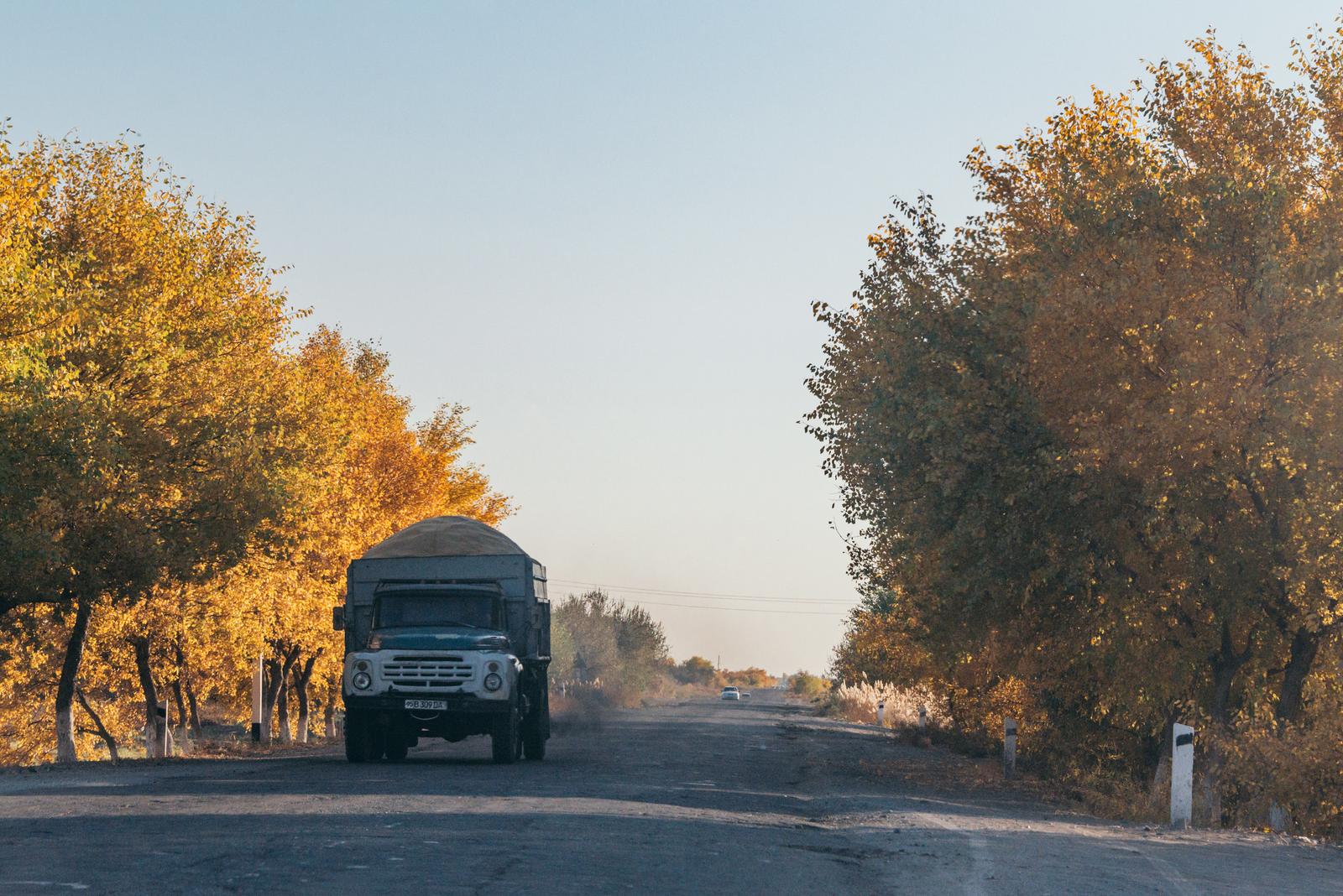
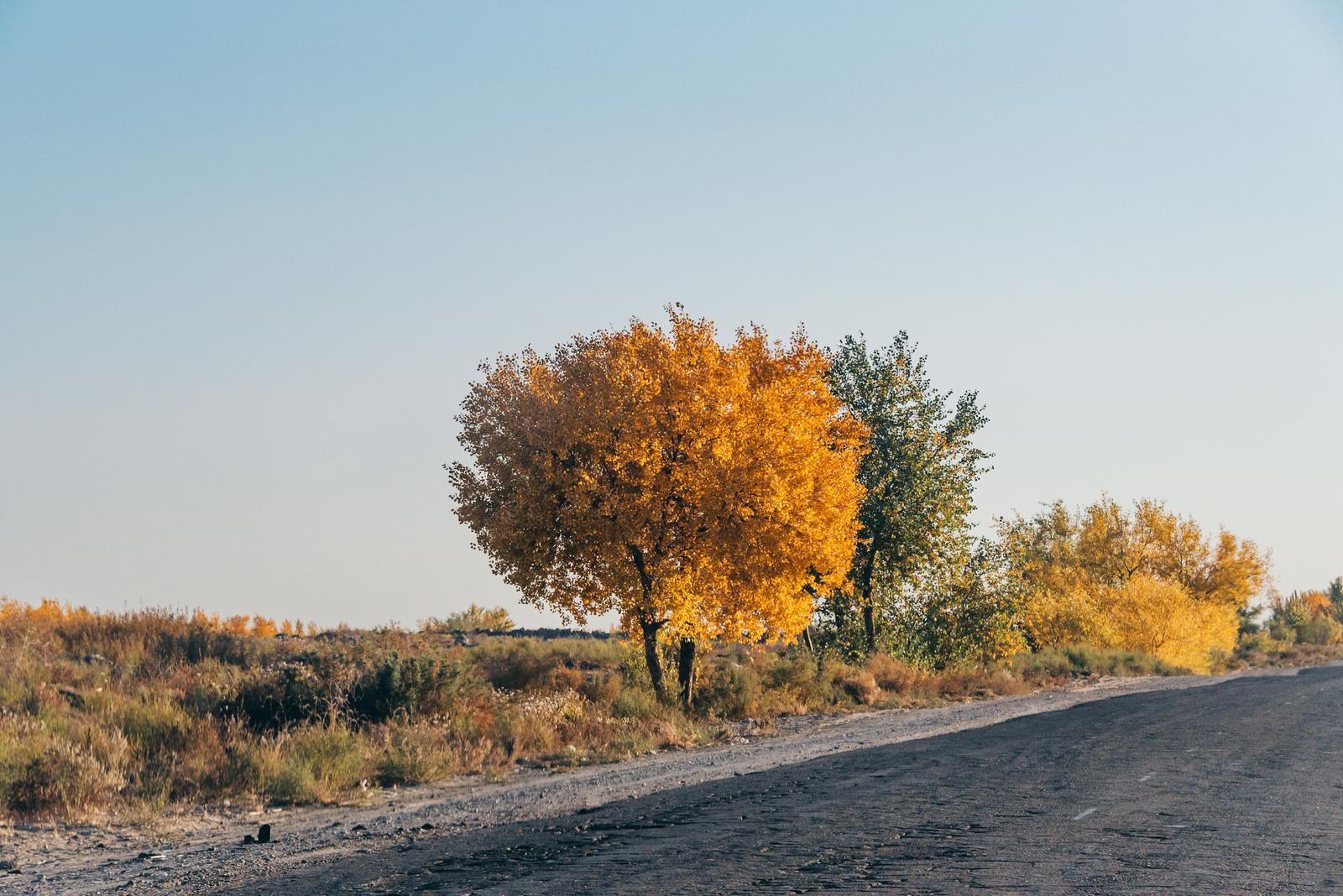
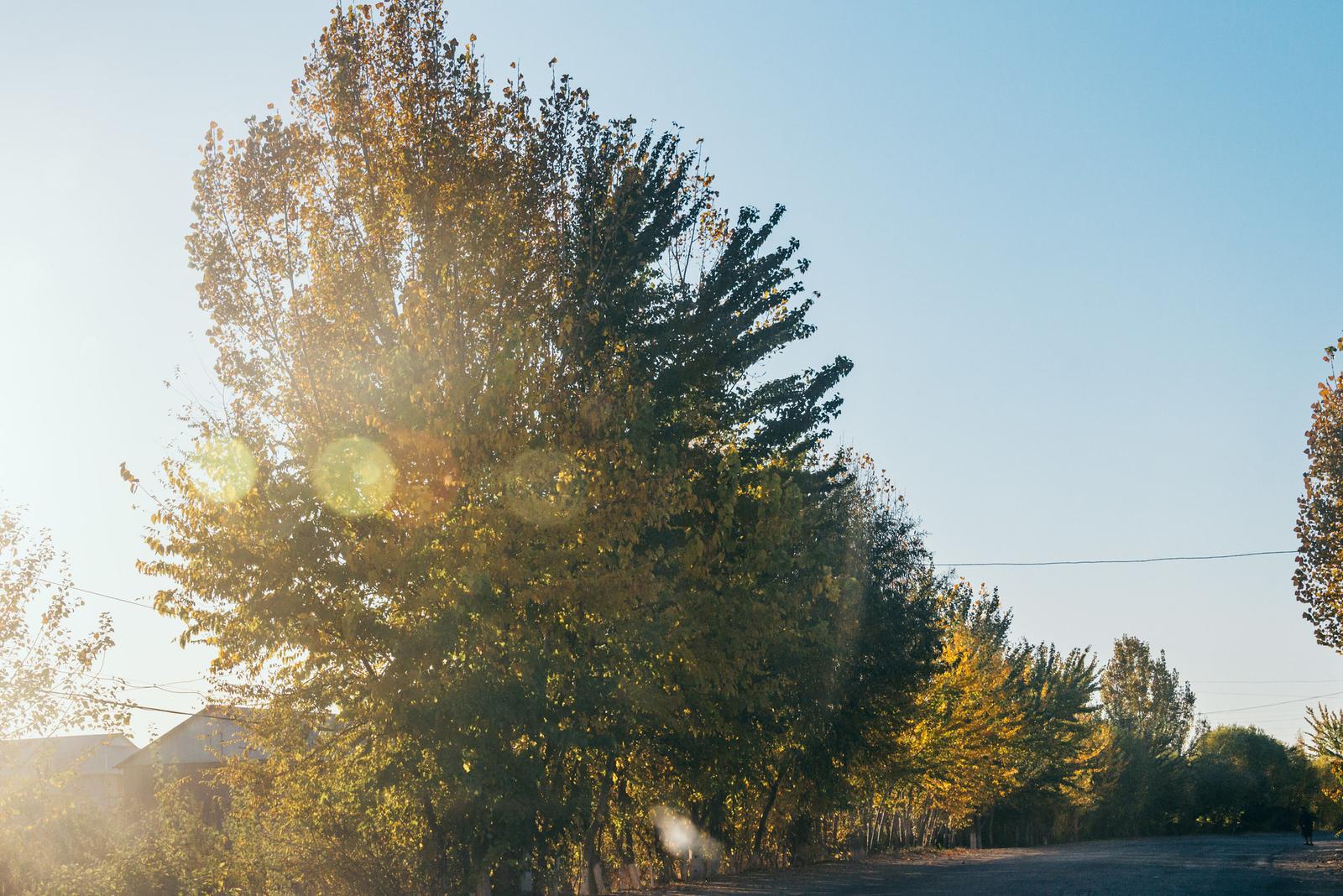
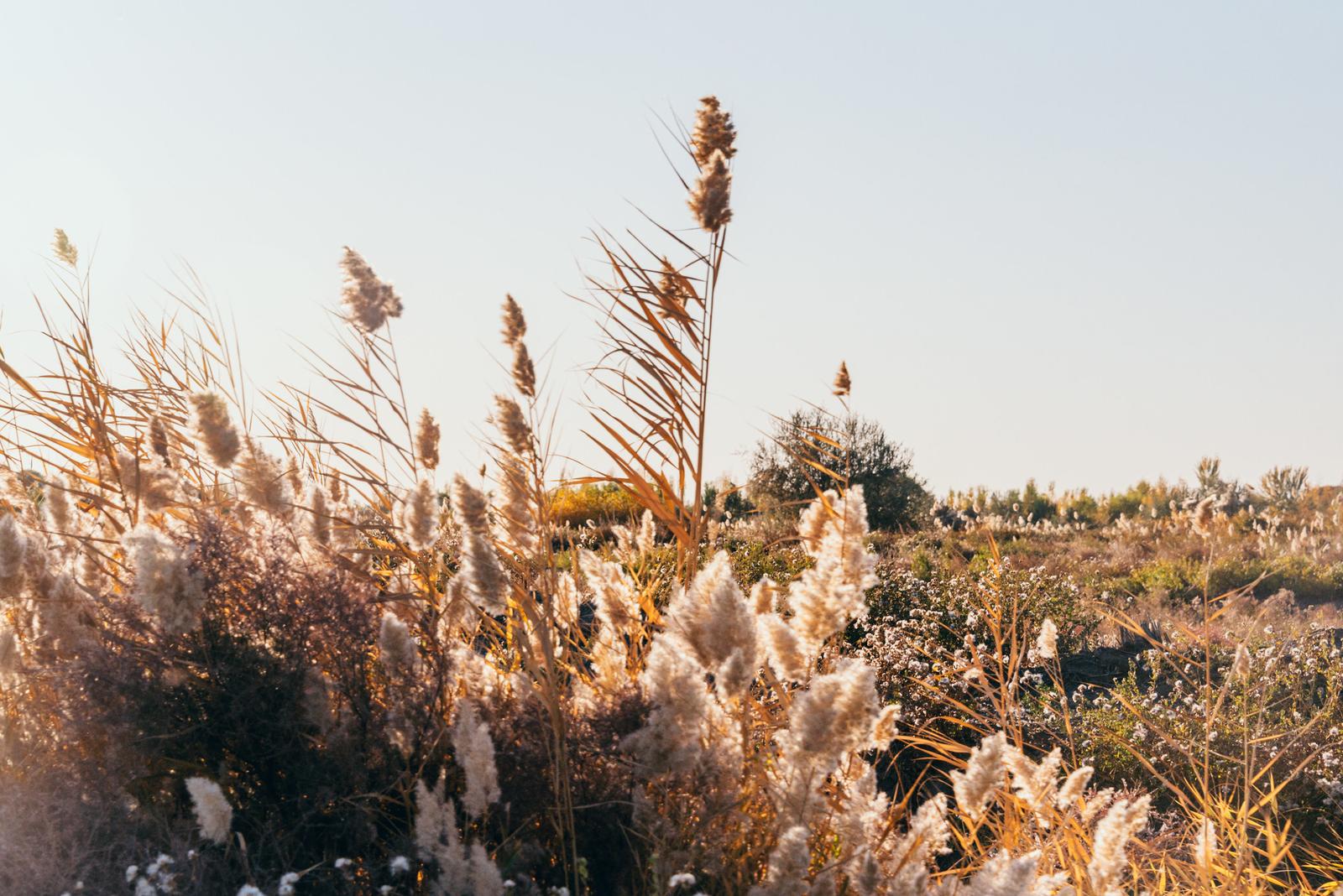
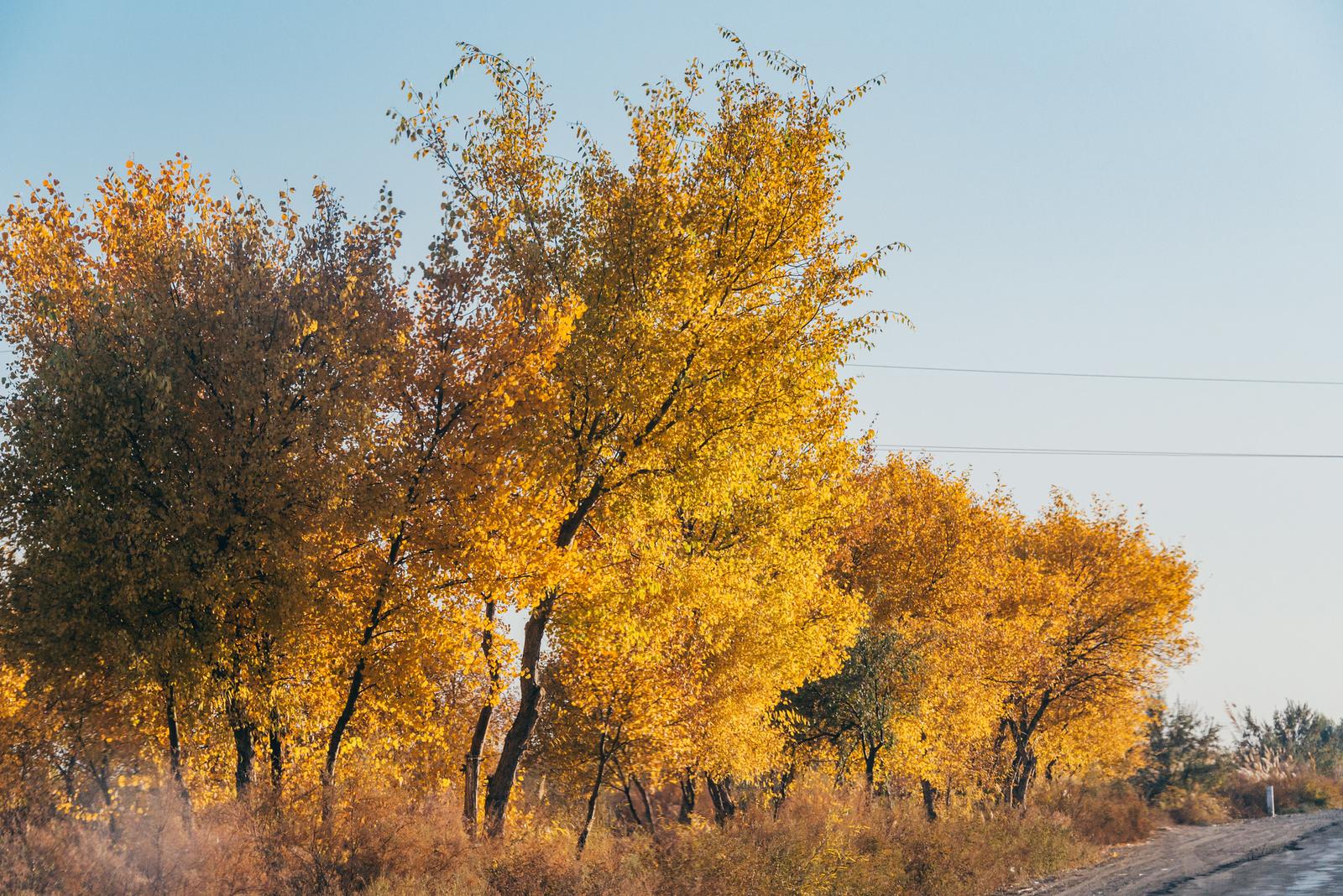
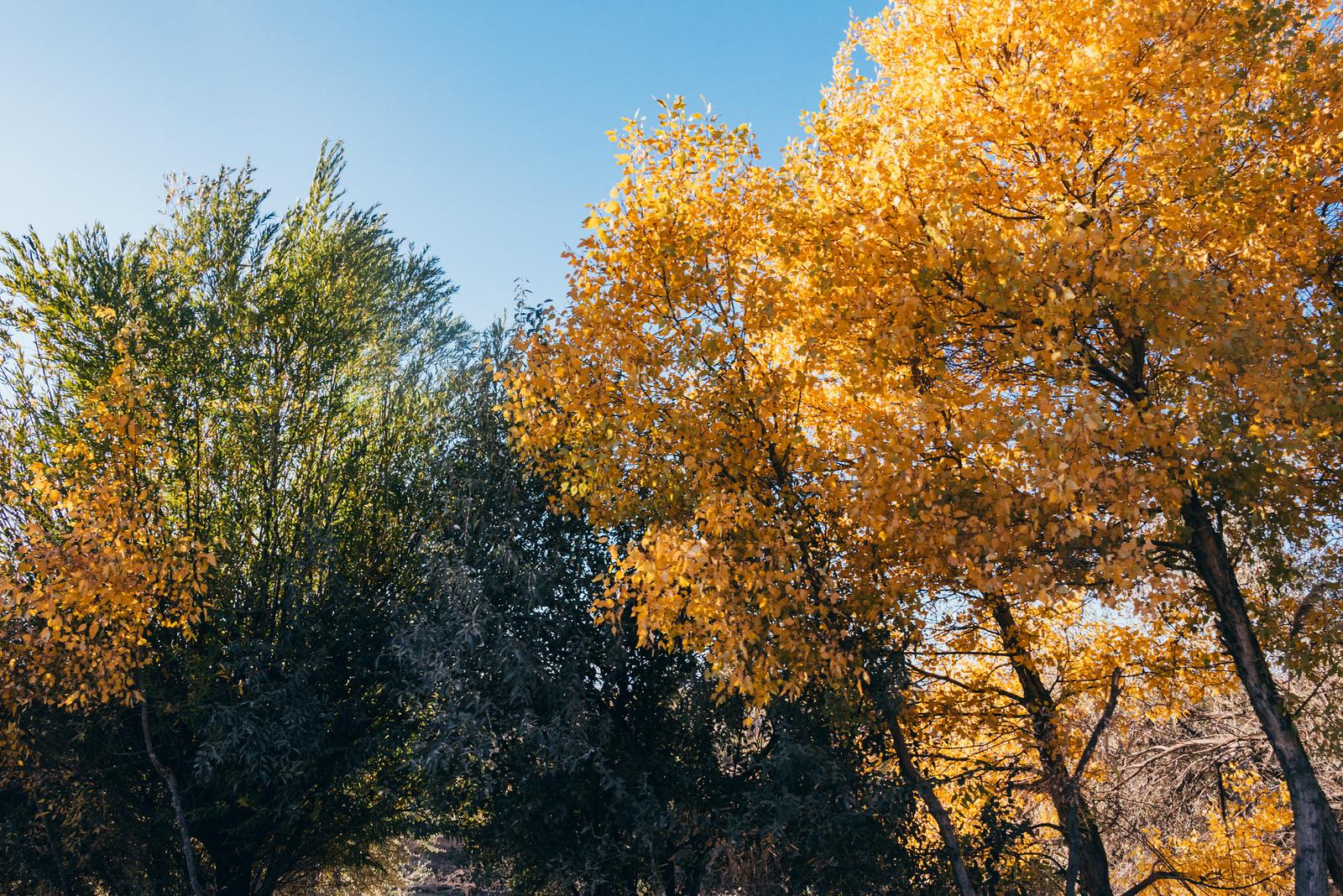
The route weaved through the countryside neighborhoods built with an identical architectural style and the farmlands after harvest season.
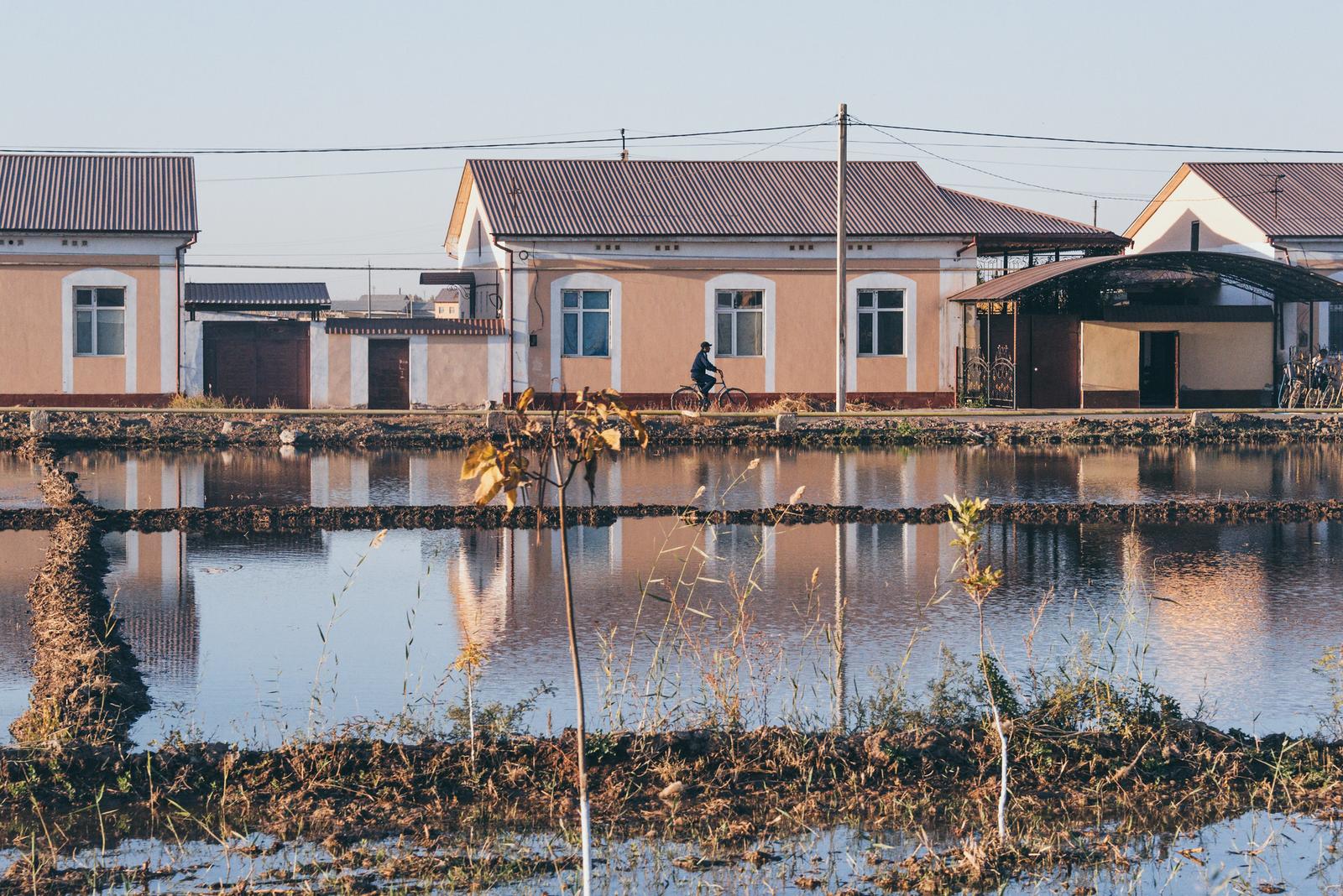
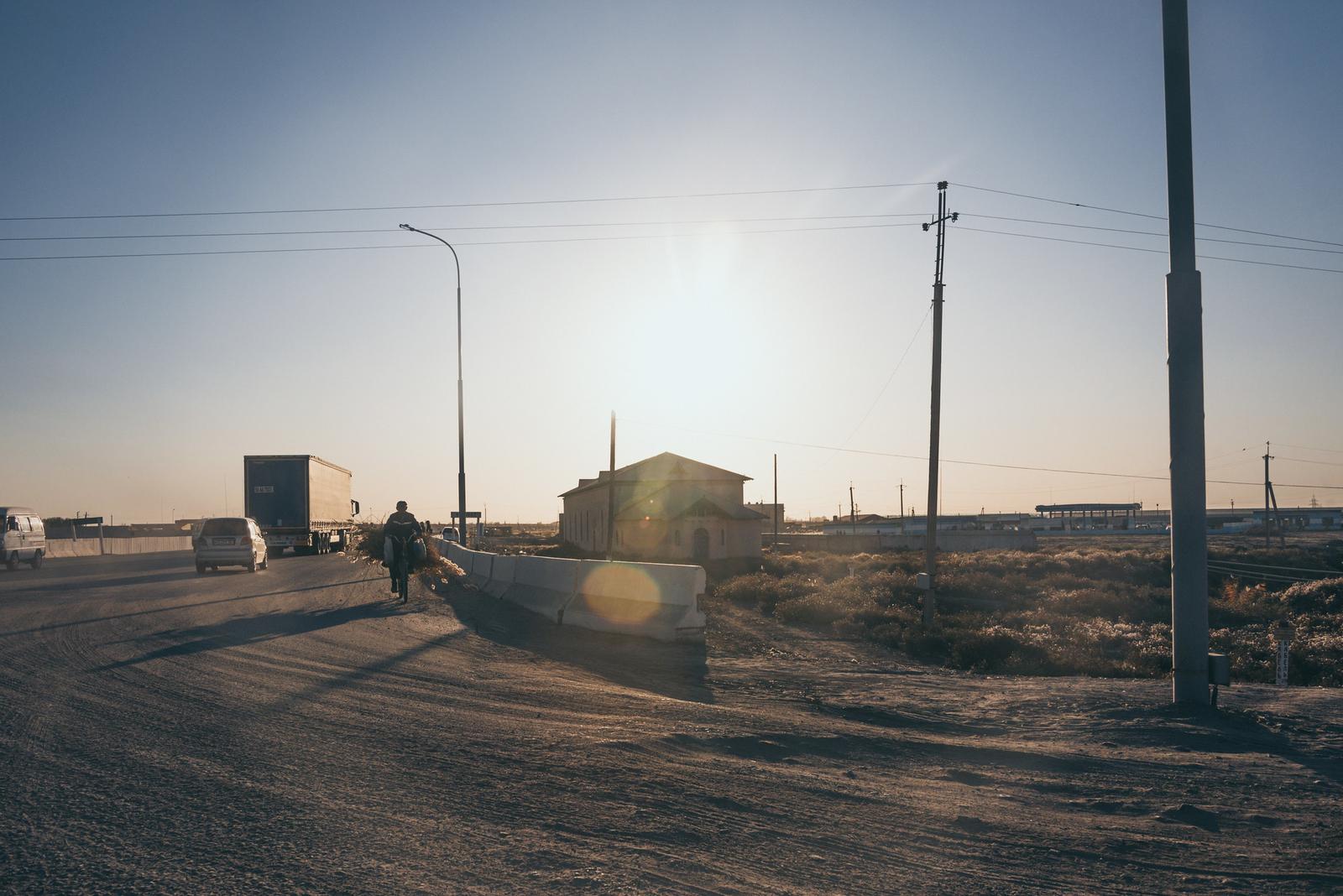
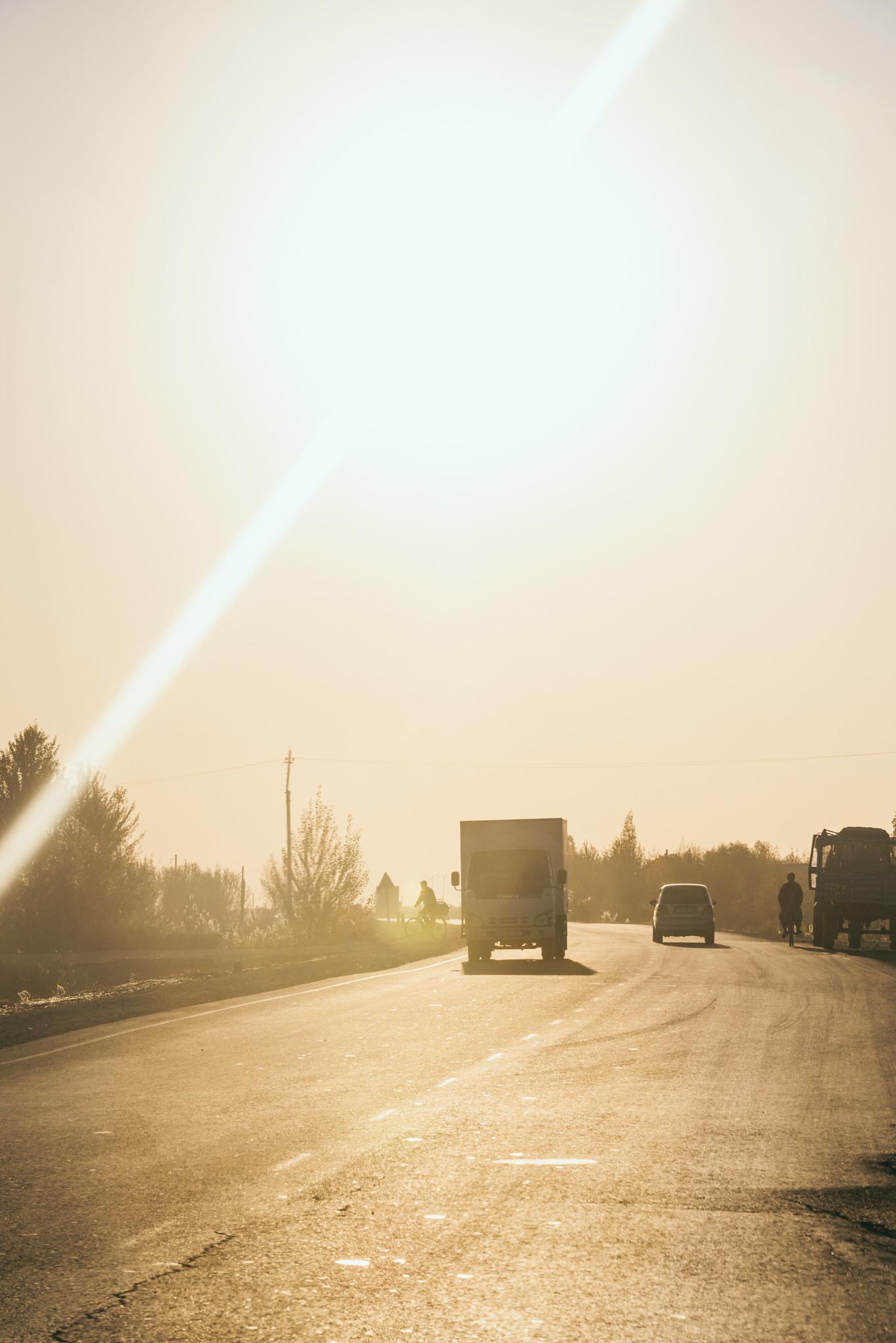
I informed my driver I would stay for a while at the pontoon bridge crossing over the Amu Darya River. There’re not many chances alike where we can come across such a symbol of human civilization.
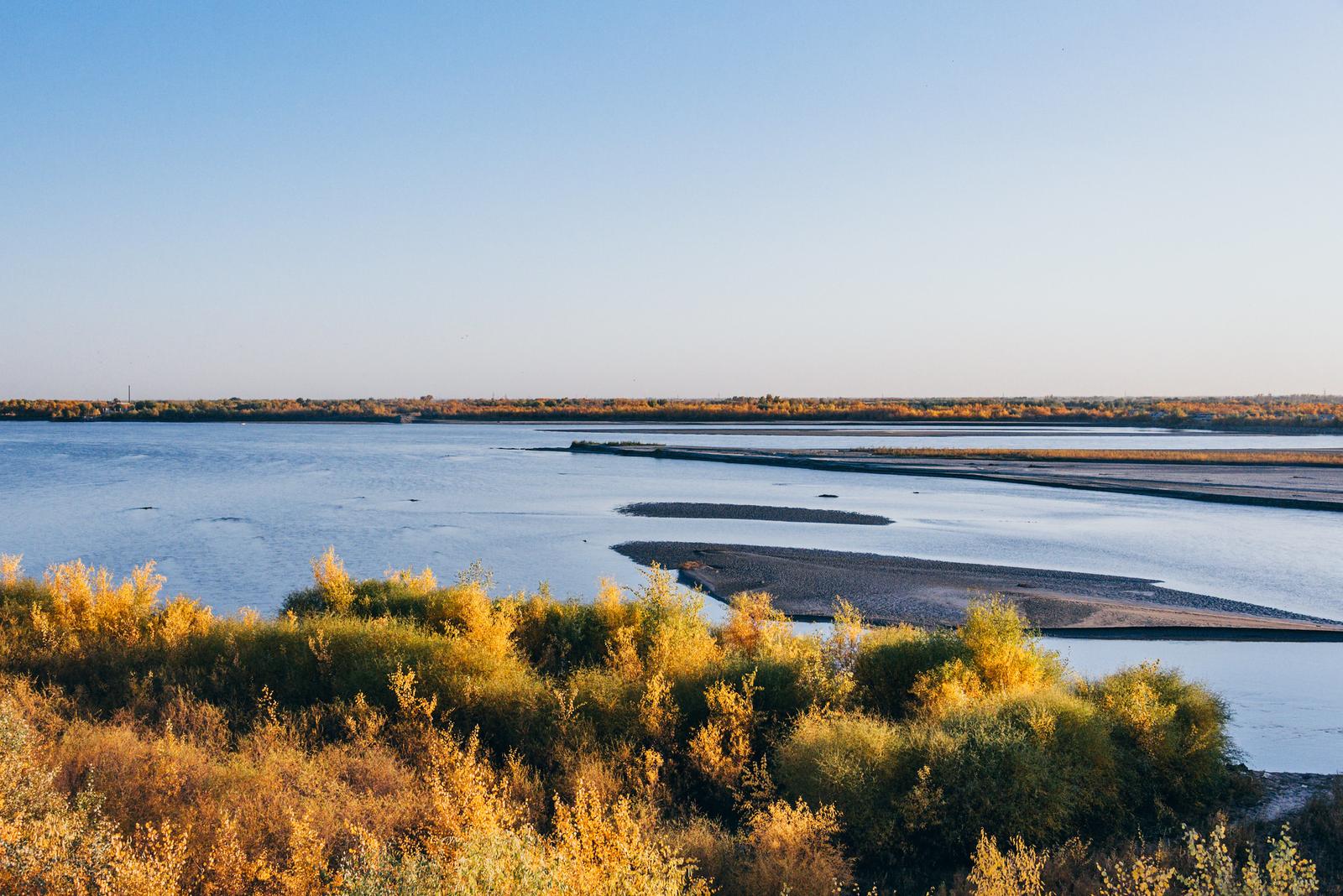
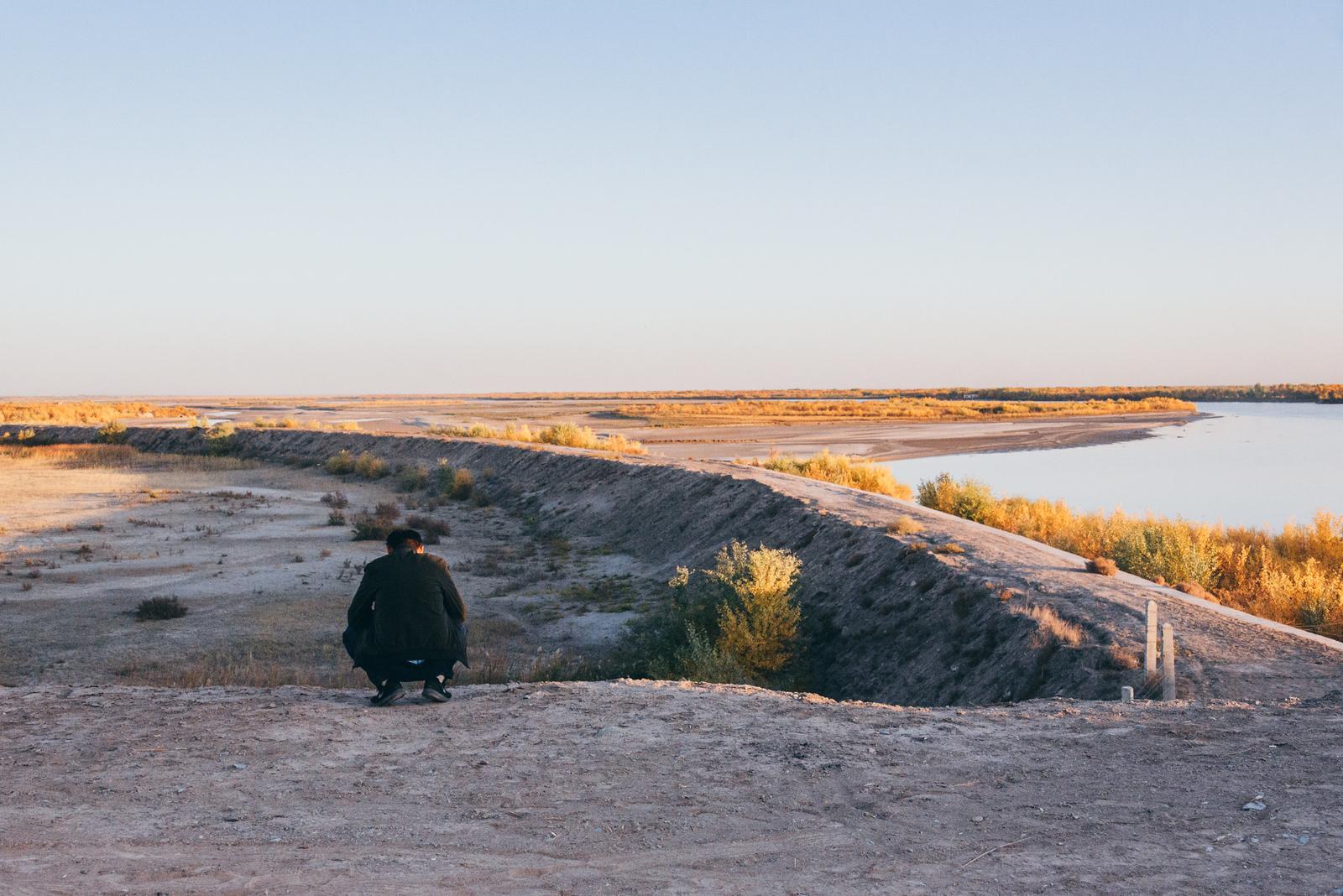
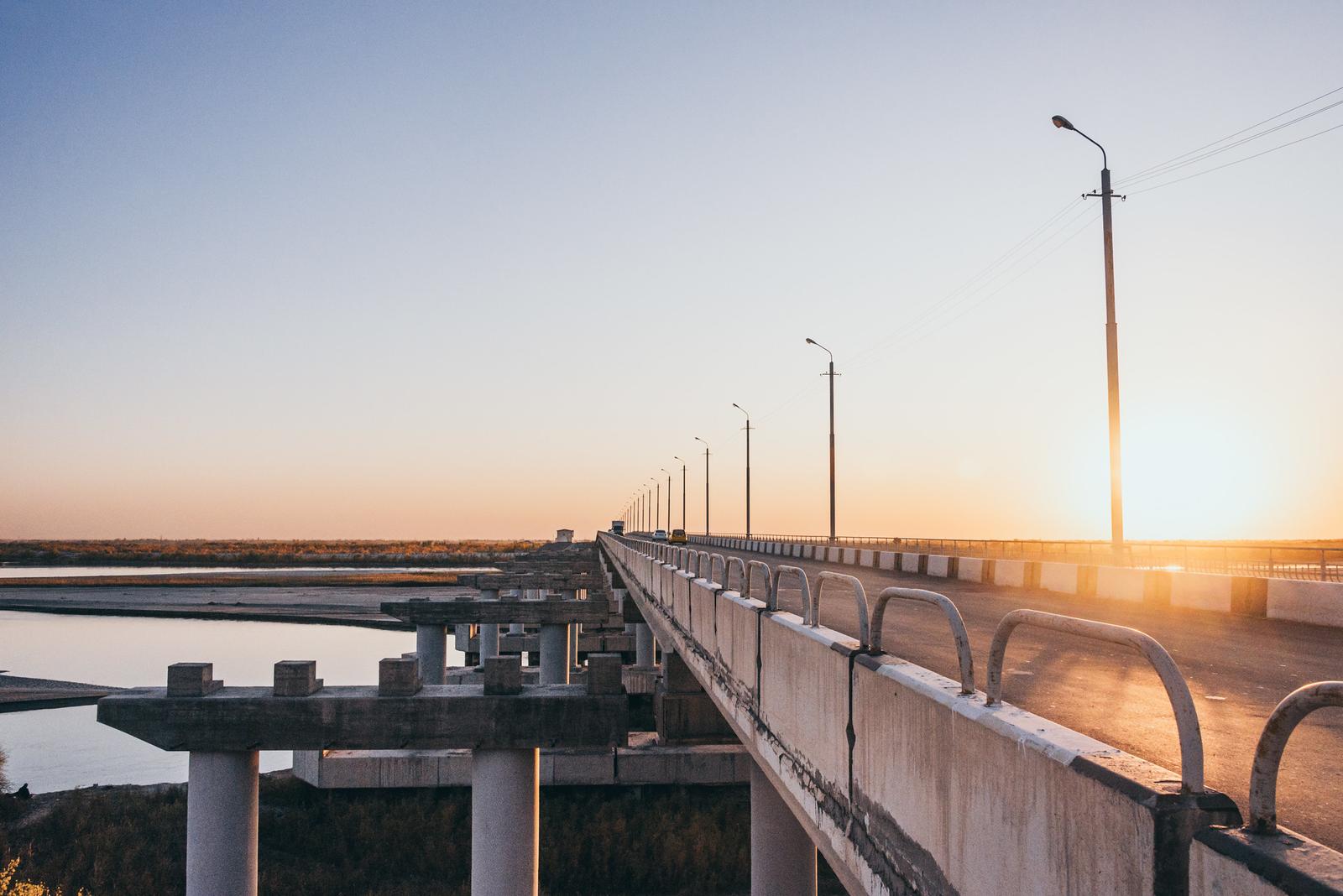
However, the scenery of this prominent river flowing serenely really served as an inspiration for poetic sentiments.
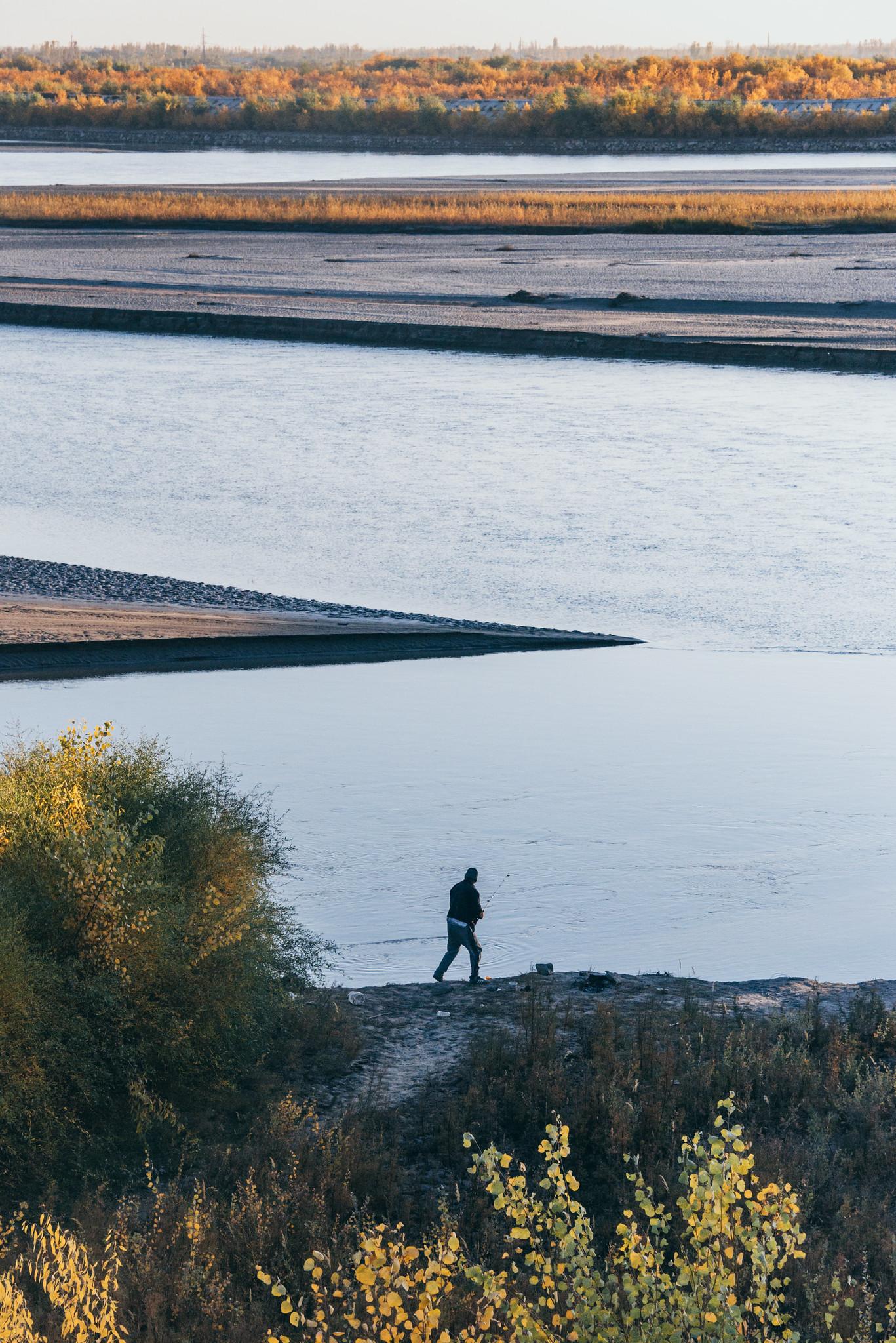
And here, a gift for the one who had been waiting until the very end, was the sweetest sunshine illuminating those yellow ranges of trees as autumn came, what a natural masterpiece that the photographer wouldn’t need to spend any effort on post-processing his photos. I remembered excitedly jumping between the road sides not to miss a single moment at this spot.
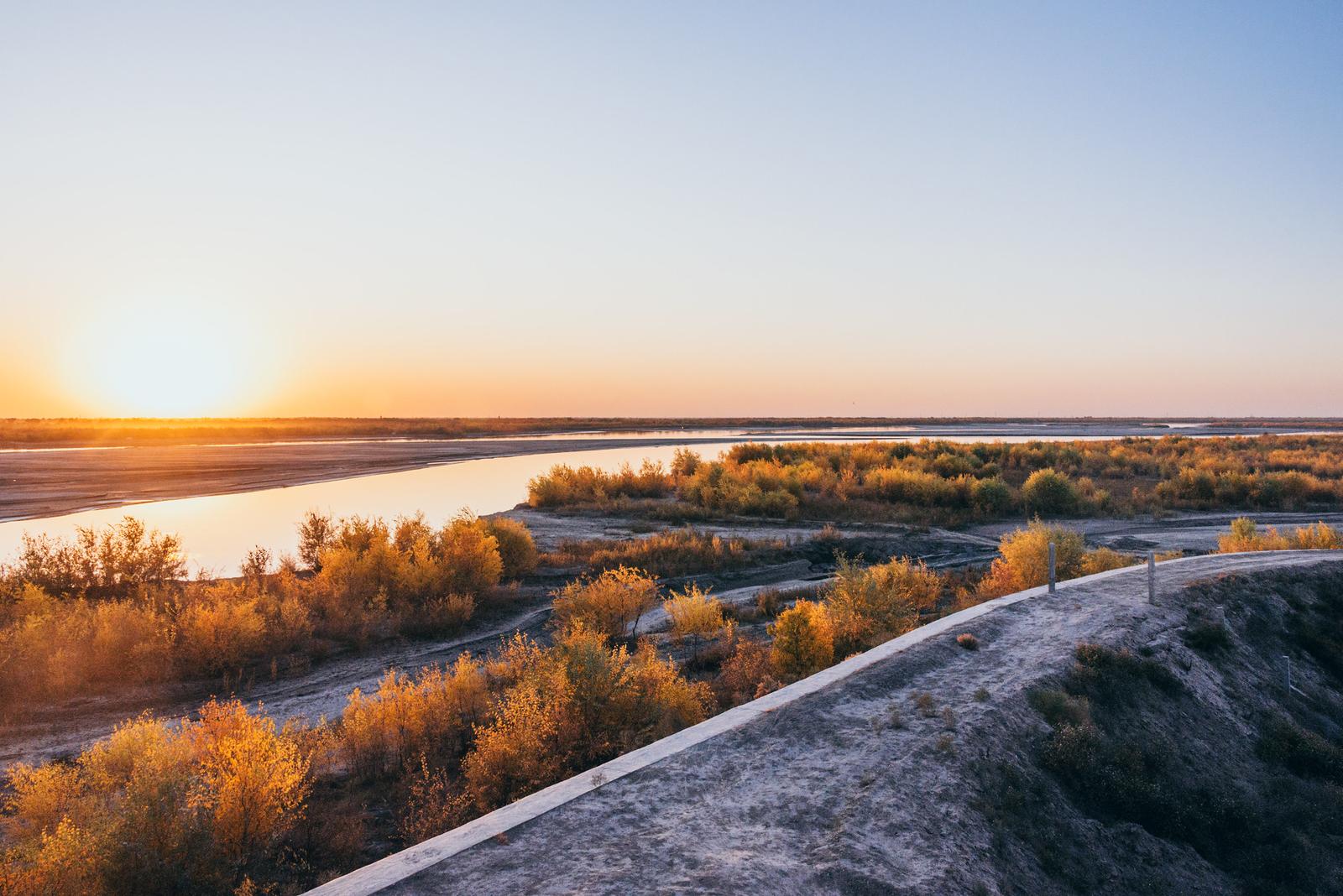
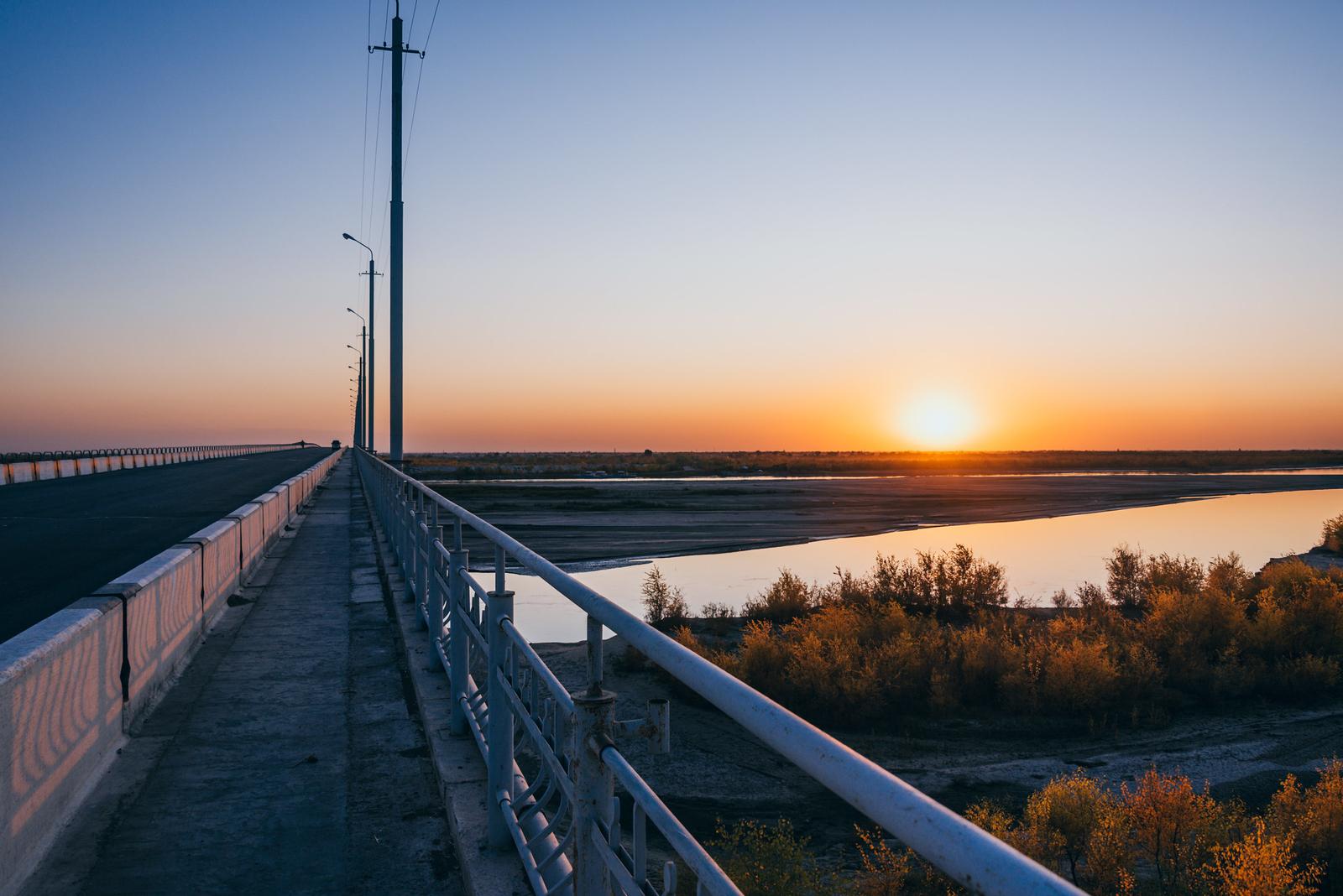
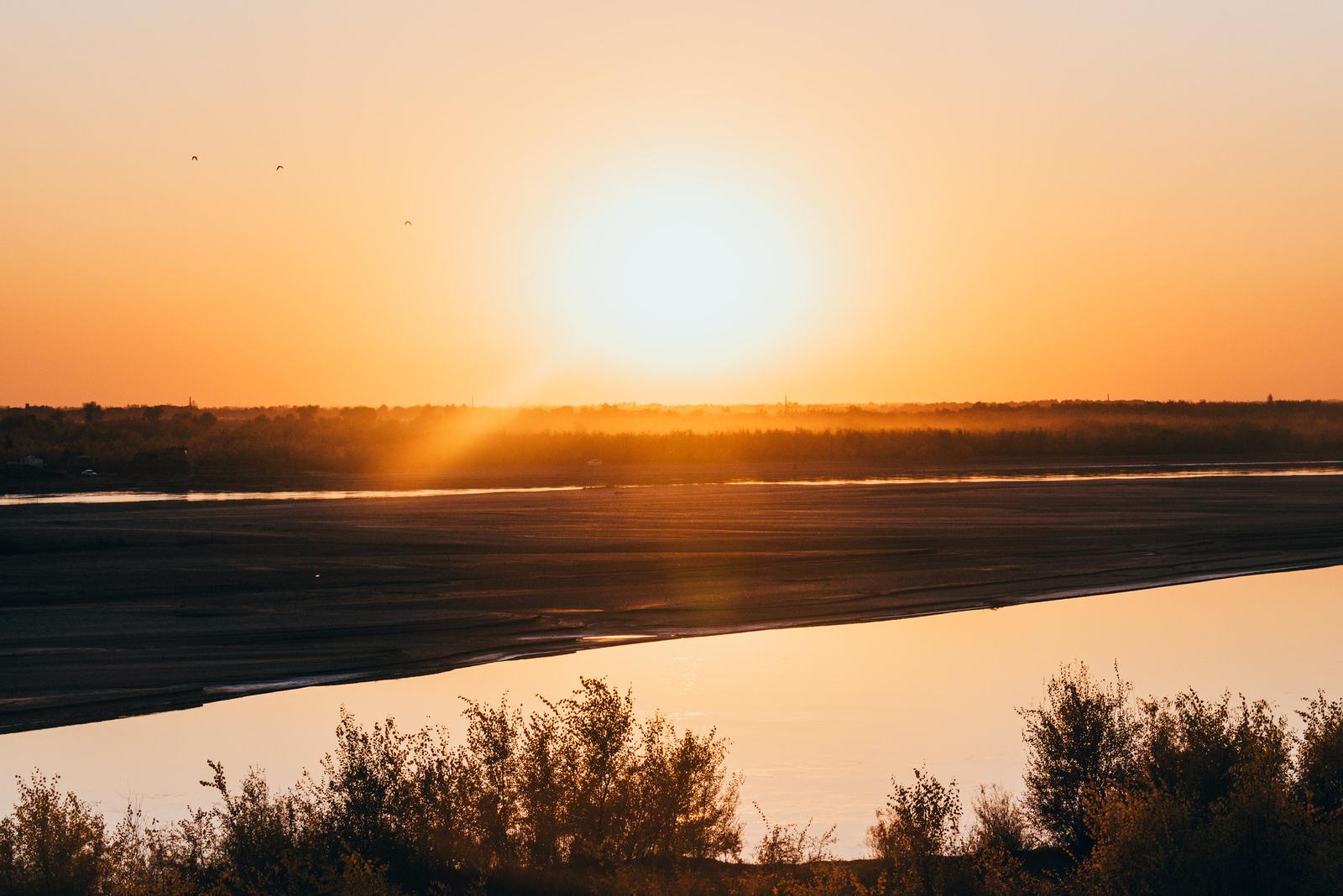
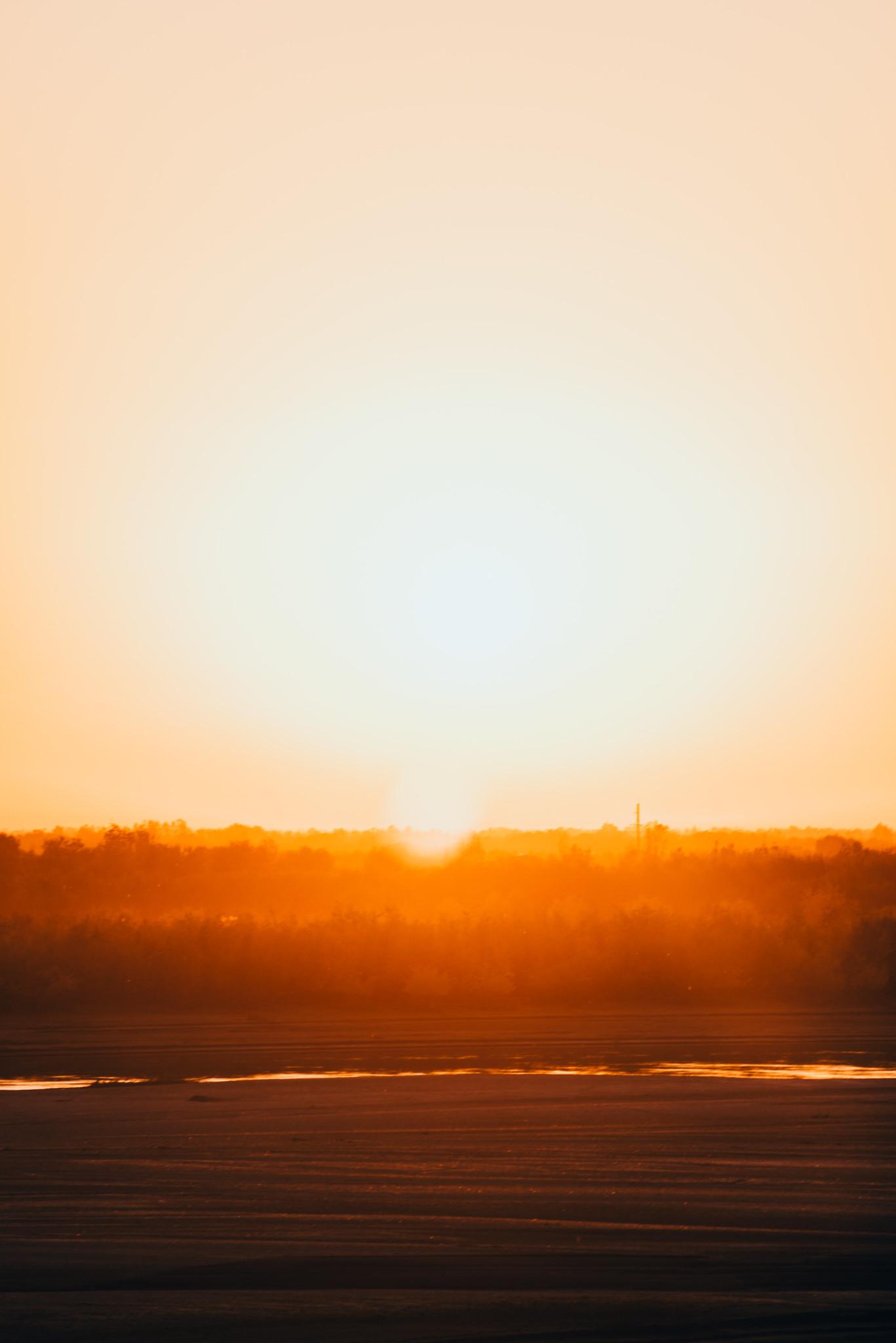
And that was the conclusion for an echoing short journey, leaving its mark on the unforgettable Uzbekistan album.
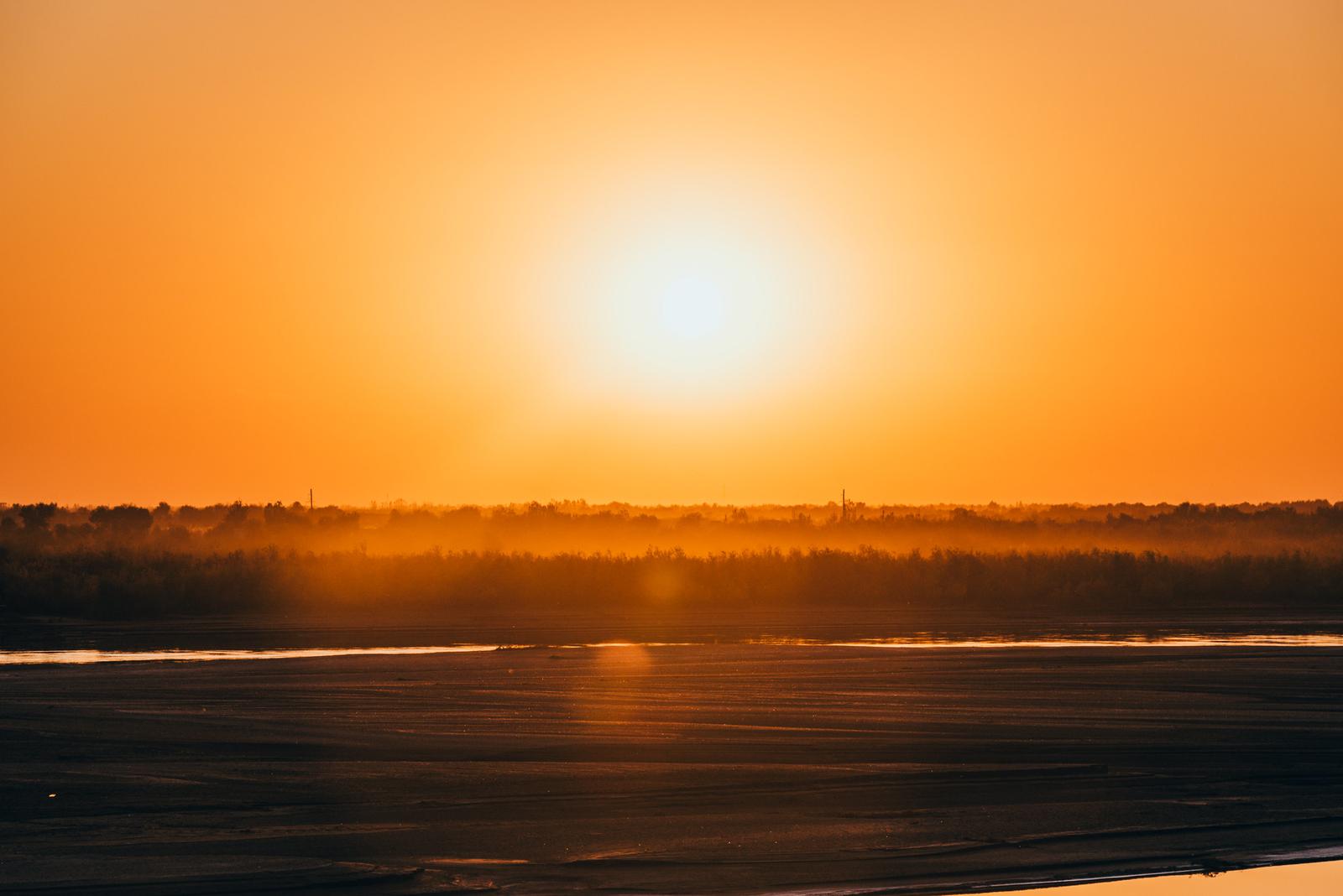
Comments
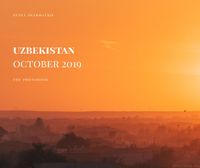
This post is a part of the Uzbekistan series.
© Zuyet Awarmatik
About
Zuyet Awarmatrip is a subsidiary identity within the personal ecosystem of Zuyet Awarmatik, focusing on travel and photography.
A Vietnamese usually regarding himself as a carefree solo Eastern backpacker, alongside with his main profession as a UX engineer. Neither being a freelancer nor a digital nomad, this website is built for the purpose of recording his life experience and happenings instead of letting them go into oblivion. He hopes these photos here shall always deliver the colorfulness of this worldly reality.
The beauty of slowly-falling leaves mirrors the low-pitched, wistful melody of this song. That's the time we take a moment, recollecting those memories from the good old days.

